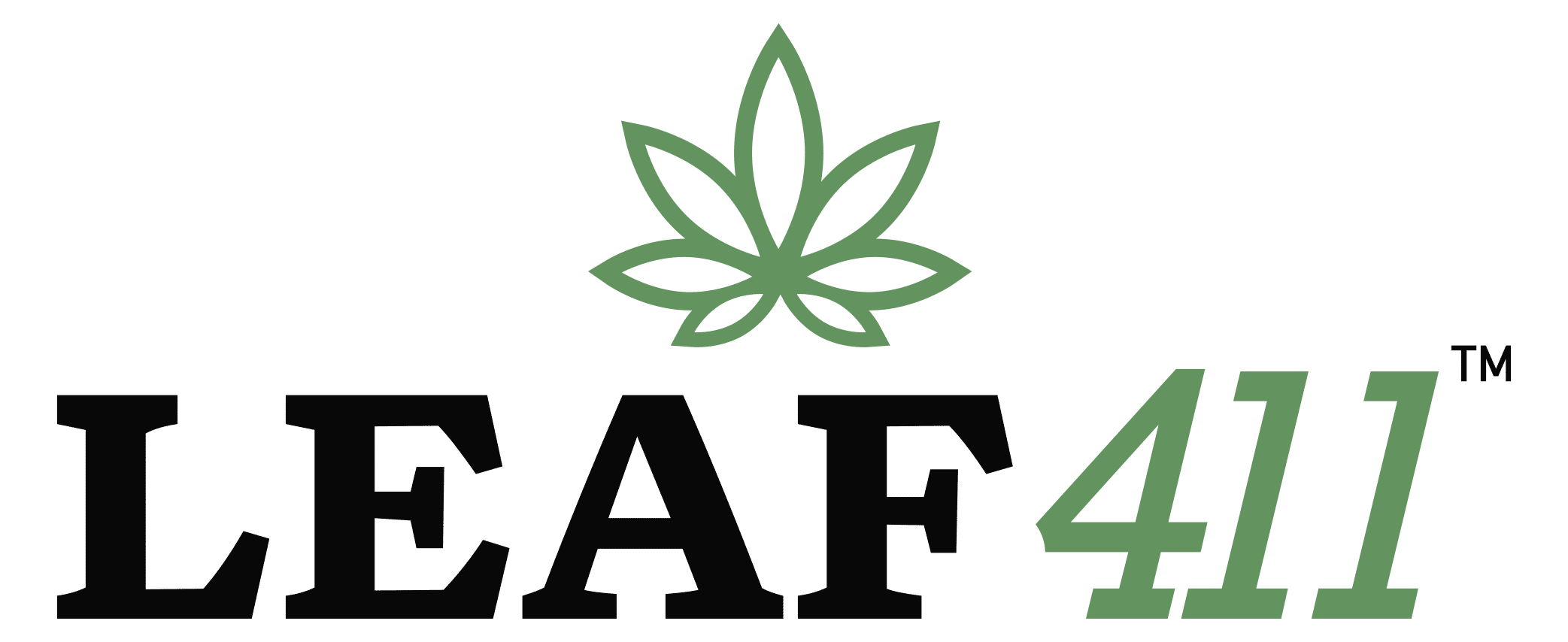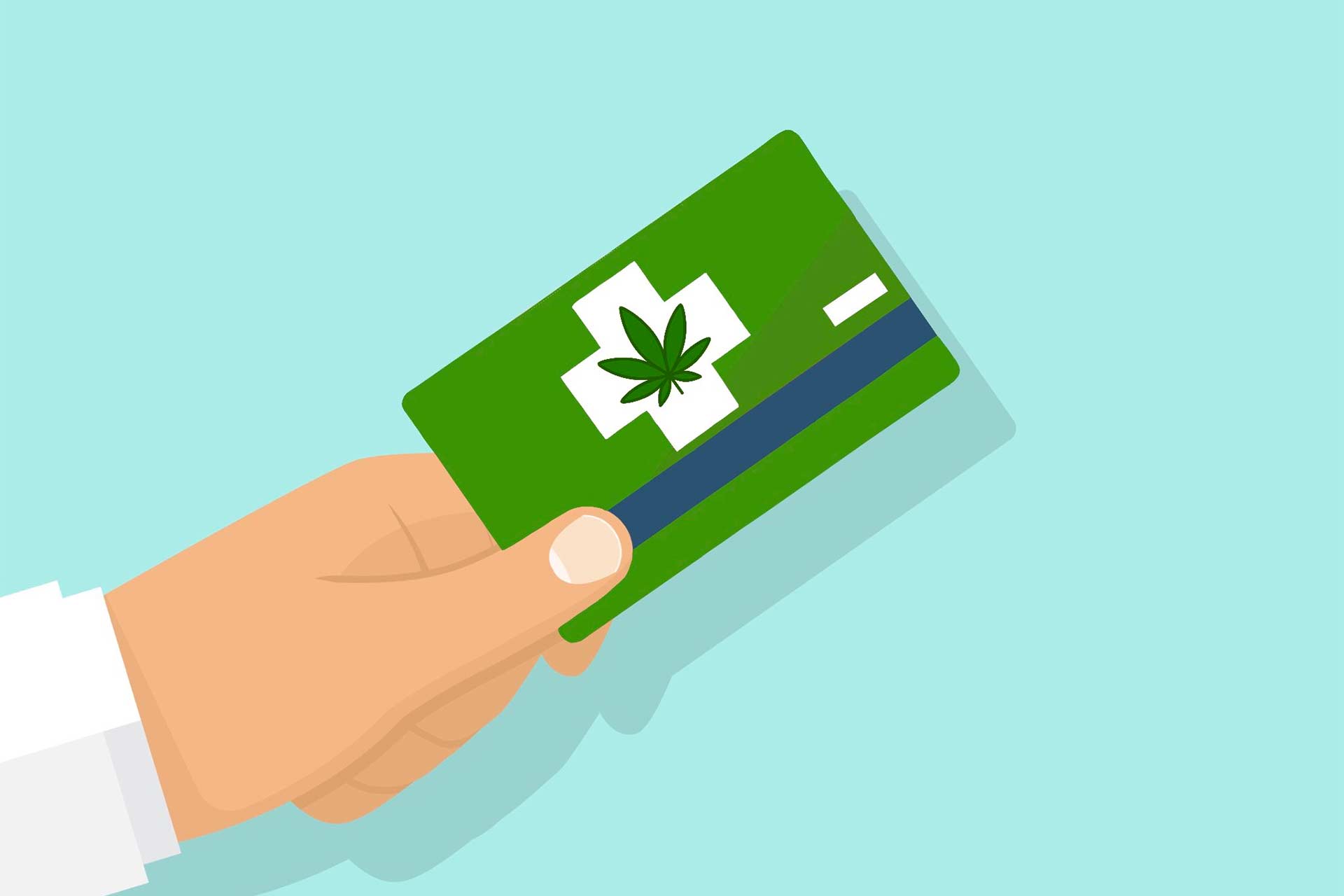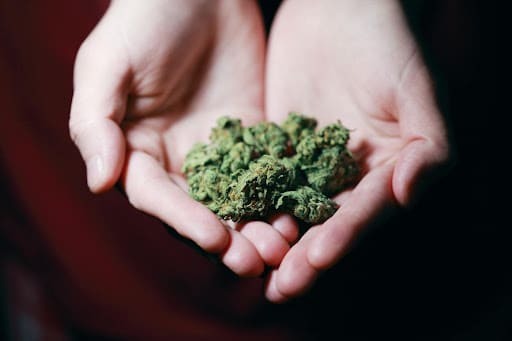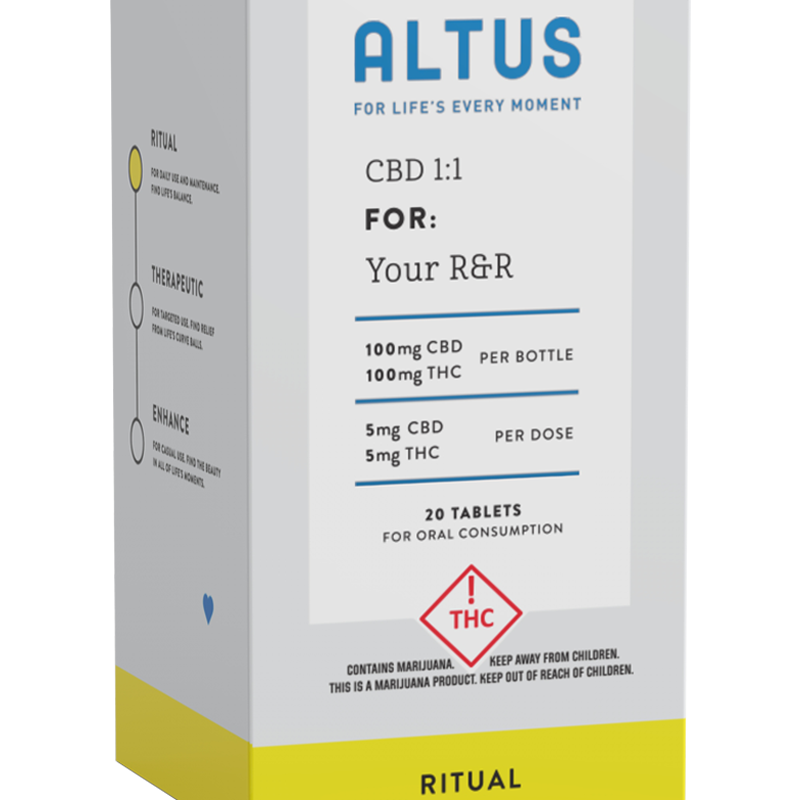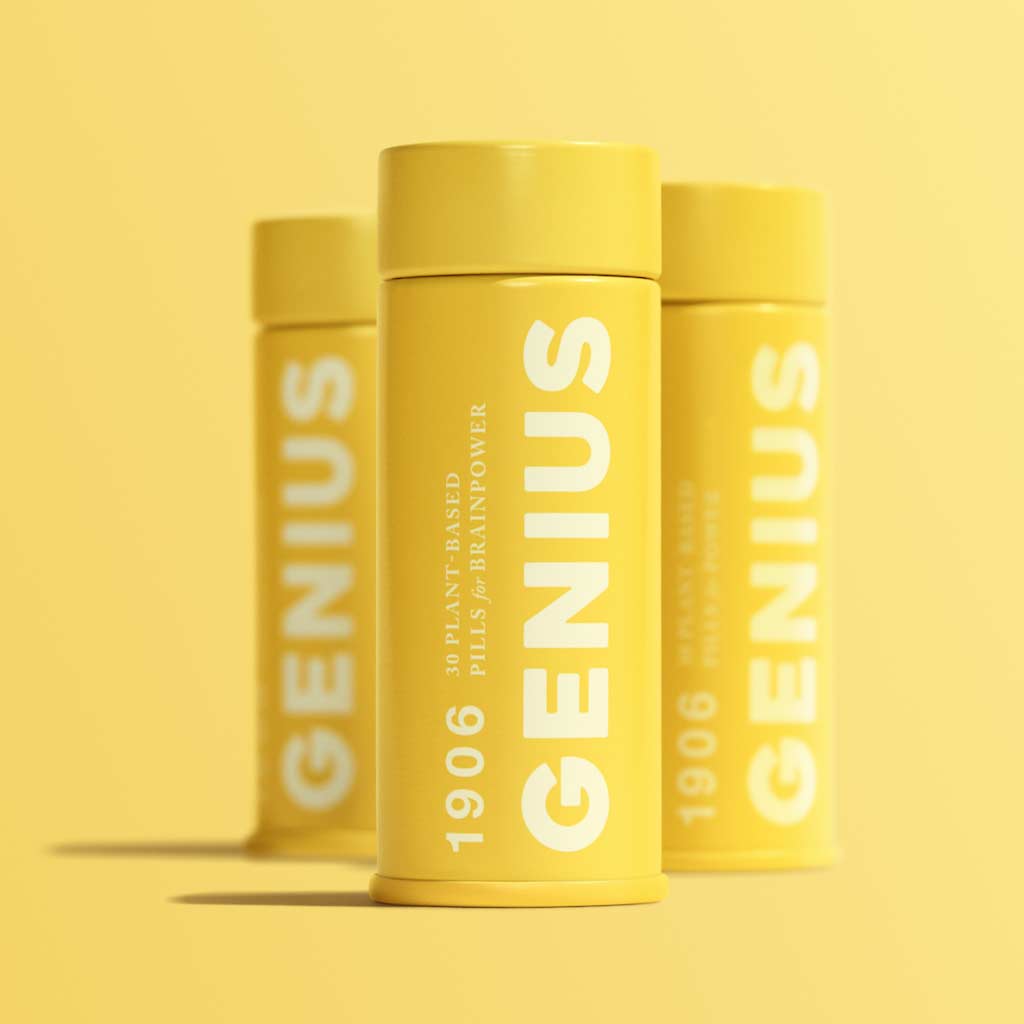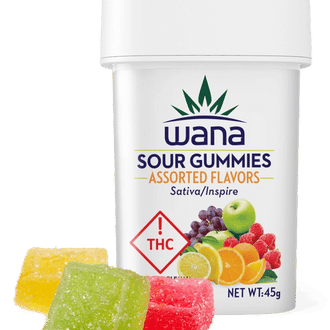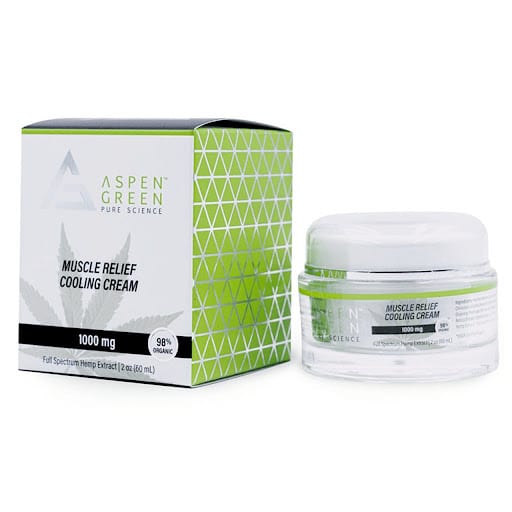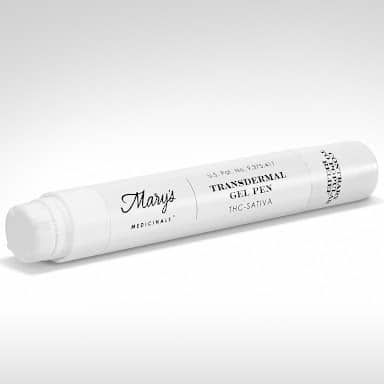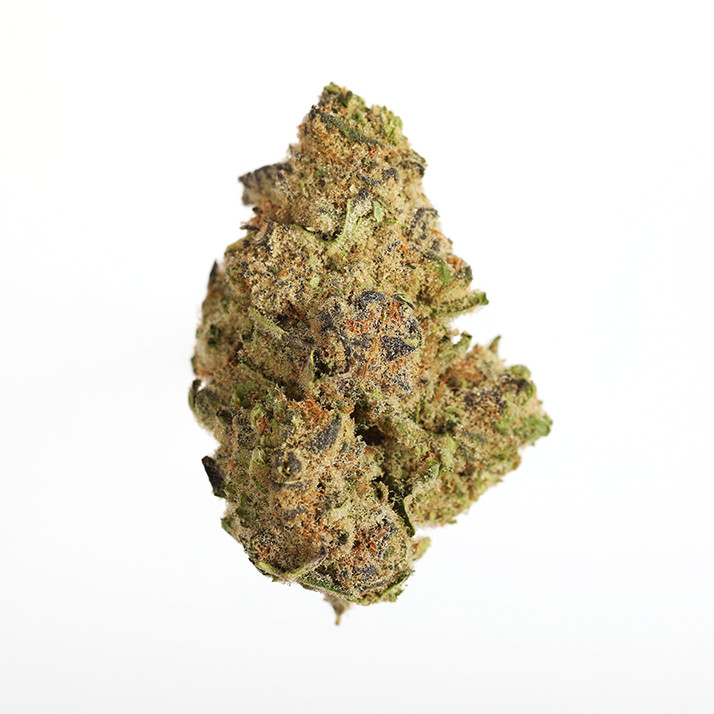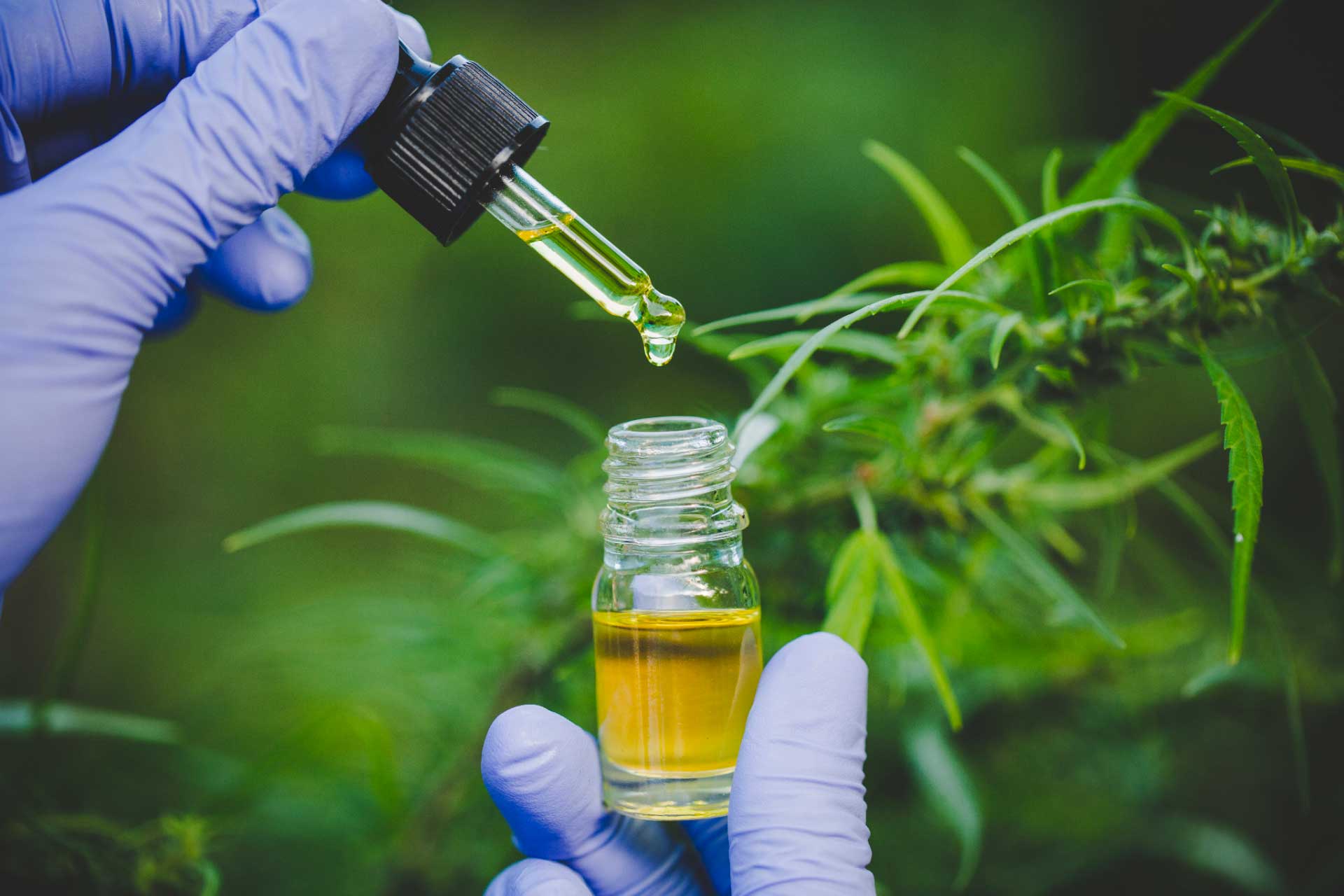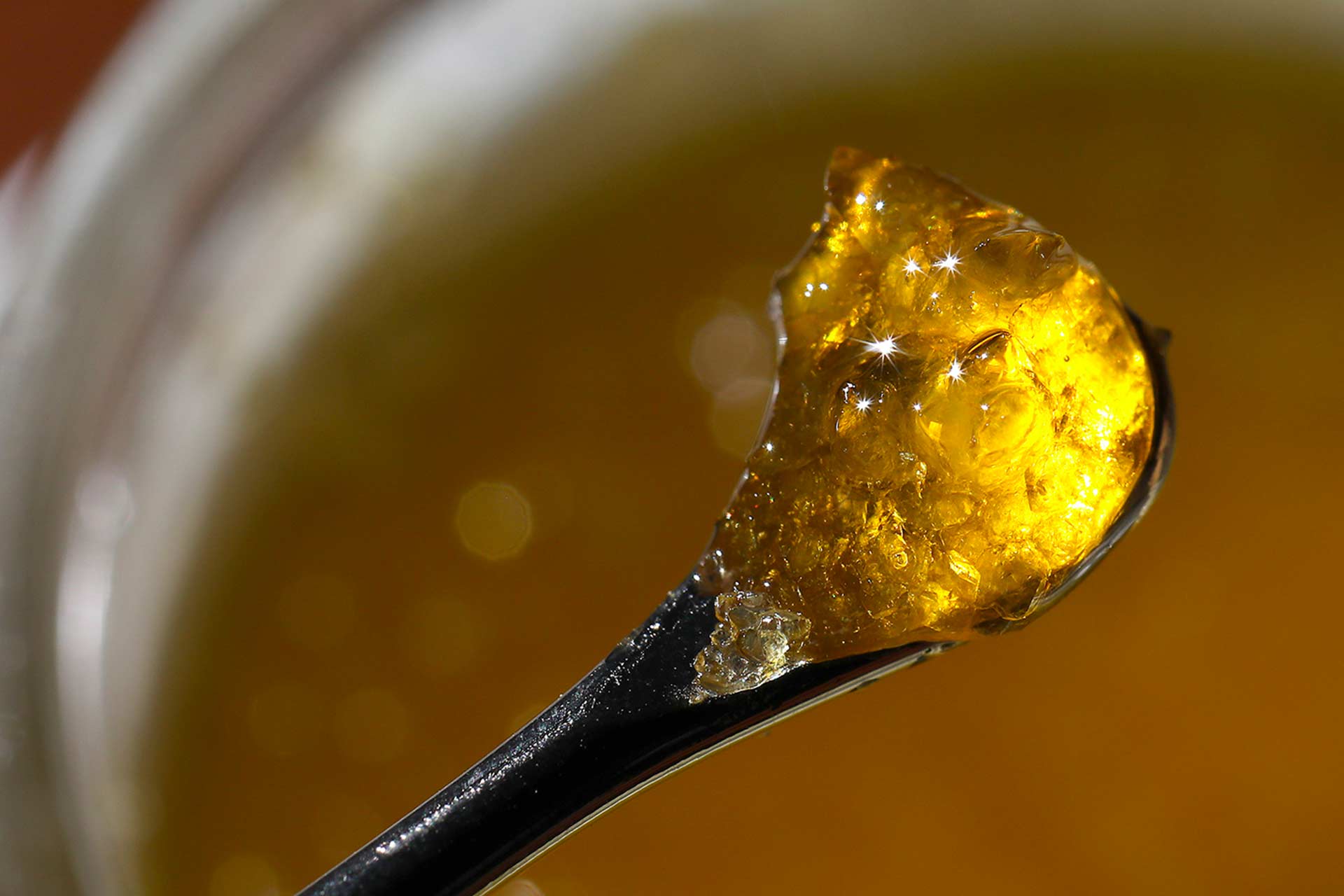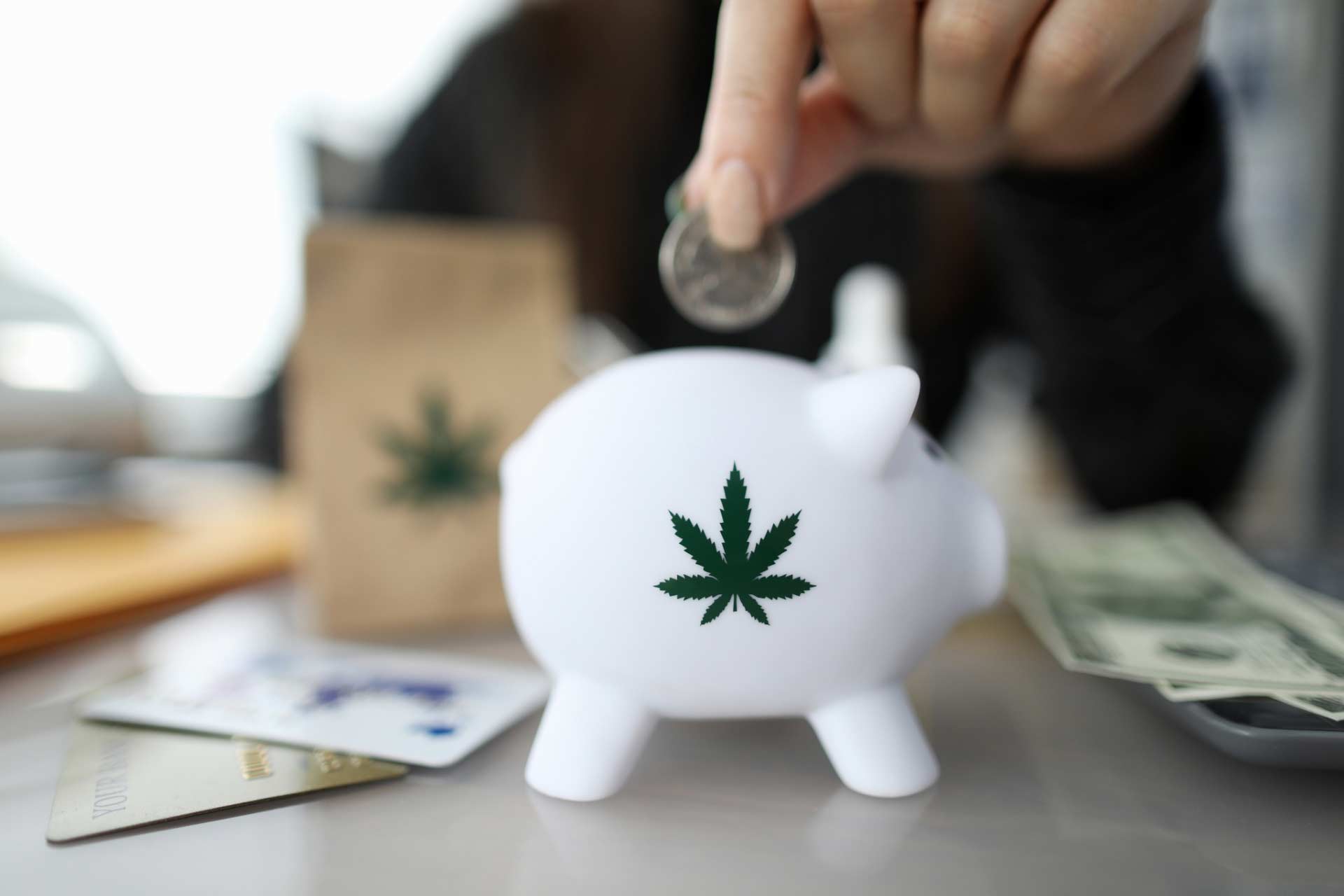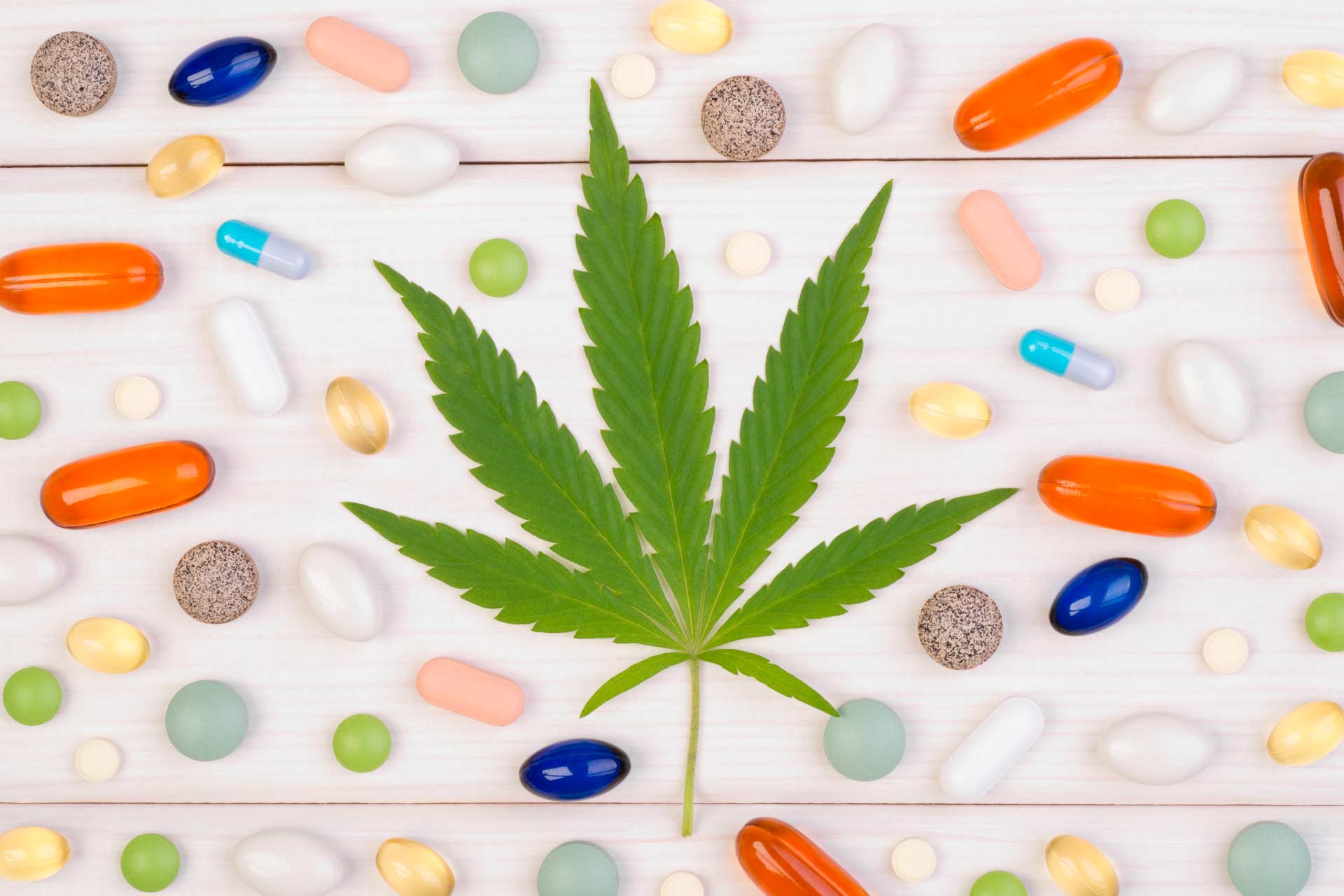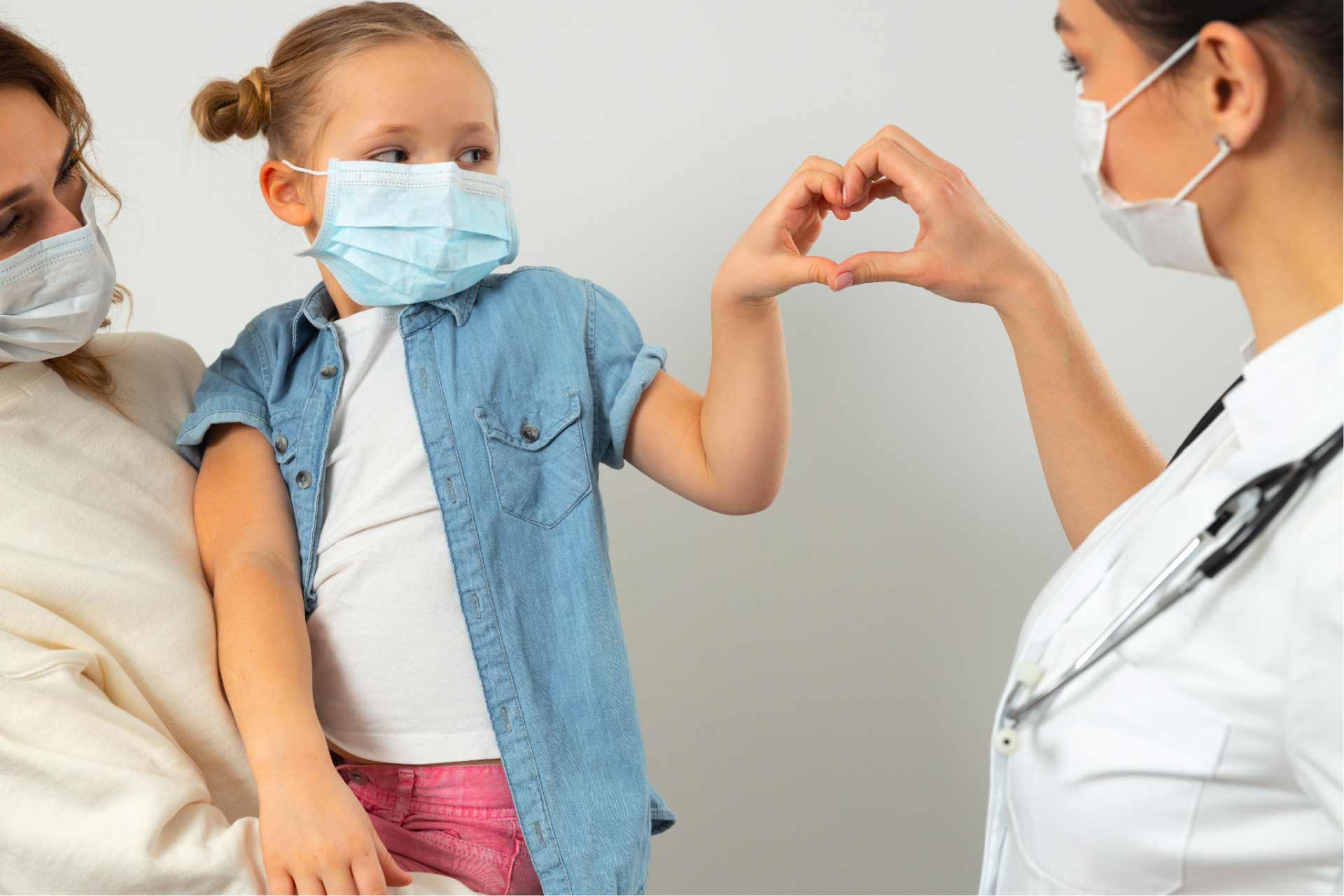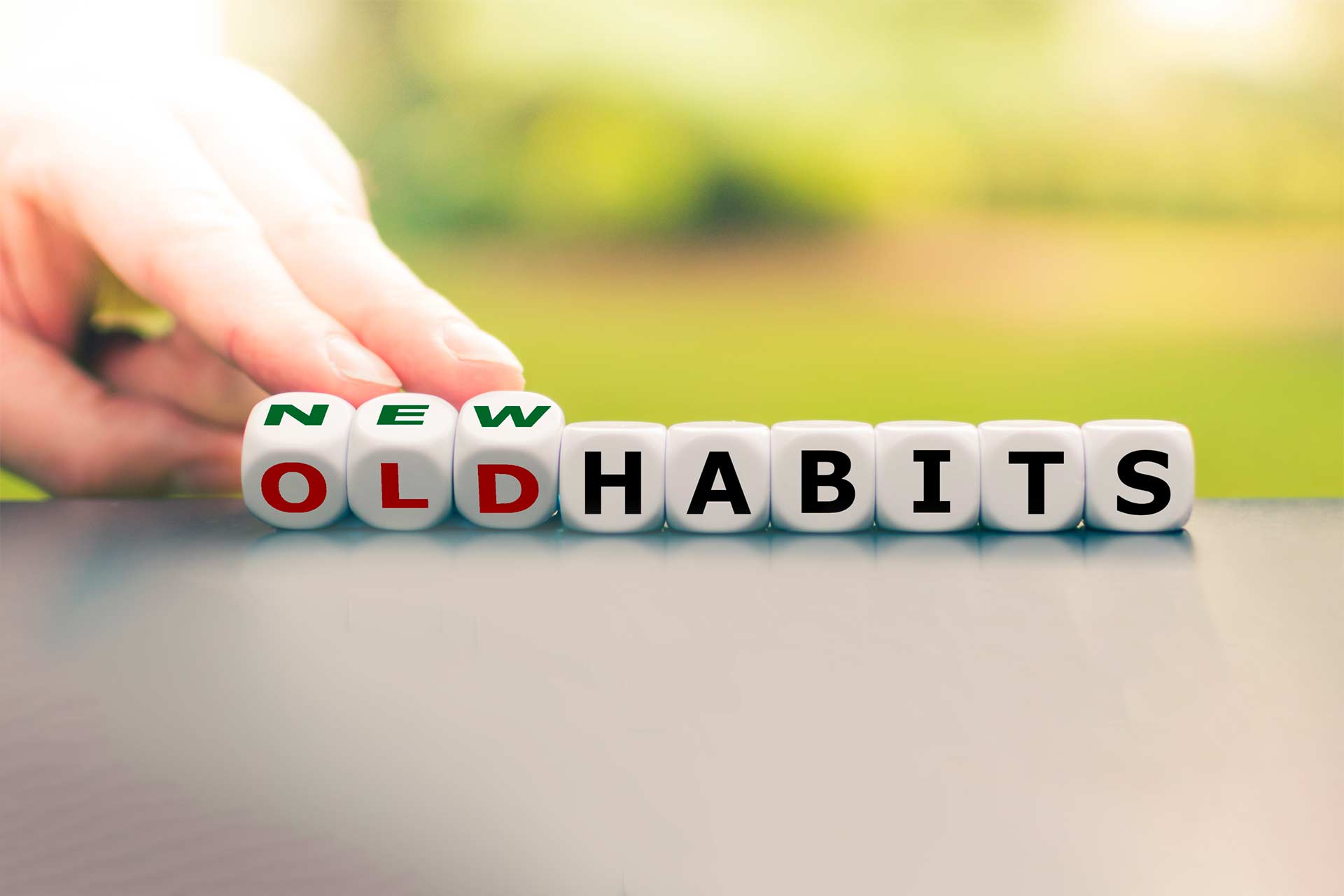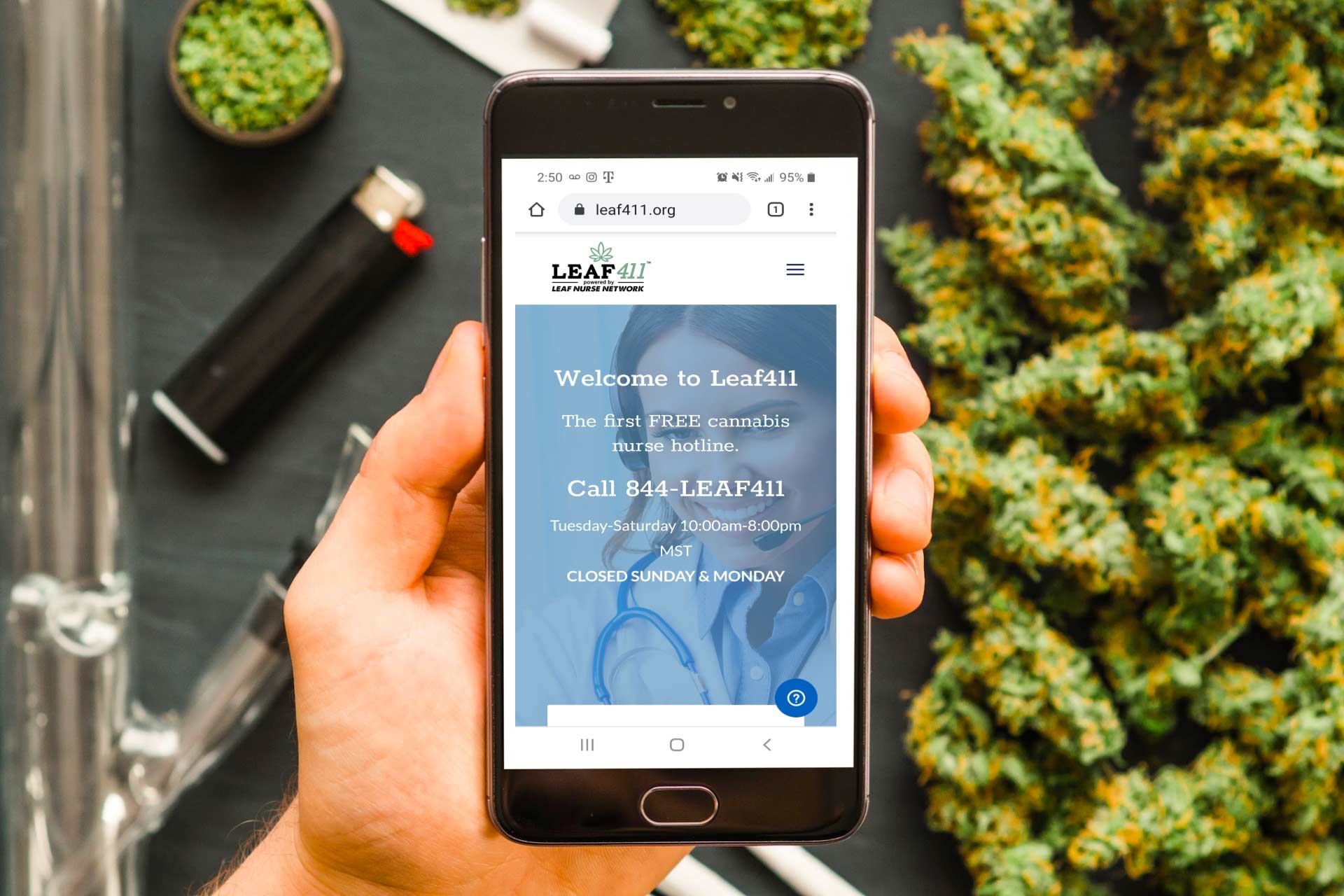Do You Need a Medical Marijuana Card?
By Katherine Golden, RN – Founder and CEO of Leaf411
“Should I get a medical marijuana card?” We hear that question a lot on the Leaf411 cannabis nurse hotline, as callers seek out the best way to access legal cannabis.
We can help you sort out your options based on your needs as well as what options exist where you live. Check out our Leaf library for your state’s current cannabis laws.
Is Legal Recreational Marijuana an Option for You? Then You Might Not Need a Med Card
Many of our callers are just starting out using cannabis and only require small doses of THC. Lower dose products are more easily found in recreational dispensaries. You don’t need a medical marijuana card (often called an “MMJ card” or “med card”) to visit adult use or recreational (rec) dispensaries. However, you’ll need a state-issued ID as proof that you are 21 or older.
Also, it’s worth noting that cannabidiol (CBD hemp) containing less than 0.3% THC is federally legal. CBD hemp (may also CBDa, CBN, and CBG) products are available over-the-counter and online in nearly every state, no med card required! Check out a list of Leaf411 nurse vetted Hemp members here.
If you’re just starting out with cannabis and live in a fully legal state that has both rec and medical marijuana, we suggest reaching out to a cannabis-trained clinician first for advice on the best routes, ratios and products. Our Leaf411 hotline is the perfect first-step resource!
In many cases, these products will be available to you without a med card, saving you both the time and cost of applying for a card.
David Gordon, MD, a Leaf411 advisory board member and integrative medicine practitioner notes that, “In Colorado, a lot of the products that we might use for medicinal purposes are only available on the rec side. Companies aren’t making as many products for the medical side because it’s not as profitable.”
While it can be challenging to find products made specifically for the medical market, there are brands that do a great job creating products specifically for medical use. One of our supporting members, Wana Brands, is a great example.

Understanding Med Card Qualifications
Before we get into cases when a med card makes sense, it’s important to talk about the qualifications for getting a medical marijuana card. Covered conditions vary from state to state. For example, in Colorado, the state list includes specific disabling or debilitating conditions. Oklahoma, on the other hand, is one of the least restrictive states. Their law leaves it up to the doctor to determine if cannabis is a good treatment option.
Check this link for an updated list of different states’ qualifying medical conditions.
When a Med Card Makes Sense
Some states only legalized medical marijuana, not recreational use. If you live in one of these states, then your only option for accessing legal cannabis is by qualifying for a med card.
Med cards are also the only option for people under the age of 21 to access legal cannabis.
It’s important to know what a med card gets you, as well as what protections it does not provide (you might be surprised!).
What a Med Card Provides in Some States
- Access to products at lower cost than recreational dispensaries
- Lower sales taxes when buying at a medical dispensary
- Higher doses and higher limits on how much you can buy in a day
- The ability to legally grow your own cannabis for personal use in some (but not all) states
What the Med Card Doesn’t Do
It’s important to remember that all marijuana—medical and recreational—remains federally illegal, even when legalized at the state level.
- A med card doesn’t give you the right to smoke in your rental if prohibited by lease
- A med card doesn’t prevent your employer from firing you for positive drug test results.
- Holding a med card may disqualify you from certain jobs or impact your career or educational options, though many states are also enacting legislation on this front.
Other Considerations Before Getting a Med Card
Will a med card restrict your right to own firearms? The answer is tricky.
Cannabis is federally illegal, and the feds oversee gun licensing and ownership. By the letter of the law, anyone using a federally illegal drug, or addicted to an illegal drug, is prohibited from owning or buying firearms.
If you’re buying a gun, you typically must complete a background check—specifically, the Firearms Transaction Record, or Form 4473. This form includes a question specific to marijuana use, and reinforces the federal prohibition, asking:
Are you an unlawful user of, or addicted to, marijuana or any depressant, stimulant, narcotic drug, or any other controlled substance?
Warning: The use or possession of marijuana remains unlawful under Federal law regardless of whether it has been legalized or decriminalized for medicinal or recreational purposes in the state where you reside.
In other words, if you answer truthfully (and you should—lying on Form 4473 is considered a felony offense!), then your background check may fail.
At Leaf411, we’re nurses, not lawyers. We recommend that you consult with an attorney if you have concerns about whether your cannabis use will impact your right to own or buy firearms.
A number of law firms now specialize in marijuana law. In fact, our board member David Wunderlich, Esq., Senior Attorney at McAllister Garfield, P.C., played a key role in improving Colorado’s laws around medical marijuana, and regularly speaks on cannabis and hemp issues.
Medical marijuana use may also impact state-administered public assistance benefits such as Temporary Assistance to Needy Families (TANF) in states that drug test welfare recipients. Interestingly, in Missouri, having a med card can actually protect your benefits. However, the rules vary from state to state and are frequently being updated. We strongly suggest you ask your social service agency whether holding a med card would impact your public assistance benefits.
How to Apply for a Med Card
You’ve weighed the pros and cons, as well as options available in your area, and have decided to get a med card. Where do you start? Search online using “med card” and your state to find state-specific information for obtaining a medical card in your area.
- Check your eligibility, making sure you have a qualifying medical condition.
- Confirm any special requirements, such as if you’re applying as the legal representative of another adult or someone under 18.
- Note the process for obtaining a card, including required fees. In some cases, discounts may be available for specific patient groups. For example, Oklahoma provides a discount to 100% disabled veterans.
- Find a doctor who provides medical marijuana evaluations. Your regular primary care provider may provide this service, though many primary care doctors may be unfamiliar with the med card evaluation process.
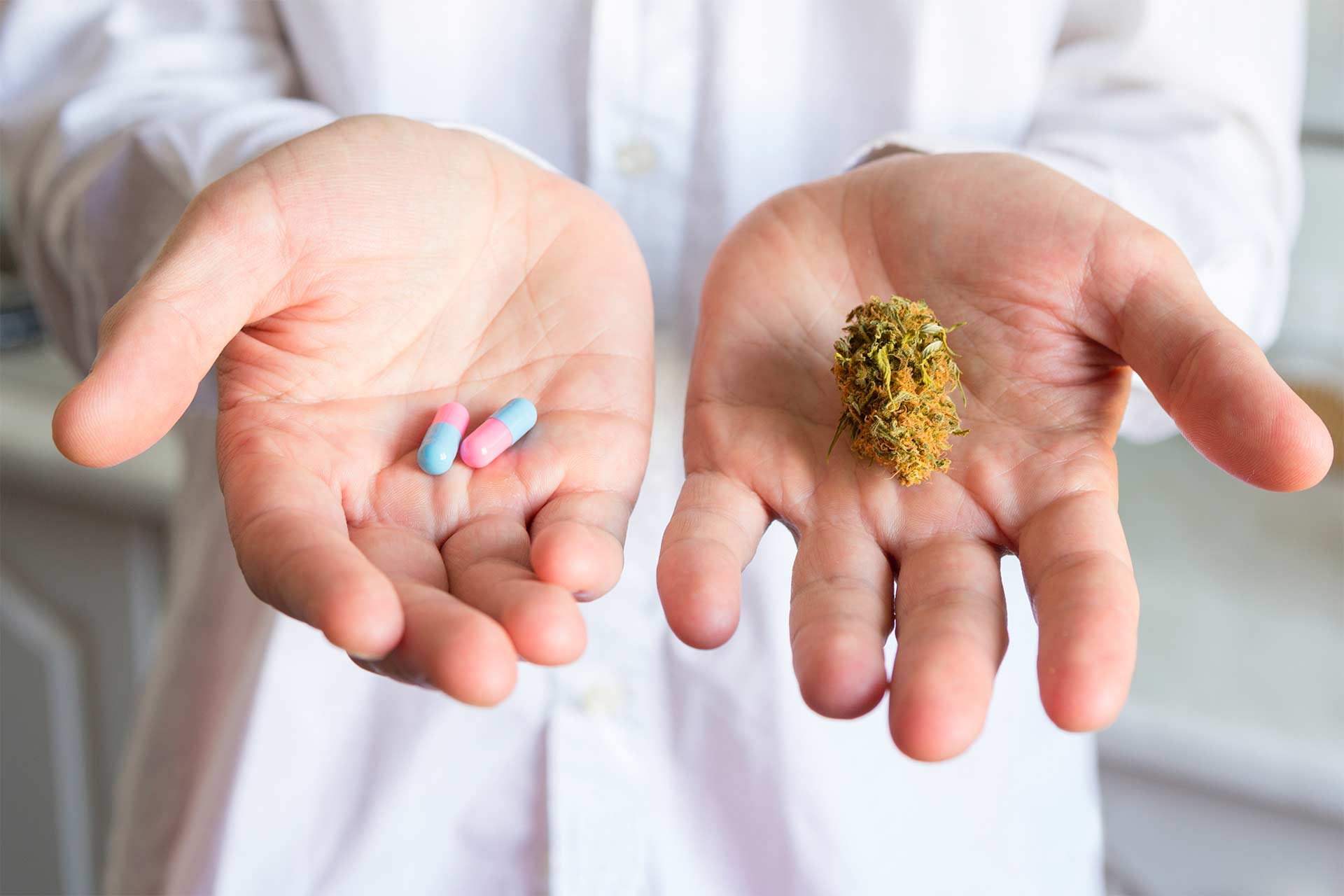
How a Med Card and a Prescription Are Different
You may think that the med card evaluation process will be a lot like getting a prescription from your primary care doctor. In fact, that’s rarely the case! The doctor’s certification simply tells the state that you qualify for a med card based on their assessment of your health history and conditions. It doesn’t tell you which products to start with or how much to take.
When you schedule a med card consultation, it’s worth asking whether the provider provides guidance on using cannabis to treat your health condition. If they do not, you may want to seek out a cannabis doctor who provides this service, such as Dr. David Gordon, who we recently interviewed or check out the Leaf411 vetted cannabis clinician on this page.
You can also reach out to a resource like the cannabis-trained nurses at Leaf411 for suggestions on where to start.
A Note for Patients Living in States Without Legal Cannabis
Cannabis containing over 0.3% THC remains completely illegal in 17 states. However, federally-legal CBD hemp products containing less than 0.3% THC are legal in almost all states. Full spectrum CBD hemp products contain many beneficial plant compounds shown to impact a variety of health conditions. In fact, even in states with legal cannabis, we sometimes suggest starting with CBD hemp products for certain health concerns.
At Leaf411, our cannabis nurses emphasize the safe legal use of cannabis. When you call, we listen to your specific needs and concerns. We will help find options and guide you to resources that best fit your lifestyle and health goals.
The Leaf411 cannabis nurse hotline, chat and scheduled nurse guidance call services provide education and directional support to the general public about the safe use of legal cannabis. We partner with select business members who meet our rigorous standards to extend our education and outreach efforts.
How to Use Cannabis
From Edibles to Vapes, Leaf411 Has Your Questions Covered
by Katherine Golden, RN – Founder and CEO of Leaf411
You have options when using cannabis
When we first started taking calls on the hotline, one of the biggest surprises was hearing how many people thought cannabis has to be smoked to be effective. In fact, we even featured this misconception as our first Question of the Month back in 2019!
Many different types of cannabis and CBD hemp products are available today. These different products are designed to fit a wide variety of needs. You should consider factors such as how quickly a product will take effect, how long the effect will last, and what issues you’re targeting.
Our cannabis-trained registered nurses are always happy to answer your questions. Give us a call at 844-LEAF411 (844-532-3411) or schedule a one on one call through our scheduling link.
In our guide below, we provide information on different options for using cannabis and CBD products. You’ll also find tips for getting the right dose of this plant-based medicine.
Tinctures
CBD hemp oil tinctures contain full spectrum, broad spectrum or CBD isolate in a plant-based carrier oil. If you’re purchasing a tincture through a dispensary, read the label. Some of these tinctures may contain the medical yet psychoactive cannabinoid THC.
Tinctures are available in different strengths and typically come in dropper bottles, making it easy to adjust your dose. They can be used by placing drops under your tongue. Some of the plant compounds will be absorbed directly into your bloodstream as a sublingual if the product is designed that way. That being said, most of the product is absorbed through swallowing. Tinctures also work well mixed into already prepared foods like sauces and soups, or warm beverages like coffee or tea. Tinctures are only for oral consumption.
When it comes to tinctures, think of the carrier oil as the vehicle that the cannabinoids travel in to enter your system.
Coconut or palm medium chain triglyceride (MCT) oil are both highly effective. These are the most common carriers for tinctures because they contain smaller fatty acid molecules which are easily absorbed.
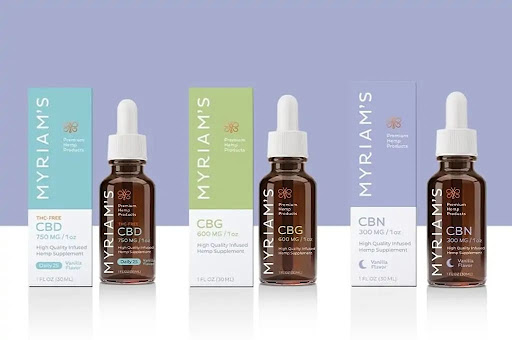
Myriam’s Hemp Tincture (MCT oil carrier)
Tablets & Capsules
Tablets and capsules containing THC or CBD provide a discrete, highly portable option. Soft gel capsules contain THC and CBD hemp in carrier oil, similar to tinctures. The carrier oil becomes especially important in these products, impacting how much of the CBD will be absorbed after the soft gel enters the digestive system. Capsules containing MCT oil or olive oil are especially effective.
Tablets are another popular option for using cannabis or CBD. This option is great because it resembles medications that patients are used to, like ibuprofen. Tablets and capsules are easy to use, discreet and familiar.
There are also sublingual tablets that dissolve under your tongue. Sublingual tablets work faster than swallowed pills since they are designed to be absorbed directly into the bloodstream.
Edibles
Edibles are a broad category containing anything…edible. This includes gummies, mints, chocolate, infused beverages and more.
Edibles face challenges moving through our digestive system. The THC, CBD and other plant compounds in edibles take time to reach the endocannabinoid’s CB1 and CB2 receptors via the intestinal tract.
When someone eats THC, only 4% to 12% gets into their bloodstream. Eating a meal also affects the absorption of cannabinoids. A study from pharmacologists at the University of Minnesota examined how eating a meal affects the absorption of CBD.
Also, edibles take longer to kick in. Many new users quickly decide that a single dose didn’t work and eat more. This can lead to an unwanted “high” several hours later when multiple doses suddenly take effect. We suggest that you wait at least two hours after eating an edible dose before deciding whether you need more.
Also, double-check the product label for dosage. In the non-cannabis realm, we’re used to the idea that one candy bar equals one serving. However, when it comes to products containing THC or CBD, the serving size is often a lot smaller.
Topicals
Topicals encompass a rapidly growing category that includes creams, gels, salves, and beauty products. The name implies that they are topically applied to your skin.
CBD topicals may work well for you if you are concerned about medication interactions. It’s also a popular option for people with arthritis who are seeking spot relief, as well as athletes looking for post-workout recovery.
Topicals that combine CBD and THC are a popular choice, as well as THC-only products. These are only available at dispensaries in states that have legalized cannabis.
Many of these products include a blend of essential oils and plant terpenes designed for localized pain relief, inflammation or improved pleasure with intimacy. THC topicals may include bath salts, massage oils, and creams. The cannabinoids in topical products interact with CB2 receptors in your skin but are not absorbed deeply enough to impact CB1 receptors. This means that they are very unlikely to deliver impairing effects. One exception to this is when topicals containing THC are considered “transdermal” or applied to mucous membranes. This includes mouth, nostrils, vulva or rectal tissues. Read more on transdermal products below.
Transdermal Patches and Pens
You might think that transdermal patches or gels are topical, since the medicine is absorbed into your skin. However, transdermal products provide a unique delivery through the skin. This method provides controlled release of cannabinoids directly into the bloodstream over a set period of time.
Transdermal drug delivery has a great advantage over oral administration. It avoids digestion and absorption of the gastrointestinal tract. As a result, transdermal delivery largely reduces drug toxicity and bypasses the first effect of drug absorption. This means more cannabinoids make their way into your bloodstream.
Mary's Medicinals Transdermal Gel Pen
Inhaling cannabis and CBD Hemp Flower
For many people, the first image that comes to mind when they hear “cannabis” is the plant flower that is smoked. In fact, the odds are that if you’re over the age of 30, your first experience with cannabis was smoking plant flower.
The cannabis plant has been smoked by humans since ancient times. Its status as an illegal substance in the United States is a tiny blip in time, when compared to its use throughout history. For many people, cannabis or CBD hemp flower remain their top choice for consumption.
Seed & Smith’s Mimosa (Clementine x Purple Punch) strain is good for relaxation.
Cannabis flower and CBD hemp flower is minimally processed and provides a range of plant benefits. Many different flower strains are available in the states with legal cannabis. Cannabis strains (chemovars) offer different ratios of THC, CBD and other cannabinoids. In addition, cannabis and hemp flower strains provide a range of terpene profiles that can add to the plant’s synergistic entourage effect.
Inhaling cannabis or CBD hemp flower, whether through smoking or vaping, provides a quick onset of the plant’s benefits. Smoking is also an integral part of cannabis culture used as a ritual for communities to come together socially.
Flower can be smoked with a bong or water pipe, with the flower placed into a bowl and ignited by flame. The smoke then passes through water, which cools it before being inhaled. Flower may also be smoked with a pipe.
You can roll cannabis flower into joints or buy pre-rolled joints. Pre-rolls provide a cheaper, easier option for sampling different strains.
Pay attention to any added ingredients as well. Some pre-rolls include added hash oil or kief to increase potency.
When you put a flame on a joint or bowl, you heat the flower to a point where the plant cannabinoids and terpenes combust into smoke so they can be inhaled. However, you’re also creating other combustion byproducts that carry their own side effects. While smoking is effective, it carries more risks and side effects than other methods of consumption.
Vaping cannabis and CBD Hemp
Vaping provides many of the benefits of smoking cannabis, without the concerns about combustion-related byproducts.
That being said, vaping-associated illnesses were in the headlines throughout much of 2019. The source of illness was narrowed down to illegal market vape cartridges which often contained vitamin E acetate or other contaminants. We previously shared our insights into the crisis in this blog post.
At Leaf411, we believe that vaping flower can provide a highly effective, fast-acting option for some people in need of a treatment option for pain or anxiety/panic attacks. However, we encourage you to seek advice from a qualified cannabis clinician for specific dosing recommendations.
Desktop and portable dry herb vaporizers are designed specifically for flower. These vapes don’t ignite the plant material with flame. Instead, they cook it, releasing the cannabinoids and terpenes in a vapor mist instead of smoke. This creates a smoother inhalation experience. Many dry herb vaporizers also let the user control the temperature, which impacts which cannabinoids and terpenes are released.
Although most medical practitioners will suggest only vaping flower, reputable vape oil devices can provide an even more customized experience, with a wide range of products available. Some vapes even connect to smartphone apps, much like a FitBit, allowing you to track your favorite products, temperature ranges and doses.
A word of caution, vape cartridges may also contain additional additives and thinning agents to improve performance in vape devices. It’s important to check vape cartridge ingredients to ensure that the cartridge doesn’t contain vitamin E acetate, polyethylene glycol (PEG), propylene glycol (PG), MCT oil, coconut oil or any other emulsifiers or synthetic agents. You can find additional tips for selecting a safe vape here.
The Leaf411 cannabis nurse hotline provides education and directional support to the general public about the safe use of legal cannabis. We partner with select business members who meet our rigorous standards to extend our education and outreach efforts.
Answering Your Delta-8 Questions
Written by Eloise Theisen, MSN, AGPCNP-BC, and Whittney Wacker, BSN, RN
Delta-8: An increasing popular cannabinoid on hemp product menus
In recent months, our Leaf nurses have gotten a lot of questions about Delta-8, which is sold in many states. Though Delta-8 is made from hemp, its effects are very similar to Delta-9 found in cannabis. Both Delta-8 and Delta-9 are forms of tetrahydrocannabinol (THC), which has an intoxicating effect, though the effects of Delta-8 are said to be less intense.
Hemp CBD companies have been adding this cannabinoid to their menus, offering it as a new option. Even though Delta-8 THC is readily available, quality education around this cannabinoid is missing. Consumers are confused, with questions like:
- What is Delta-8?
- Will Delta-8 get me high?
- Will Delta-8 help manage health conditions?
- Is Delta-8 legal?
- Will Delta-8 cause me to fail a drug test?
- How do I safely use Delta-8
Below, we’re sharing answers to these common questions about Delta-8. Of course, we always encourage you to call our free RN-staffed Leaf411 hotline at 844-LEAF411 (844-532-3411), as well!
What is Delta-8?
Delta-8 THC is found naturally in the cannabis plant, but only in small amounts. It occurs through degradation of Delta-9 THC. The higher amounts of Delta-8 THC seen on the market are coming from hemp. According to Project CBD, “Nearly all the Delta-8 on the market today is produced by chemically tweaking CBD in a laboratory. In other words, it is not directly extracted from the hemp plant but is synthesized from CBD that is directly extracted from the plant.”
In order to get the larger amounts of Delta-8 THC found in vapes, gummies and tinctures, CBD is converted to an isolate. From there, a solvent is added to liquify the isolate and an acid reagent is added to create a chemical reaction that produces the Delta-8 THC.
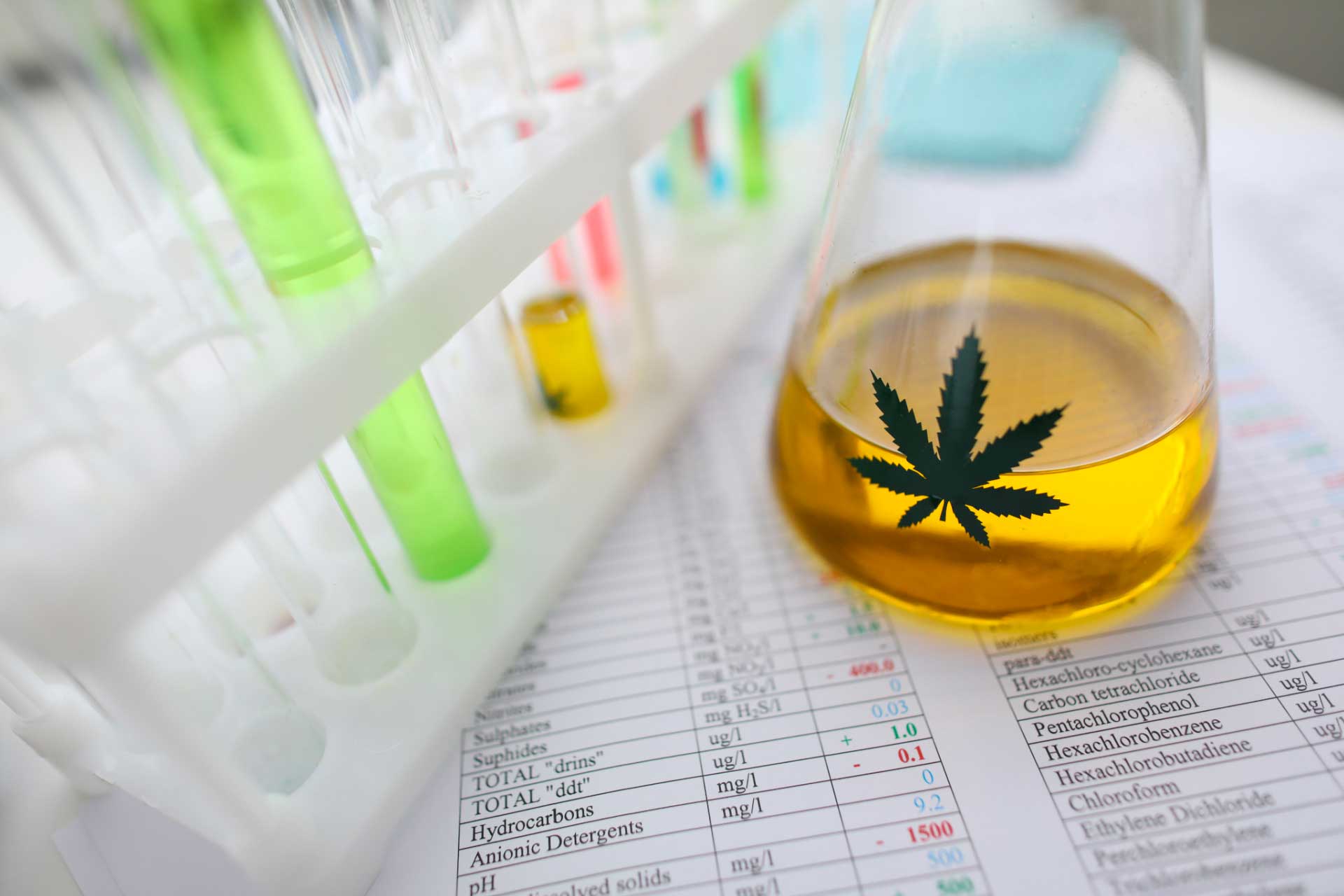
How are Delta-8 products tested for potency and safety?
Testing for Delta-8 THC in products and people is another gray area. There is no limit on how much Delta-8 a product can contain. However, in order to comply with the 2018 Farm Bill, these products must also meet federal hemp guidelines with less than 0.3% of Delta-9 THC (the other THC found in larger amounts in marijuana) at dry weight to be compliant.
Leafreport recently tested 38 products to see how much Delta-8 THC was in the product. Twelve out of the 38 products tested within 10% of the label claim, which represents 32% of the total products tested. Additionally, of the 38 products, 20 of them tested above the legal limit for Delta-9 THC.
When looking at companies who are selling Delta-8 THC, be sure to choose ones that provide a certificate of analysis (COA). Without a COA, it is hard to know how much THC or other cannabinoids may be in the product. The COA is the best way to verify the claims made on the company website.
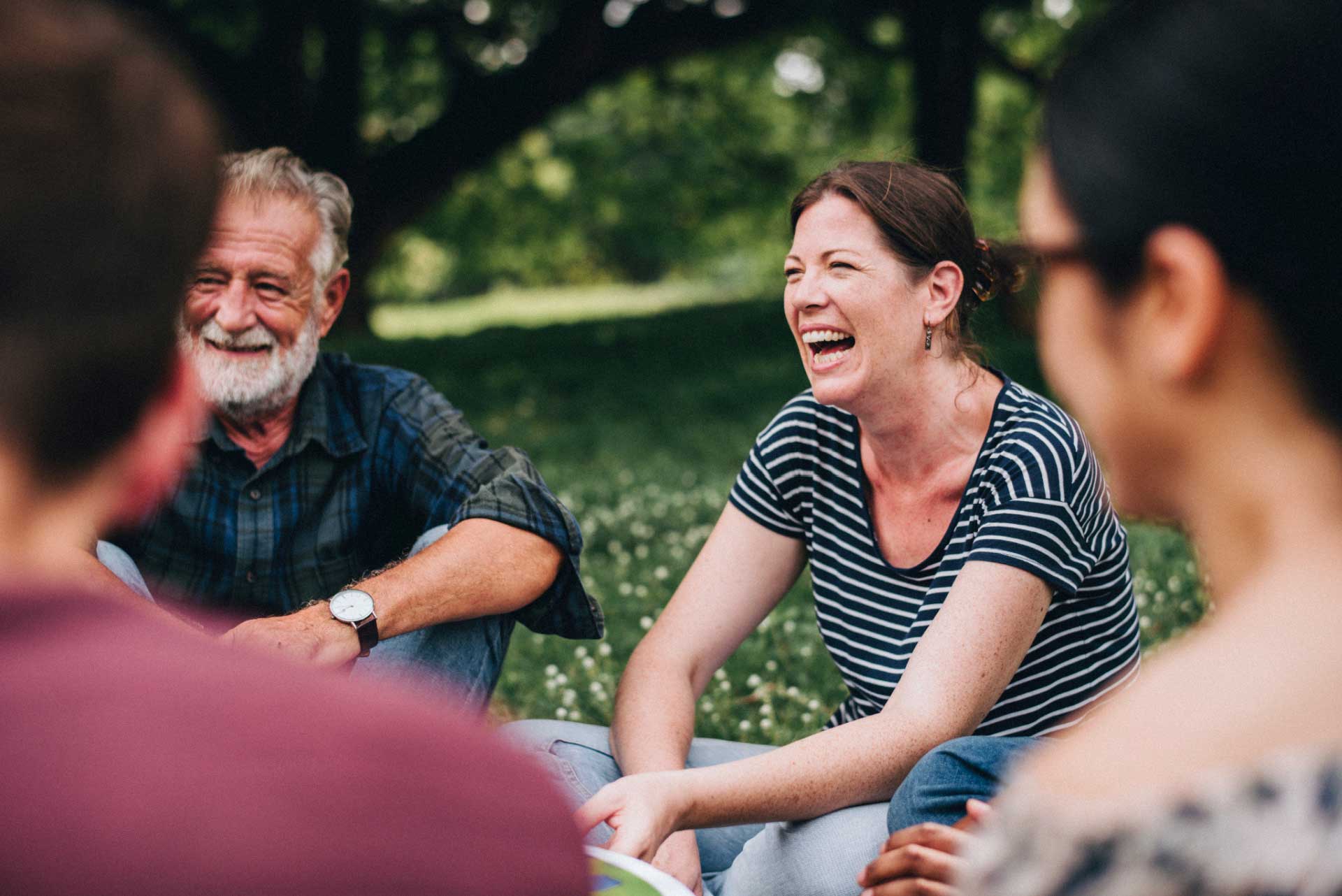
Will Delta-8 get you high?
Radicle Health describes Delta-8 THC as an isomer (same formula but a different arrangement of atoms) of Delta-9 THC with subtle differences.
We know that Delta-8 THC interacts with our endocannabinoid system (attaches to the CB1 and CB2 receptors just like Delta-9), and research suggests that it is about two-thirds as potent as Delta-9 THC.
It is likely that consuming Delta-8 THC will produce similar euphoric and impairing effects to Delta-9 THC. Consumers may also experience dizziness, drowsiness, increased appetite, feelings of relaxation, dry eyes and dry mouth.
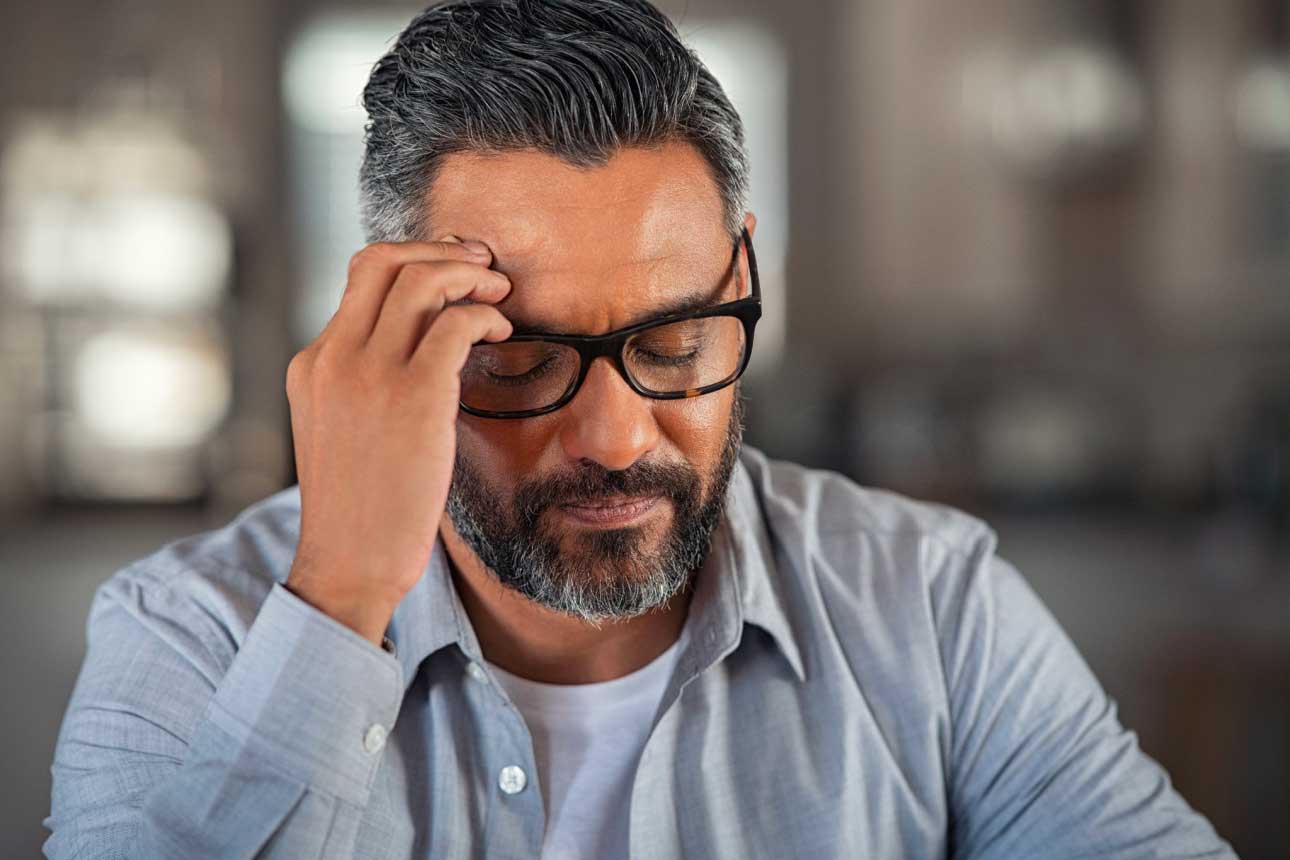
Is Delta-8 good for pain, inflammation, insomnia or other concerns?
Research is sparse on the medicinal benefits of Delta-8 THC. A total of nine studies have been completed. Five animal studies, two meta analyses, one lab study and one human trial with eight patients. Those studies looked at Delta-8 THC to treat pain, inflammation, nausea and vomiting, and appetite stimulation and the majority were inconclusive.
With limited data, it is difficult to draw conclusions as to whether Delta-8 THC is effective at treating pain, inflammation, appetite and nausea and vomiting. Yet we see claims all over the internet promoting Delta-8 THC for a variety of conditions. The truth is the evidence is not there to support most of these claims.
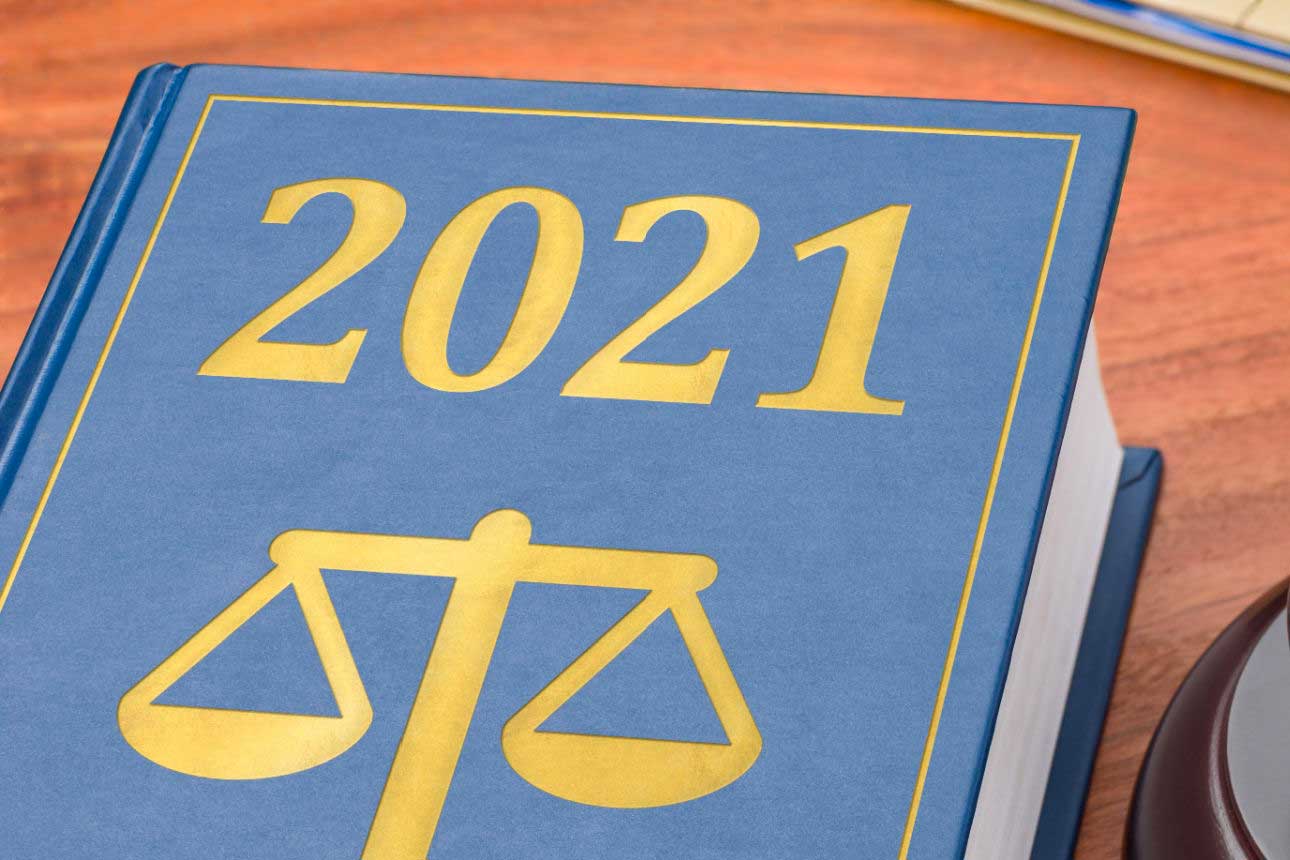
Is Delta-8 legal in your state?
Despite the lack of evidence, Delta-8 THC products have hit the market and consumer interest has exploded. Products range from gummies, vapes, flowers and tinctures and are available online or through local retailers.
Delta-8 THC is being sold under the 2018 Farm Bill which legalized hemp. Whether or not this is legal is still a bit of a gray area. The Farm Bill does not allow for synthetic cannabinoids and the current process for the majority of Delta-8 THC on the market goes through a synthetic process converting CBD to Delta-8 THC. Additionally, the Drug Enforcement Agency (DEA) stated in an Interim Final Rule, that synthetically derived substances are a schedule I drug.
It is important to know your state laws on cannabis and hemp. Some states have started to enact legislation banning Delta-8 THC. Here is a map of states that have banned Delta-8 THC, as of May 21, 2021:
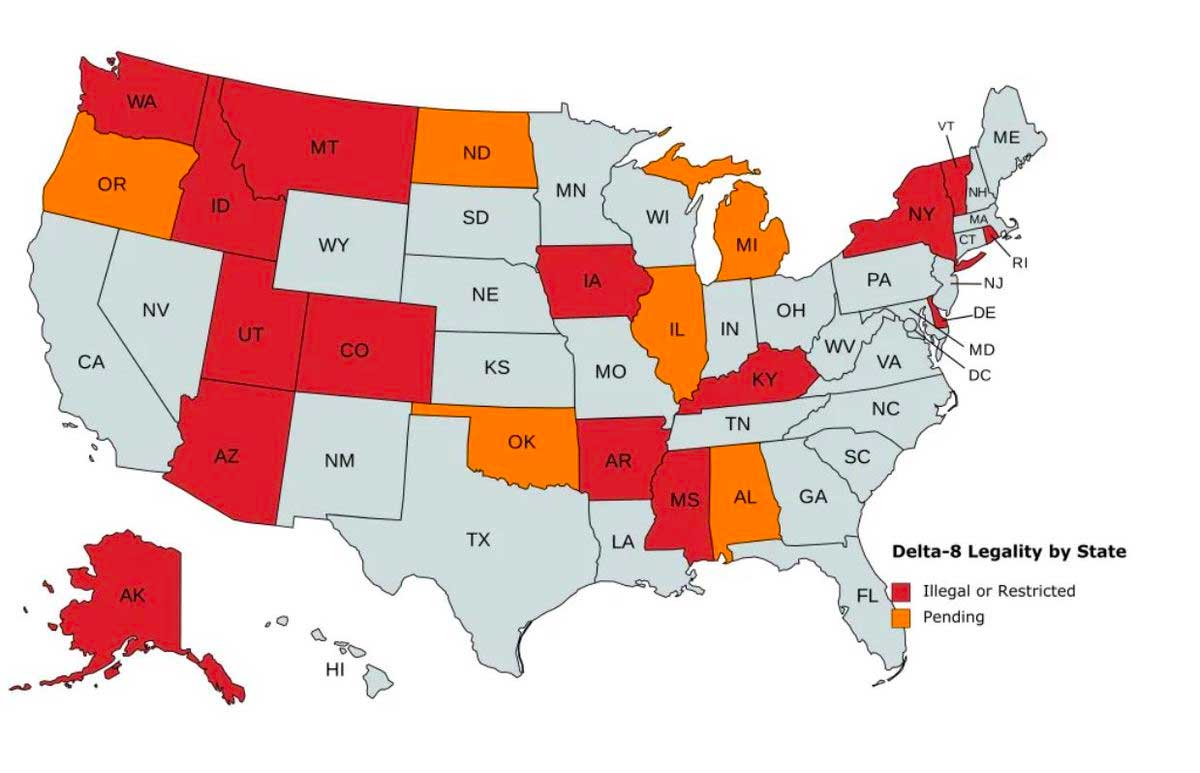
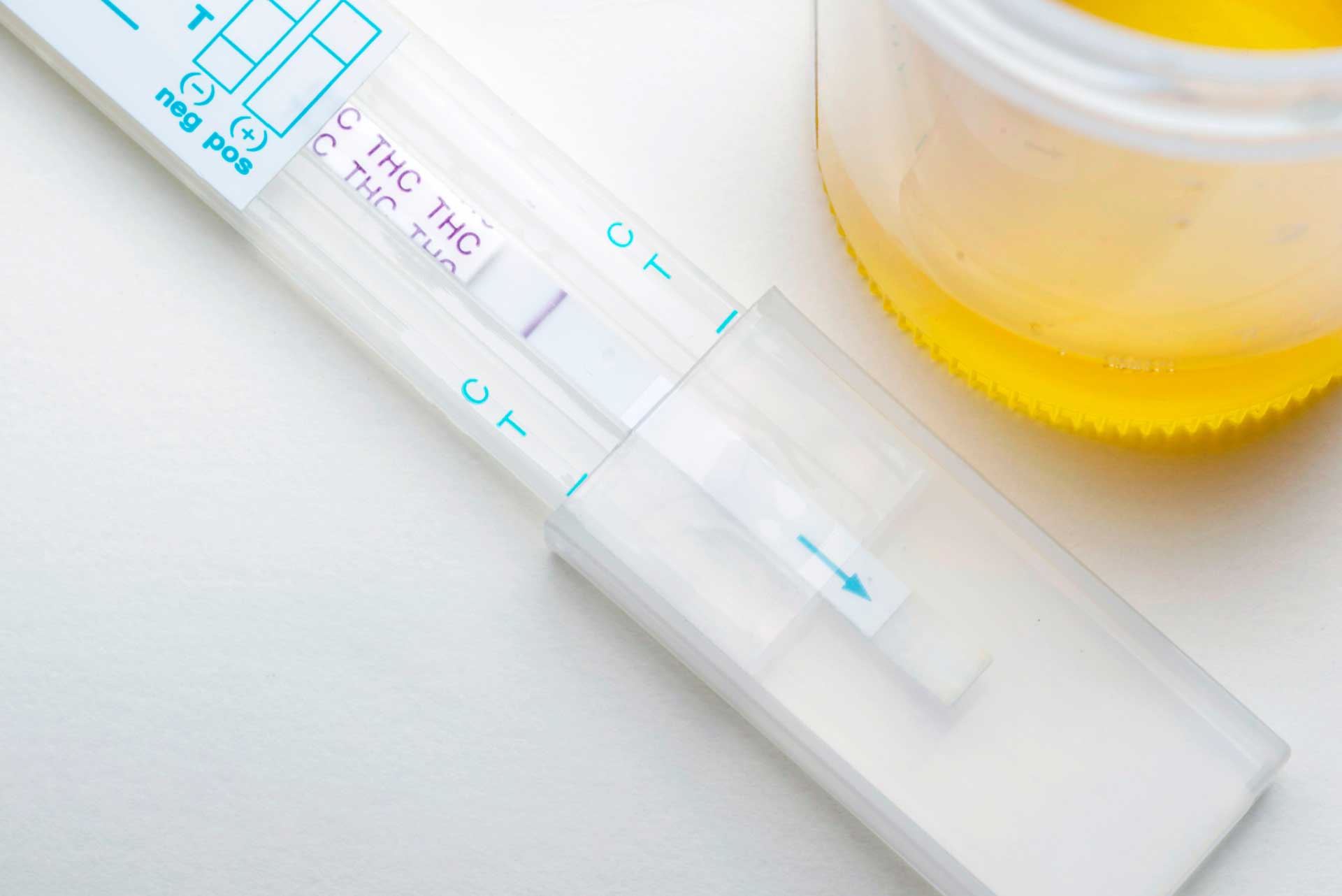
Will Delta-8 show up on a drug test?
The biggest question that remains is whether consuming Delta-8 THC will lead to a positive urine drug test. If you look on the internet, you will find a variety of blogs that claim you will and others that claim you will not.
Some of these websites state that all forms of THC can be detected in a urine drug screen and it doesn’t matter whether it is Delta-9 or Delta-8. However, there is no science to validate this claim. It gets even more complicated when you consider that most Delta-8 THC products are synthetic. Synthetic cannabinoids are not likely to be detected in a urine drug screen.
At this time, it is difficult to say with certainty whether current drug panels will detect Delta-8 THC in the urine. There is a chance that the product may contain levels of Delta-9 THC that would be detected in a urine drug screen. Until we know more about testing for Delta-8 THC, it is important to err on the side of caution and avoid consuming cannabinoids if you cannot afford to fail a drug screen.
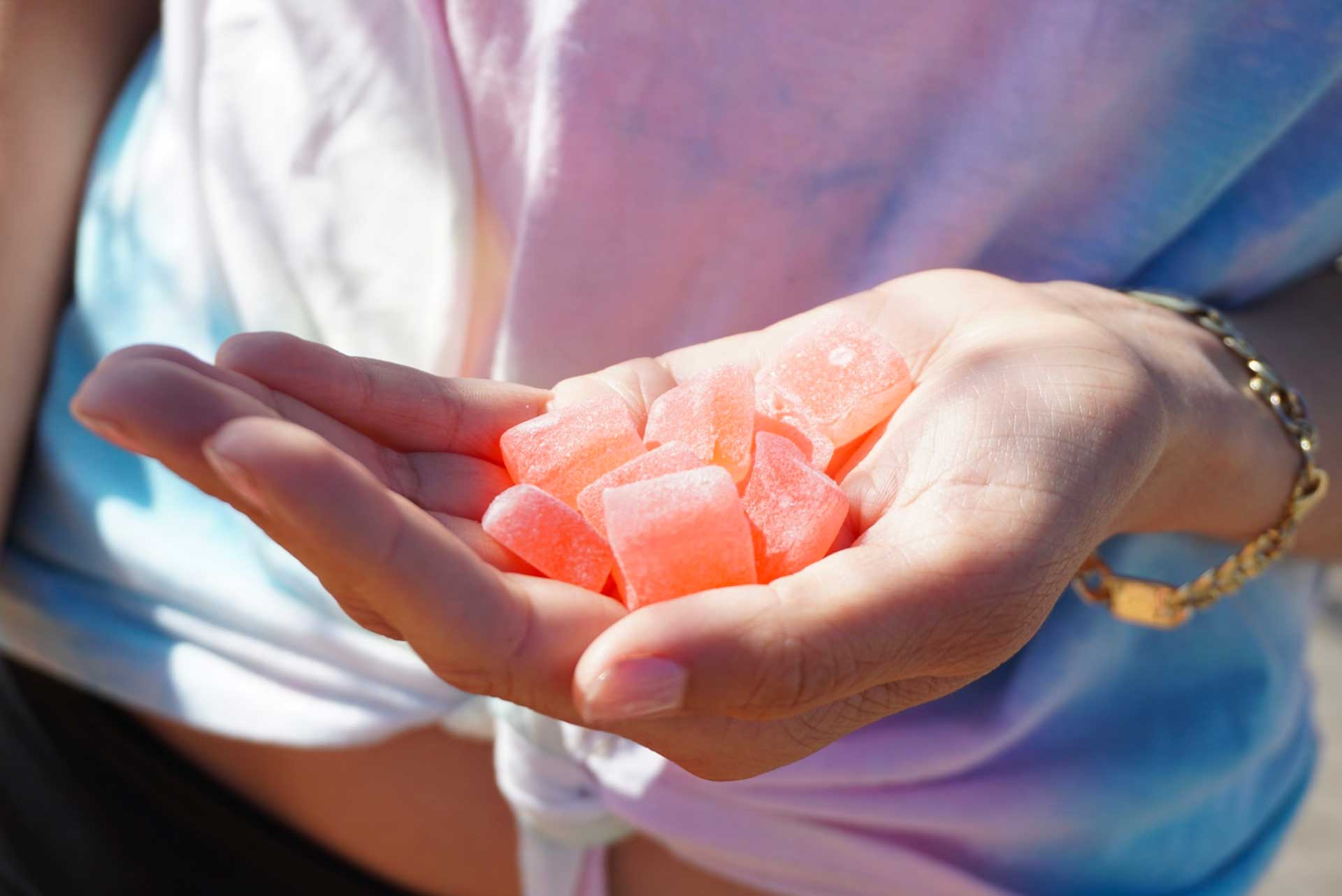
How to use Delta-8 products
Consumer interest and use has outpaced education and research once again. While it appears that Delta-8 THC is similar to Delta-9 THC, there are still a lot of unknowns with regard to side effects, dosing and clinical applications.
For those who are curious and want to explore Delta-8 THC, be sure to look for products that are lab tested and always start low and go slow when increasing your dose.
- We suggest starting with a dose between 2mg and 5mg of Delta-8 THC.
- You may need to split a single gummy into several pieces or only use a small amount of a tincture to get a low dose.
- Remember that cannabinoids taken by mouth may take between 30 minutes and 3 hours before you feel any effects. One of new consumers’ biggest mistakes is thinking that the Delta-8 is not working and ingesting more, before the original dose had time to take effect. This can result in you feeling more intoxicated than desired.
- While Delta-8 and Delta-9 are similar, they are not the same, and many consumers report different effects from each. Even if you’re an old pro with cannabis products containing Delta-9, we suggest starting low with Delta-8 so that you can get a sense of how your body reacts to the cannabinoid.
Not sure how to split a Delta-8 edible into smaller doses? We know it can be confusing! Call our Leaf411 hotline at 844-LEAF411 (844-532-3411) and our Leaf Nurses will guide you on how to split your edibles, tinctures or other products into an optimal starting dose.
Leaf411 can help answer your Delta-8 questions
As the science around Delta-8 continues to grow, our fully-licensed nurses on the Leaf411 hotline are ready to educate and update you on this potentially therapeutic cannabinoid, regardless of whether you live in a legal state or not. Call us at 844-LEAF411 (844-532-3411).
Article Sources
- https://www.projectcbd.org/politics/delta-8-thc-controversy
- https://www.hempgrower.com/article/delta-8-cannabidnoid-how-its-made-extraction-testing-measuring/
- https://www.leafreport.com/education/delta-8-thc-products-market-report-11339
- https://www.radiclehealthcare.com/post/understanding-delta-8-thc
- https://www.radiclehealthcare.com/post/understanding-delta-8-thc
- https://doi.org/10.1002/cpt1973143353
- https://www.congress.gov/bill/115th-congress/house-bill/2/text
- https://harrisbricken.com/cannalawblog/is-delta-8-thc-a-controlled-substance-yes-no-maybe/
- https://mogreenway.com/2021/05/11/delta-8-legality-map/
- https://www.redwoodtoxicology.com/docs/services/3370_sc_faq.pdf
Is Live Resin Cannabis Worth the Cost?
Taking a closer look at what makes live resin different and its potential therapeutic benefits
Medically reviewed by Katherine Golden, RN
Written by Denise Rustning
Live resin is really all about terpenes, the delicate aromatic plant compounds that pack a therapeutic punch but can be destroyed during conventional extraction processes. Live resin is extracted using specialized processes that preserve terpenes and other plant compounds, retaining more of the whole plant instead of adding terpenes back in later on.
These terpenes play a big role in the effects you get from different cannabis chemovars (strains), a topic we’ve covered before on the blog.
As dispensary shelves become more crowded, cannabis manufacturers are looking for new ways to differentiate and offer products that meet unique consumer needs and tastes. Products containing live resin, including concentrates, vapes and even edibles, are one way manufacturers are looking to stand out. But from a consumer perspective, is live resin worth seeking out?
What is live resin?
Live resin is full-spectrum concentrate made from freshly harvested cannabis plants that are quickly flash frozen, retaining most plant compounds, including the delicate trichomes containing terpenes and flavonoids. This differentiates it from other concentrates made from dried and cured cannabis plants.
(Wondering what trichomes are? Tomatoes are another familiar plant with trichomes. If you’ve brushed across the tiny hairs on tomato leaves and stems, releasing a strong-smelling substance, then you’ve had a firsthand experience with fresh trichomes!)
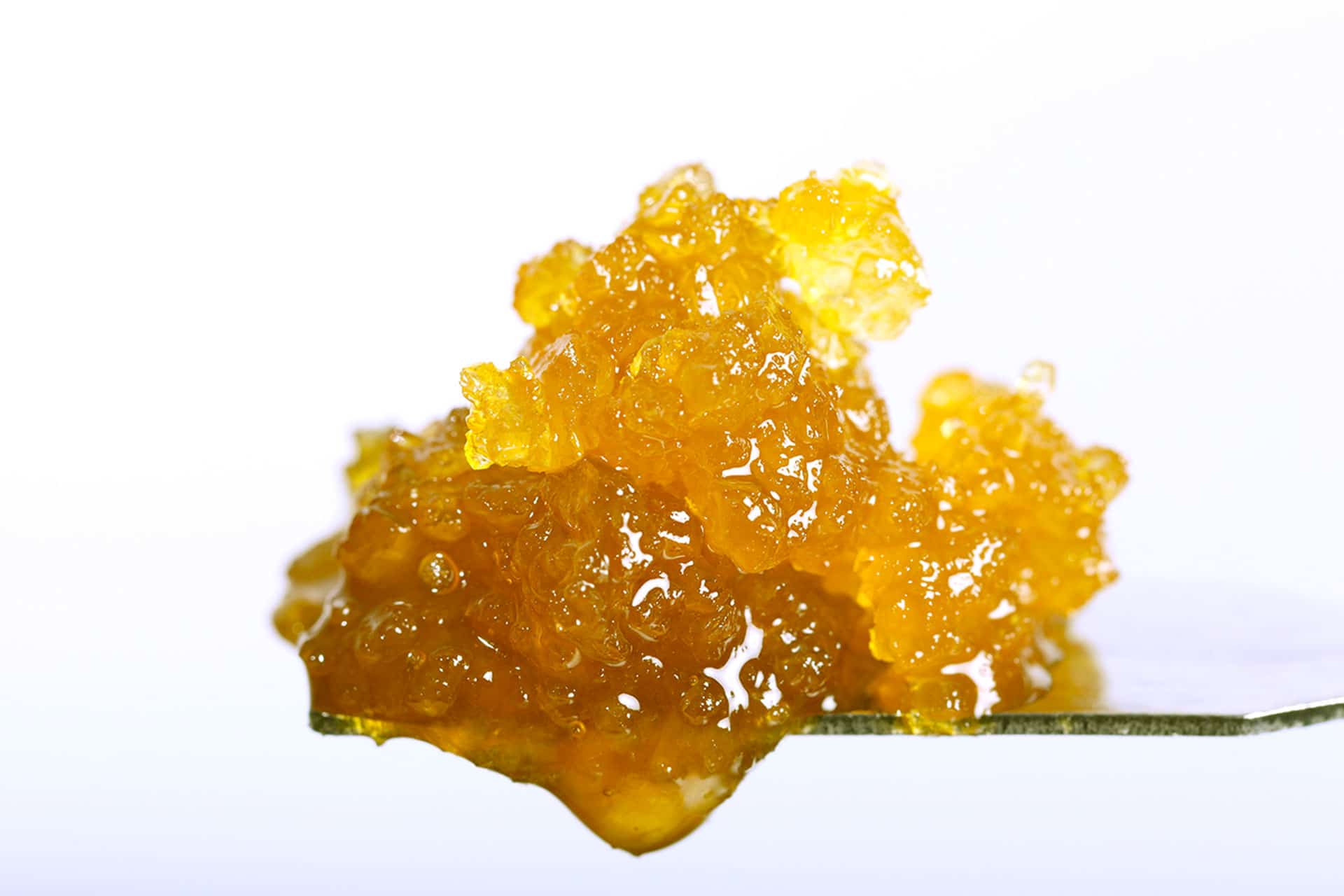
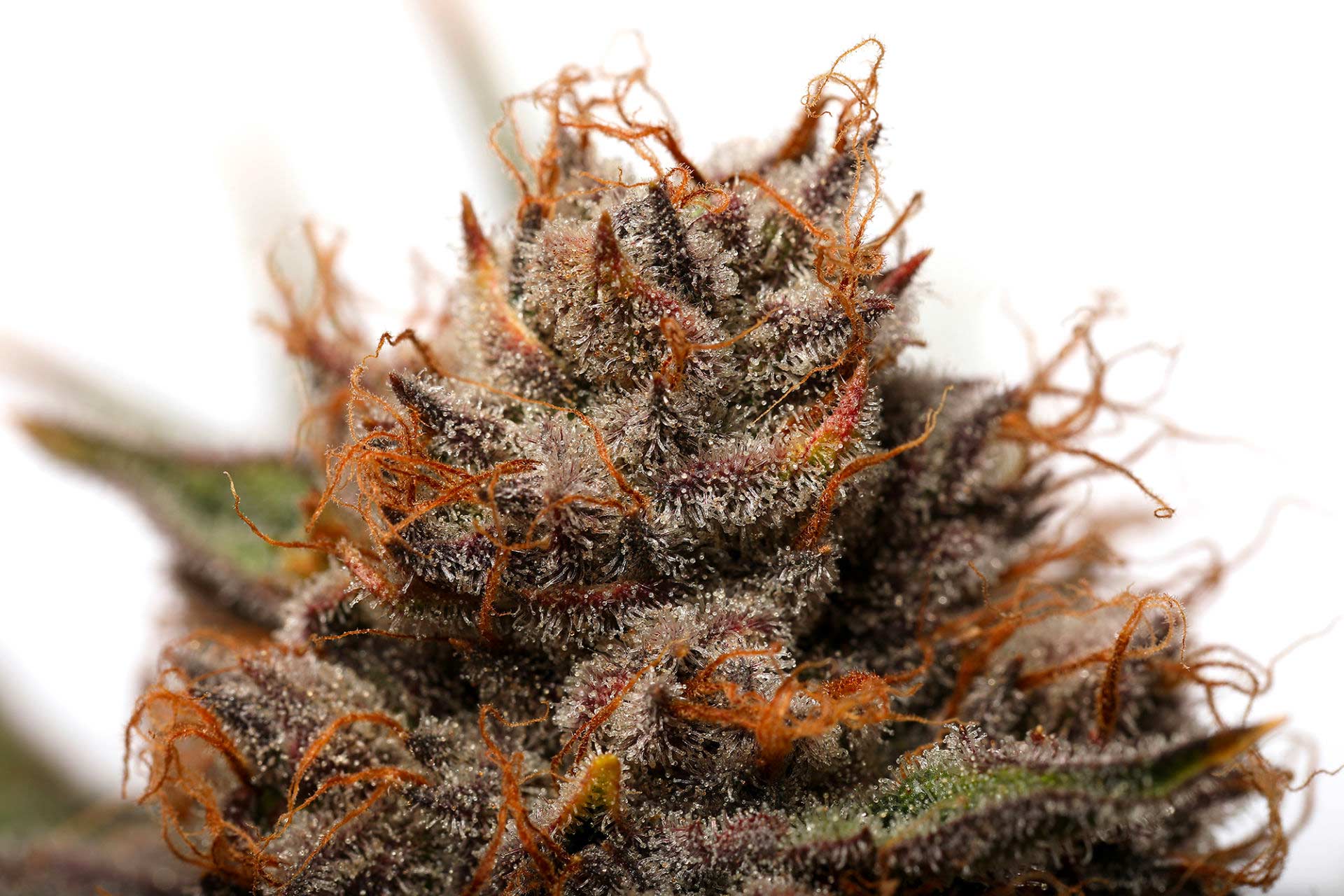
How is live resin produced?
Back to our live resin. The plant flash-freezing process is followed by carefully controlled extraction at low temperatures, retaining all the plant compounds. Some popular extraction methods include hydrocarbon extraction and butane hash oil (BHO) extraction.
It’s important to note legal cannabis manufacturers use modern laboratory equipment and follow commercial fire and safety protocols to ensure the extract is safely produced and tested for any residual solvents. Butane hash oil extraction is something you should NOT try at home!
The live resin extraction process contrasts with more conventional methods where cannabis plants are first dried and cured with heat and decarboxylation to create THC distillate. Depending on the product type, manufacturers may re-introduce terpenes, CBD and other cannabinoids, along with flavoring and other ingredients later in the production cycle to create specific product effects.

Is live resin better than THC distillate products?
Does live resin’s unique extraction process make it superior to products made with THC distillate? Not necessarily.
Live resin is only as good as the quality of the plants that went into its production. In addition, the live resin extraction process is complex and time-consuming. If a manufacturer takes shortcuts, they risk losing valuable terpenes or end up with a product that contains residual solvents.
Also, THC distillate made from dried and cured plants often proves more efficient for ingestible products because it can be more precisely measured into a uniform dose.
Both budget and personal preferences also come into play. You may try a live resin product and love the effects and flavor or alternately be left wondering what the hype is all about.
When it comes to therapeutic benefits, live resin may have an edge, given that it preserves more of the whole plant compounds, including a higher concentration of naturally occurring terpenes than you’ll find in dried flower. Terpenes play an important role in cannabis’s healing power, with a wide range of effects. In a previous blog, we provided tips on how to identify the best terpenes for your needs.
However, everyone’s endocannabinoid system is just a little bit different when it comes to cannabis, which really is individualized medicine. Our Leaf hotline nurses are experts when it comes to terpenes and the pros and cons of live resin products. They are ready to help with your questions via our free hotline at 844-LEAF411 (844-532-3411).

Learning more about live resin product types
Live resin is popping up in more legal cannabis products on today’s dispensary shelves. It can be confusing to sort out all the options! Here’s a quick primer on different live resin products:
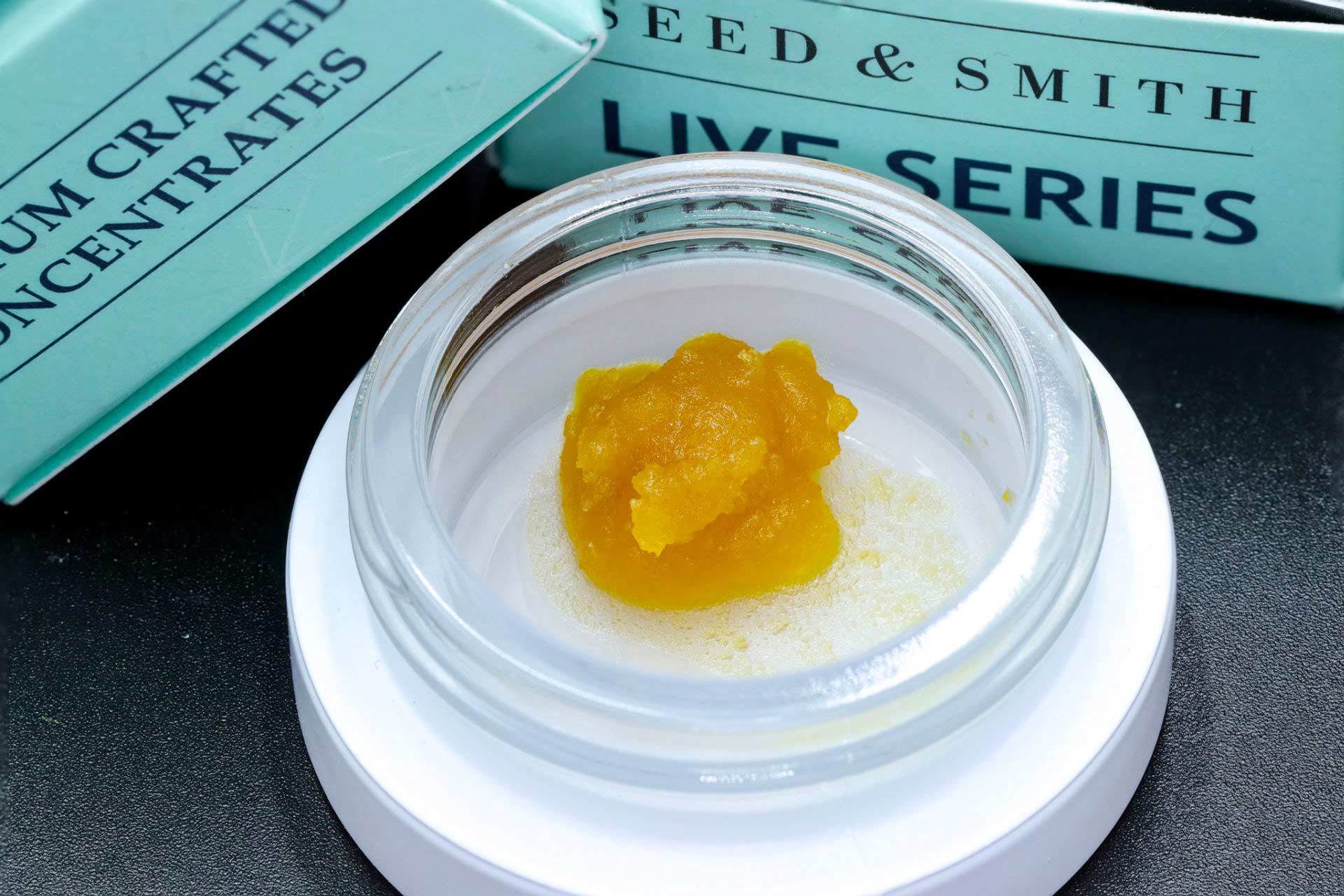
- Live resin concentrates: Live resin concentrates can be dabbed (smoked using a specially-designed dab rig), or sprinkled on top of cannabis flower before smoking to enhance flavor and boost potency. Remember that a little goes a long way! Leaf411 supporting member Seed & Smith produces a range of high-quality concentrates extracted from unique, small-batch flower strains. You can see examples of different concentrates at this link.
- Live resin vapes: Vaping is a common way that people use cannabis concentrates, and live resin vapes are quickly growing in popularity as consumers look for options that reflect the full plant profile. Live resin vapes also should not contain cutting agents like Polyethylene Glycol (PEG), Propylene Glycol (PG) or MCT oil, which can be found in some distillate-based vape cartridges.
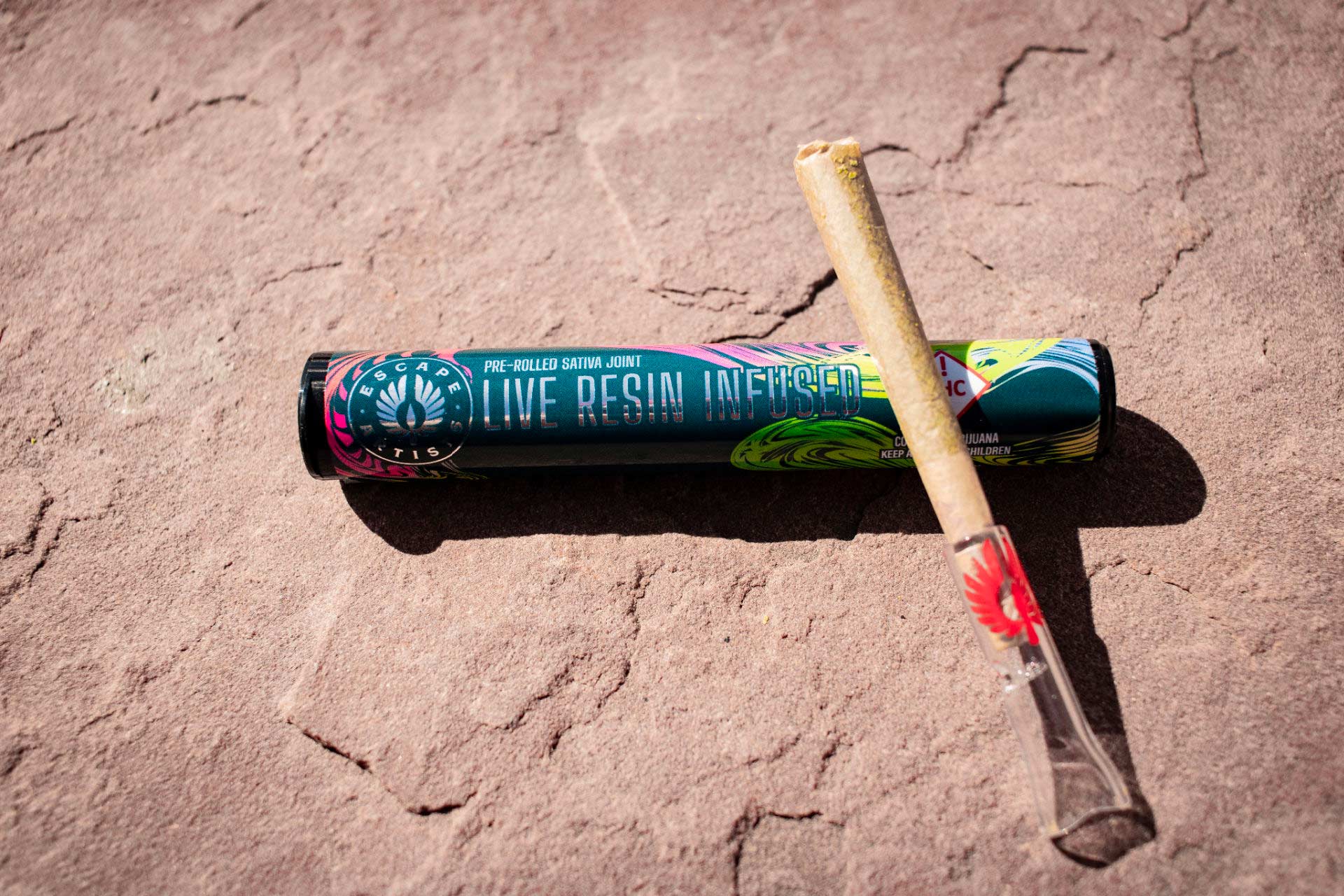
- Live resin prerolls: If you’re curious to discover how live resin can enhance a joint but not sure about rolling one yourself, some brands are now offering live resin-infused prerolls, including our supporting member Escape Artists. Of course, quality matters, which is why Escape Artists combines the best full buds (not shake) and live resin for their prerolls. Remember that a live resin joint is more potent than your standard joint–one puff may be all you need!
- Live resin edibles: Live resin edibles are newer to the scene. While terpenes primarily interact with the body’s endocannabinoid system via smell, they can also affect the digestive system where many endocannabinoid receptors are located. Brands like Dialed In Gummies are now offering single-strain edibles produced using low-heat sous vide methods to retain all the original plant compounds. (Technically, Dialed In Gummies uses live rosin, which is very similar to live resin, except that extraction does not involve butane or other solvents.)
How to get started with live resin
When trying out a live resin product for the first time, our advice is to start with a low dose and go slow. A little goes a long way! This is especially true with cannabis concentrates that can be very potent, containing up to 90% THC. Going slow also allows you to appreciate the complex terpene profiles you’ll find in live resin products.
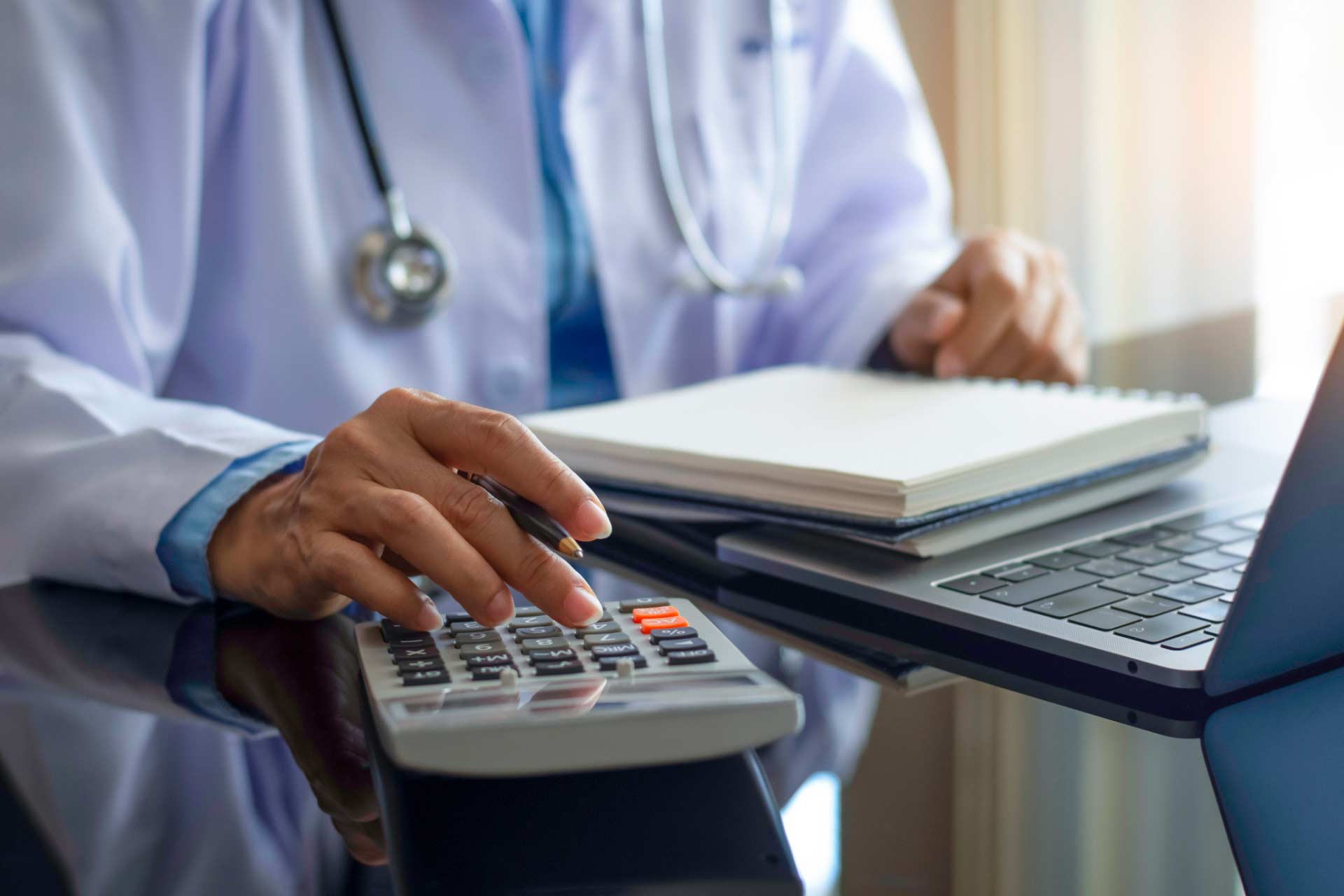
But is live resin worth it?
Circling back to our original question, which we’re sure is on your mind as well: How much more does live resin cost and is it worth it?
Based on a quick look at two of our Colorado dispensary supporting members, Lightshade and Nature’s Gift Shop, live resin products fetch a premium, typically costing more than their distillate-based counterparts. This makes sense given the time-consuming, complex extraction processes used to make live resin. If you’re eager to explore a wider range of cannabis products, the extra cost may be worth it.
However, if you’re looking for a specific therapeutic benefit from cannabis, the answer is less clear. A lot depends on the health issue you’re dealing with, as well as the type of relief you’re seeking. Our cannabis-trained, fully-licensed Leaf RNs are more than happy to help you determine whether live resin may be a good option, or if a distillate-based product may provide targeted benefits at less cost.
Call our free, anonymous hotline at 844-LEAF411 (844-532-3411), or chat us from our home page during hotline hours, Monday-Friday from 9:00 a.m. to 7:00 p.m. for help with your live resin questions or any other cannabis or CBD hemp questions on your mind!
The Leaf411 cannabis nurse hotline provides free, anonymous education and directional support to the general public about the safe use of legal cannabis. We partner with select business members who meet our rigorous standards to extend our education and outreach efforts.
Saving Money on Cannabis
Learn how dispensary deals and specials can save you money
Medically reviewed by Katherine Golden, RN
Written by Denise Rustning
Cannabis is an amazing plant. Depending on the cultivar (strain), it may serve as an effective tool for pain relief, sleep support, or even pre-workout motivation! However, the cost of cannabis adds up. Today we’re sharing our top tips for saving money on cannabis, and it starts with knowing what you need, as well as where to look for discounts and deals on cannabis products.
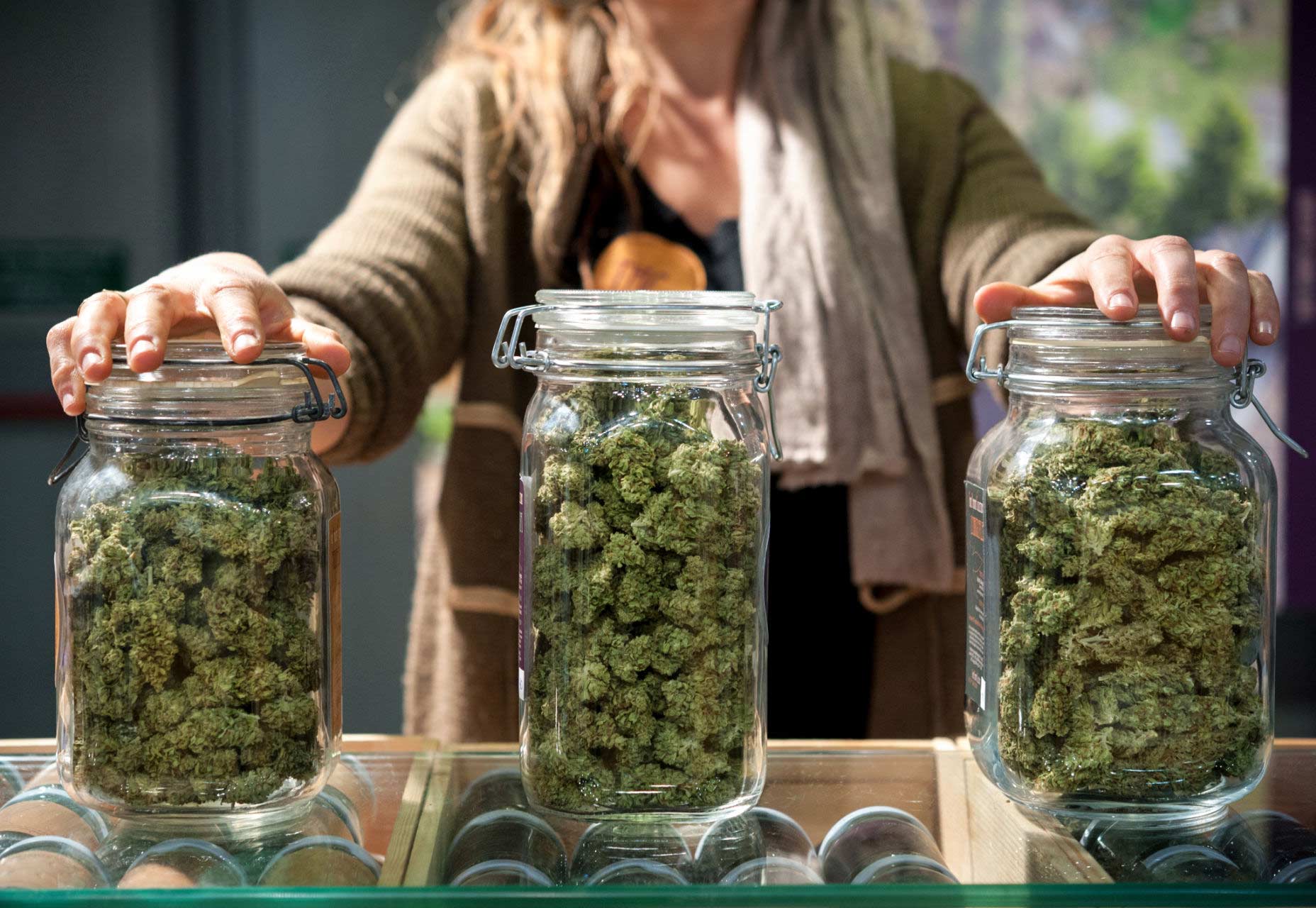
Before You Shop: Know Why You Want to Use Cannabis
One of our top tips for saving money on cannabis is to start by identifying why you want to use cannabis, then find the strains or product types that match your goals before you head out to the dispensary. Otherwise, you could end up buying something that sounds good, but doesn’t align with your needs.
For example, if flower is your preferred type of medicine, the Red-Headed Stranger strain might pique your interest based on its name (yes, it is named after Willie Nelson’s 1975 album!). Red-Headed Stranger may become your best friend if you’re looking for a creative, energizing daytime boost. However, if your goal is improved rest, then this strain would not be a good fit.
Cannabis products are also available in different potencies, different ratios including both CBD and THC, and a wide range of product forms including flower (bud), concentrates, tinctures, pills, edibles, topicals and even suppositories that have different onset and offset times.
While you may be tempted to say, “Give me your strongest stuff!” to the budtender, in reality, a smaller dose or different form may be more effective (and less expensive!) for your needs.
Every day, our Leaf nurses help callers sort through all the options available in dispensaries, providing impartial, balanced guidance and education. Call our free hotline at 844-LEAF411 (844-532-3411) for help with your questions.
Dispensary budtenders can also help point you in the right direction; however, keep in mind that they are not medical professionals, and in fact are restricted from giving medical advice.
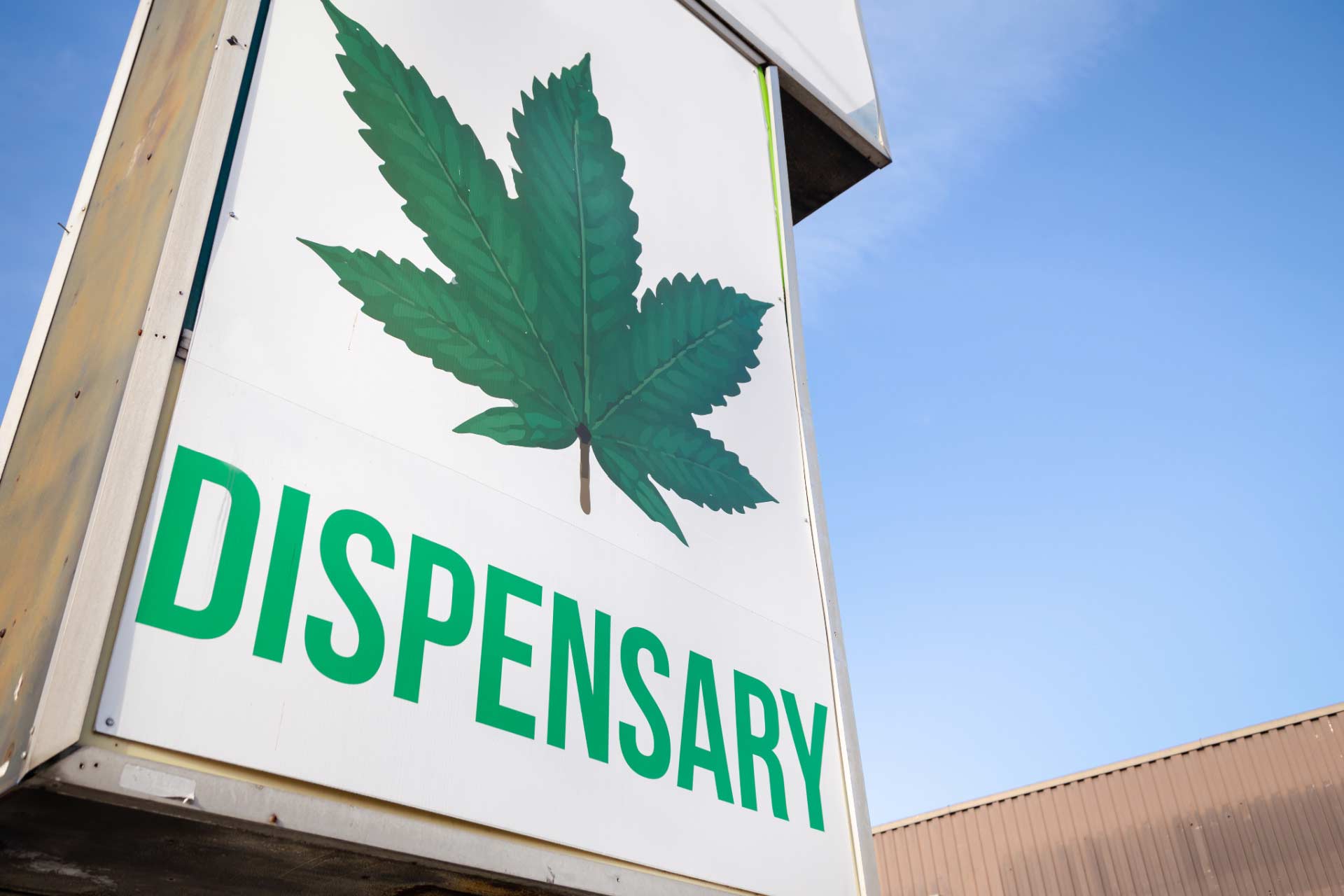
Finding Dispensary Deals and Specials
You’ve done your research and narrowed down your product selection. Now, let’s turn to ways to save money on your cannabis.
Cannabis advertising is heavily restricted. You won’t find dispensary sales circulars tucked in your mail. However, cannabis retailers in most legal states can offer specials to consumers—you just need to know where to look for the details!
Visit a dispensary’s website and you’ll likely find recurring specials on a set day of the week, making it easy to plan your shopping around your product preferences. Are you an edibles fan? Many dispensaries offer 10%-20% discounts on edibles on Mondays or Tuesdays. Other days may feature specials on flower, concentrates, topicals or products containing CBD. By timing your shopping trips around these weekly specials, you can save considerable money.
In addition, some dispensaries offer ongoing discounts to Veterans and to customers who are 65 or older. It doesn’t hurt to ask if the dispensary offers these discounts!
Beyond ongoing promotions, dispensaries often hold sales in conjunction with product launches or holidays. Again, the dispensary’s website is the best place to look for these specials.
Why don’t dispensaries share their specials on social media? Most social media platforms have strict rules against online cannabis sales advertising, though cannabis businesses may share informational or educational content.
Finally, use in-person sources of information. When you visit a dispensary, it’s always worth asking your budtender about upcoming sales on your favorite products.
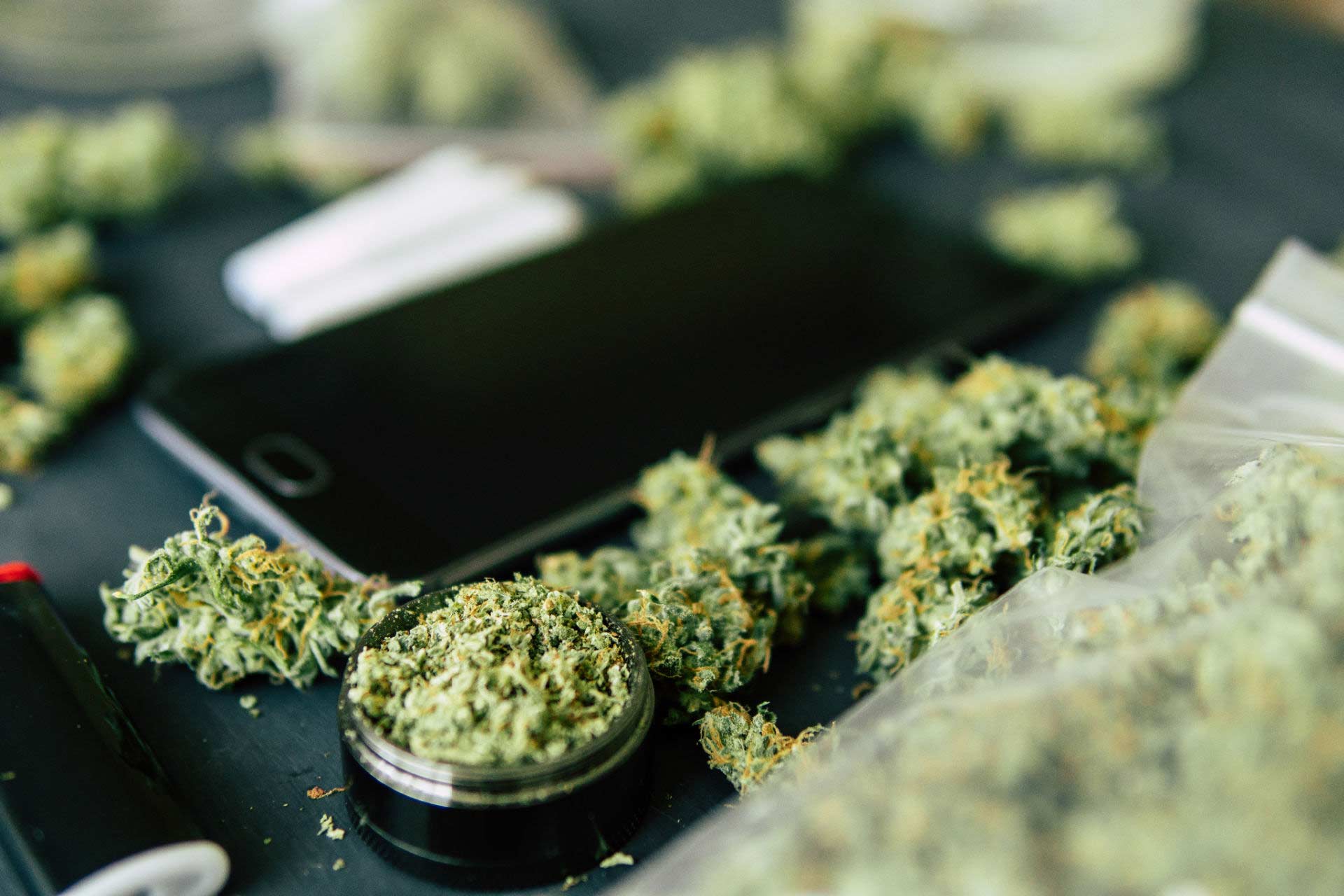
Dispensary Loyalty Programs, Newsletters and Texts: A Good Source If You Don’t Mind Sharing Your Information
Many dispensaries offer loyalty programs that function a lot like any other retailer’s rewards programs. Loyalty members may receive special discounts and deals, including earning points that can be redeemed on future purchases. For consumers who are comfortable sharing their personal information, these loyalty programs can be a good way to save money on cannabis.
(Note: These dispensary loyalty programs are different than designating a medical marijuana dispensary as your caregiver, which many states require as part of their medical cannabis program.)
When you sign up for a dispensary loyalty program, you’ll likely be asked if you want to receive email newsletters or text messages as well. Most dispensaries also offer newsletter sign-ups on their website, without requiring visitors to join their loyalty programs.
Other Ways to Stretch Your Cannabis Budget When Shopping at Dispensaries
You’ve marked cannabis sales days on your calendar and joined your favorite dispensary’s loyalty program. What other ways can you save money on cannabis?
Actually, that’s a good question to ask the budtenders! They might be able to recommend an alternative that is less expensive yet delivers a similar effect or flavor as a higher-tier product.
Many dispensaries also offer price breaks on larger quantities of flower, concentrates or other products. However, keep in mind that flower and concentrates are perishable. THC and terpenes break down over time, and flower may dry out, even when properly stored in an airtight container and kept away from sunlight and heat. (Hint: The freezer isn’t the best place to store your cannabis, either! Check out this link for tips on how to store flower and edibles.)
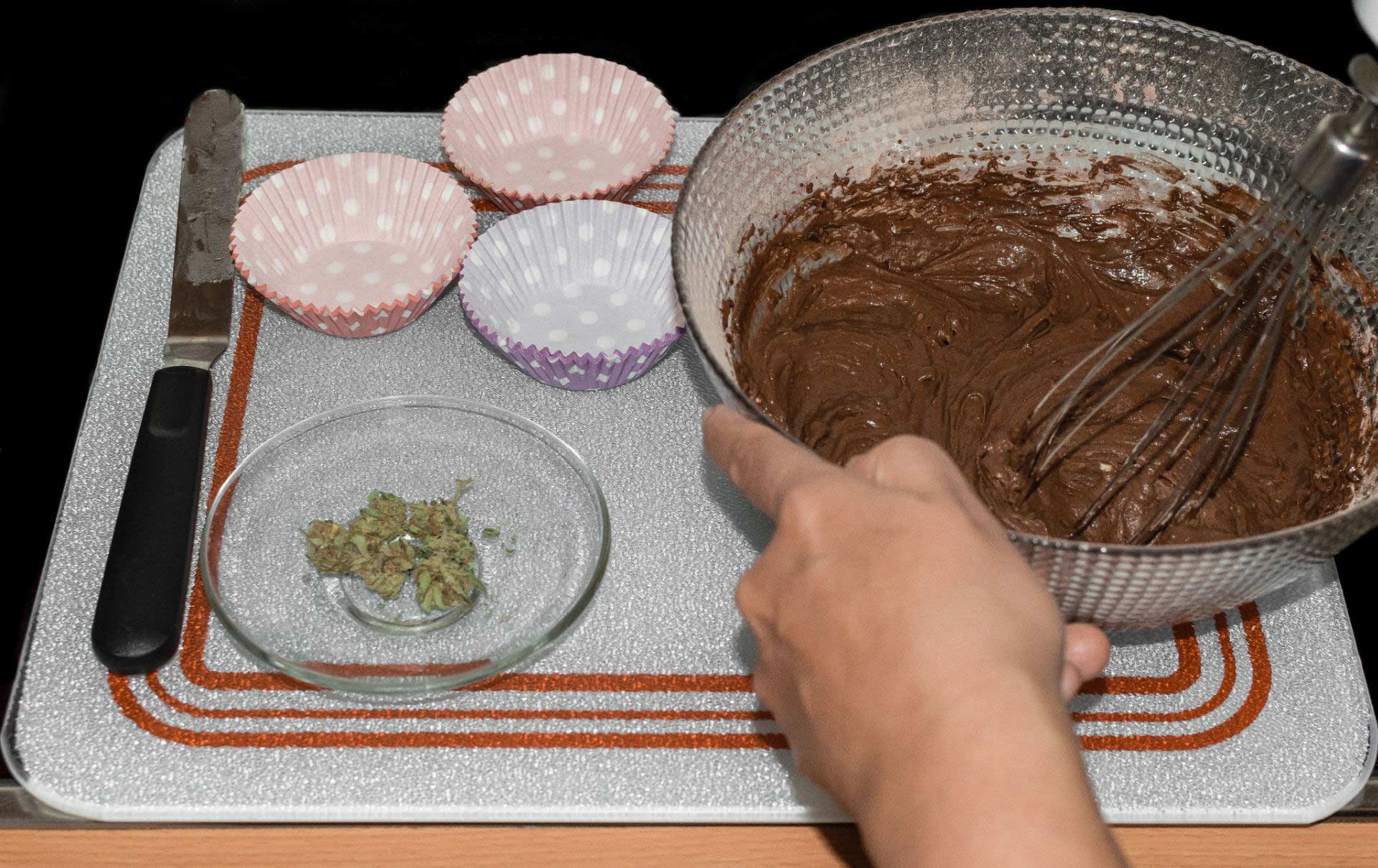
Another low-cost option is to buy marijuana shake, the small bits and pieces that break off of larger buds as they are handled. Trimmers and dispensaries collect shake and either use it to make prerolls, or package it by weight, selling it at a discount when compared to bud.
On the upside, shake can be an inexpensive ingredient source for making your own cannabis tinctures or edibles, or rolling your own joints. However, you will want to make sure that you know what you are buying. Shake may sometimes contain stems, leaves or even a few seeds.
Shake is often available in a specific strain. However, dispensaries may also mix all their shake together from various strains, resulting in the cannabis equivalent of kitchen sink cookies (containing everything but the kitchen sink)!
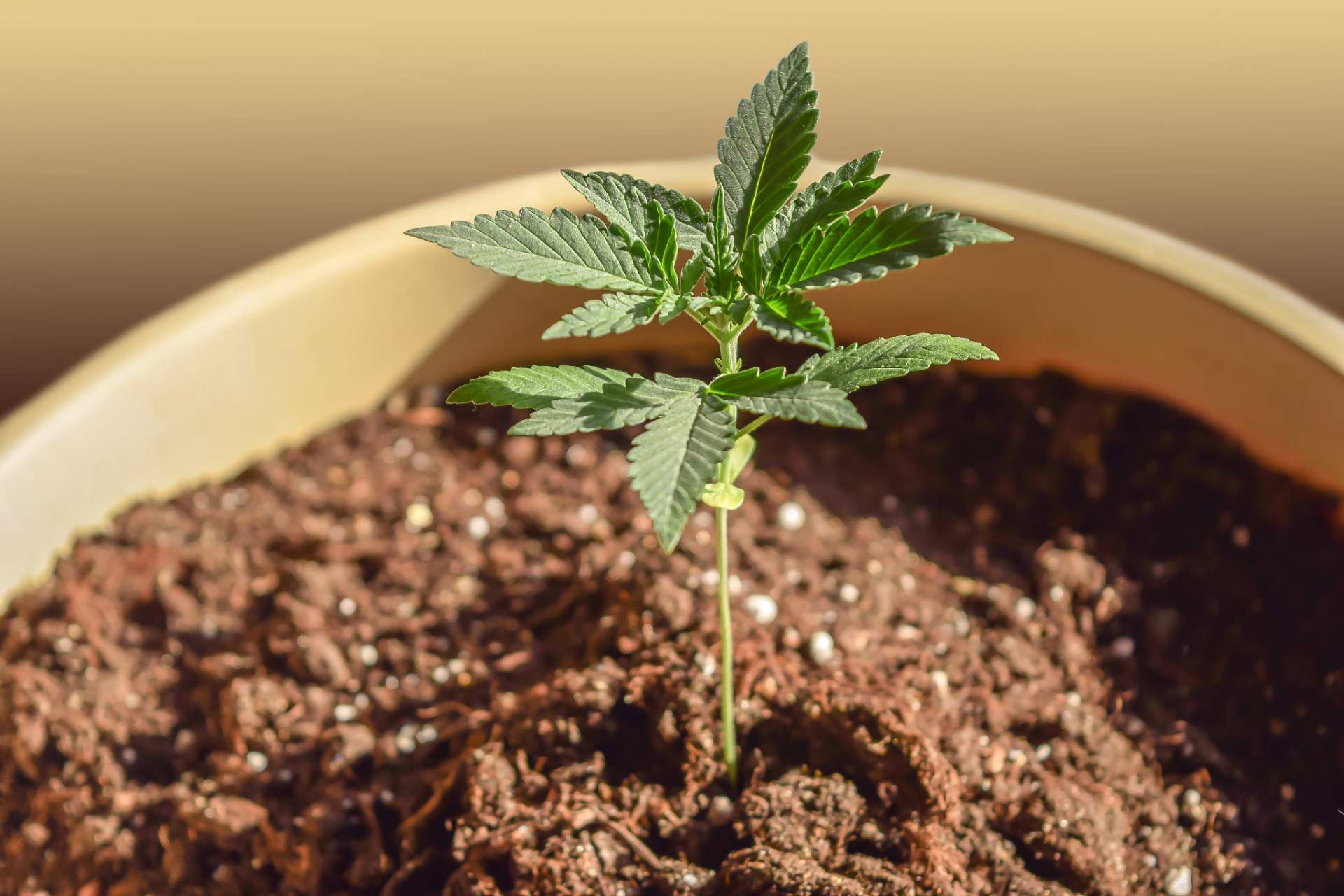
Is It Cheaper to Grow Your Own Cannabis?
Many people find growing their own cannabis to be a rewarding experience. But is it cheaper than buying cannabis at a dispensary?
Leafly took a detailed look at this question a few years ago and concluded that no, it is not cheaper to grow your own cannabis. Their analysis factored in equipment and supplies for an ideal grow set-up, with costs running into the thousands. However, a quick look at the comments on that article show that many people successfully grow their personal supply of flower with lower-cost supplies.
Before you stock up on seeds or clones and other supplies, be sure to check your state and local laws, as well as any HOA regulations that might restrict personal cannabis grows. You’ll find different laws and regulations depending on whether you’re a medical marijuana patient or an adult-use (recreational) consumer. The laws will also spell out how many plants you’re allowed to grow and where you can grow on your property. For example, Colorado requires all plants to be kept in an enclosed, locked area that cannot be openly viewed. That means you cannot grow your cannabis in front of your favorite sunlit picture window, since passersby would be able to see your plants.
Finding the Best Cannabis for Your Needs and Budget
If you’re feeling a bit lost, don’t worry! Our fully-licensed Leaf RNs can help you sort through your options, saving you money and time. Best of all, as a non-profit, we are able to offer our service for free. Call our hotline at 844-LEAF411 (844-532-3411), or chat us from our home page during hotline hours, Monday-Friday from 9:00 a.m. to 7:00 p.m.
The Leaf411 cannabis nurse hotline provides free, anonymous education and directional support to the general public about the safe use of legal cannabis. We partner with select business members who meet our rigorous standards to extend our education and outreach efforts.
Does Cannabis Interact with Other Medications?
Medically reviewed by Katherine Golden, RN
Written by Denise Rustning
According to a Consumer Reports study, approximately half of all Americans take at least one prescription drug every day. Many more people take non-prescription, over-the-counter painkillers, antacids and other medications.
Not surprisingly, a fair number of these people are seeking alternatives to their medications. In many cases, people are turning to cannabis—either marijuana (cannabis containing >0.3% THC, which is sold legally in dispensaries) or cannabidiol (CBD) hemp products sold in retail stores and online.
This trend grew in 2020, with additional states legalizing adult-use (recreational) or medical marijuana, and increased awareness around the plant’s potential after cannabis was deemed essential during pandemic-related lockdowns.
As more consumers turn to cannabis for wellness and relief, we decided it was time to republish our Leaf411 article addressing common concerns with potential drug interactions with cannabis products, including both marijuana and CBD hemp.
We will also be covering this topic early next year in a Leaf Learning series we’re putting together for older adults, though all are welcome. Be sure to sign up for our newsletter at the bottom of the page to stay updated on this Leaf Learning event!
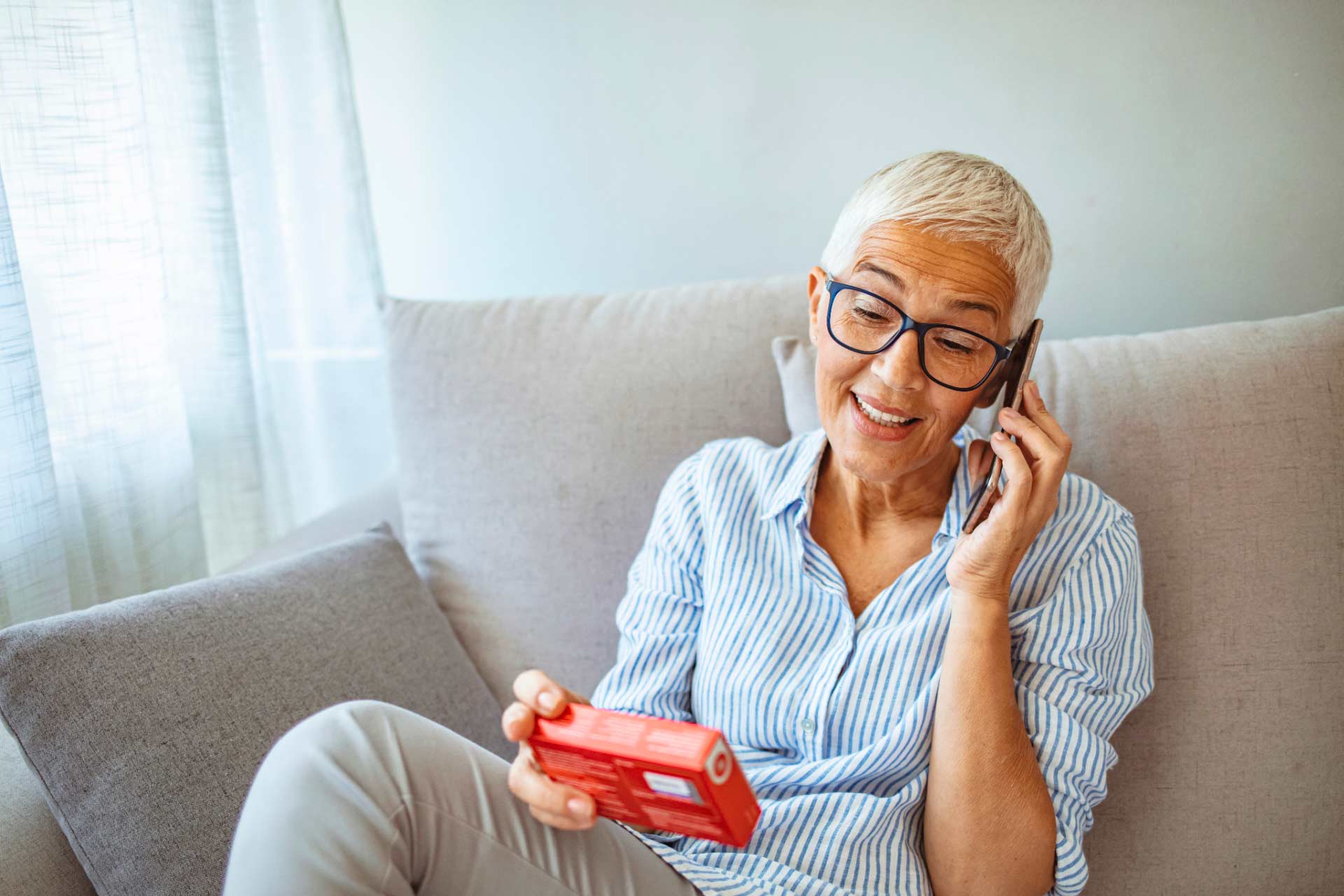
Thinking About Adding Cannabis to Your Medicine Cabinet? Talk to a Healthcare Provider First.
We always suggest that you talk to your healthcare provider before taking any new medication. That includes CBD hemp or marijuana. Our Leaf411 cannabis-trained nurses can provide education and guidance on adding plant medicine into your regimen for you to share with your healthcare team. Call our free hotline at 844-LEAF411 (844-532-3411) for personalized help.
Also, it’s important to talk to your healthcare provider before stopping any prescription medication. It is imperative that your prescribing physician should always be the one who guides you with stopping or weaning off any pharmaceuticals.
Understanding How Cannabis Interacts With Other Medications
Have you ever wondered why you’re told to not drink grapefruit juice with certain prescription drugs?
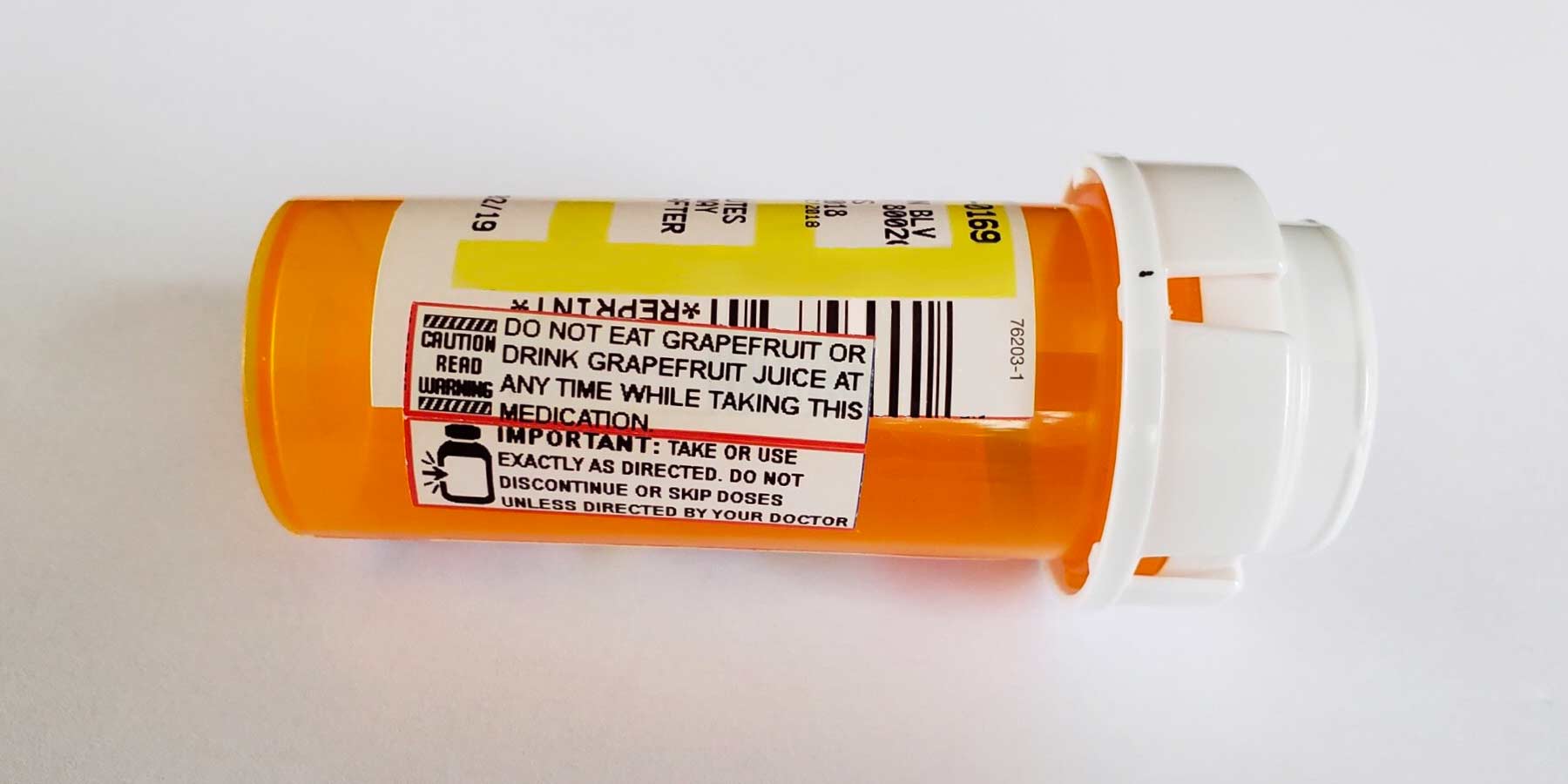
When you take medicine by mouth, it passes through your digestive system. The digestive system’s enzymes metabolize (break down) the medicine in your liver so that some of it can enter your bloodstream. The medicine dose takes into account normal digestive processes.
However, grapefruit juice affects several digestive enzymes. It blocks the enzymes’ action, and can result in too much or too little of the drug entering your bloodstream.
What does this have to do with cannabis? Well, the cannabinoids in cannabis—especially CBD—affect your digestive enzymes in a similar way that grapefruit does. In fact, scientists have found that CBD has an even stronger effect on the cytochrome P450 enzyme than grapefruit.
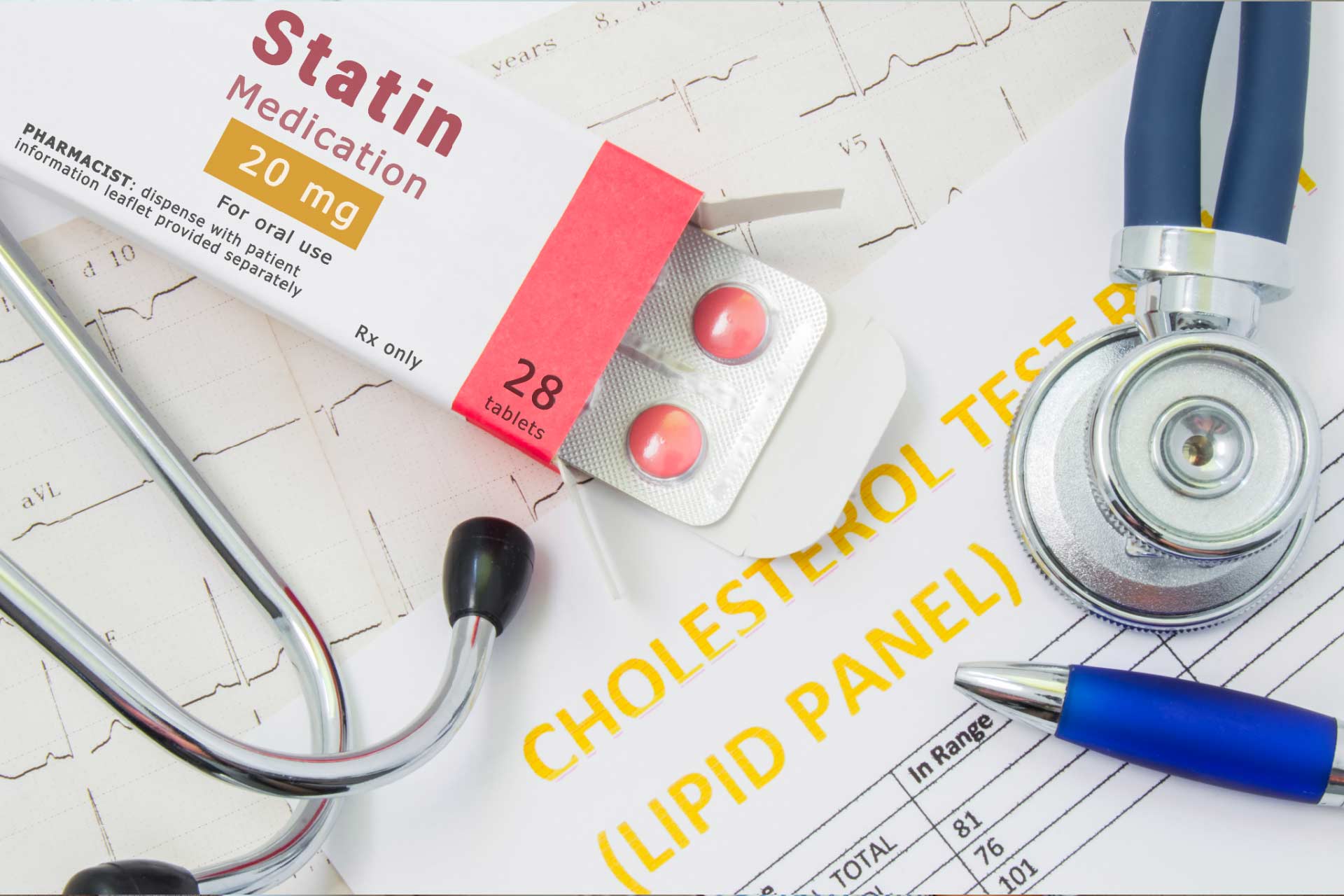
Cannabis, Statins, and Blood Thinners: Use Caution
An emerging area of concern is with cardiovascular medications, including statins and blood thinners. Many of these medications are metabolized by the same liver enzymes as cannabis. As a result, people who use cannabis while also taking statins or blood thinners may end up getting a higher dose of their prescription medicine than they intended, since the liver is breaking down the drug differently than normal.
Does this mean you cannot use cannabis? Not necessarily. The key is to talk with your provider and discuss any changes that need to be made to your medication dosage, frequency or timing. You might consider sharing the link to this article from the Journal of the American College of Cardiology which provides very conservative guidance for doctors to use as a screening tool who have no experience or knowledge about cannabis.
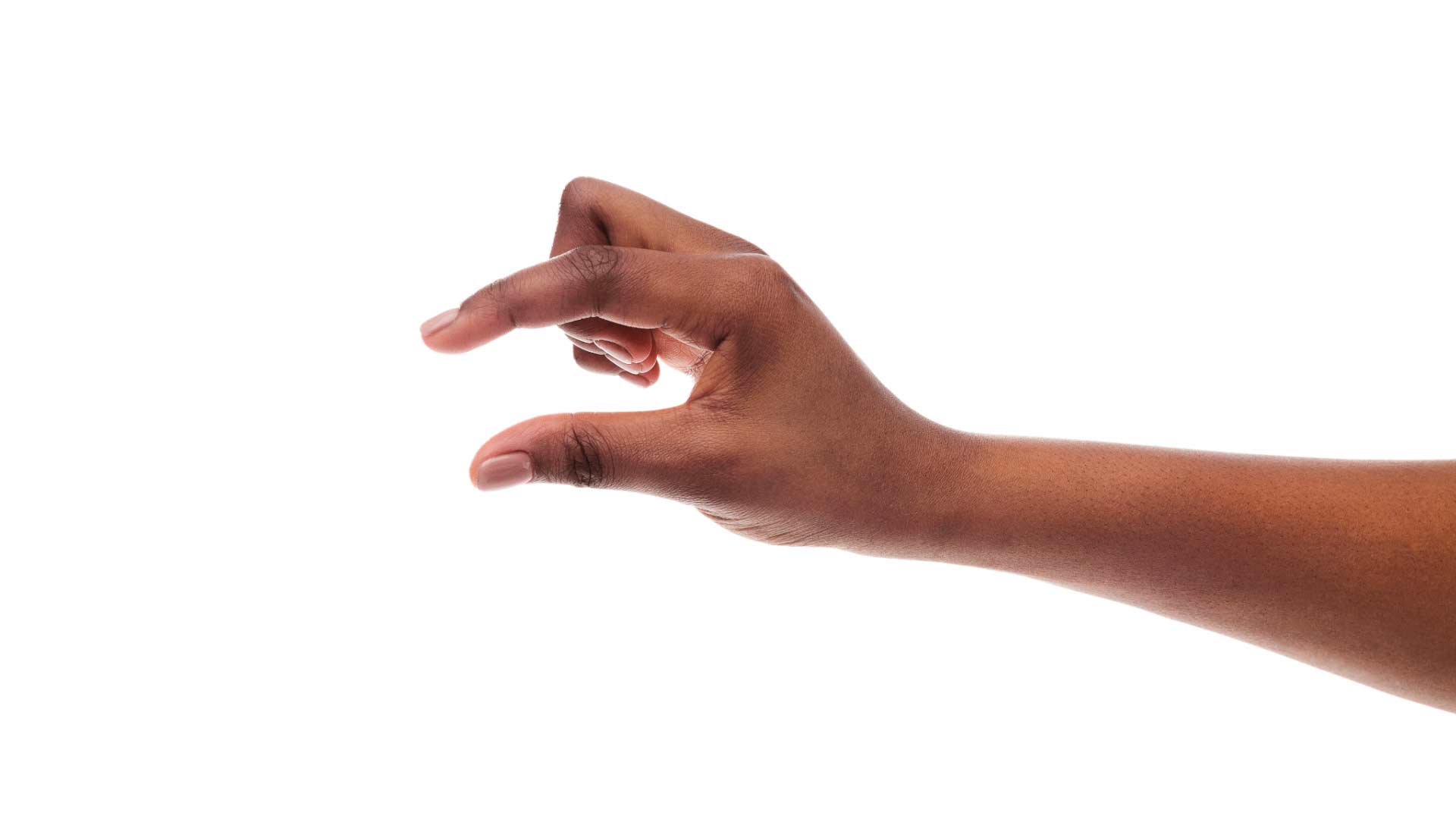
The Benefit of Starting Slow with Cannabis
Not all drugs are metabolized by the same liver enzymes. However, even if you’re taking medications that are not directly impacted by cannabis in your digestive system, it’s worth it to start with a low dose of marijuana or CBD, and to go slow. By starting slow, you can see how the addition of marijuana or CBD impacts your ongoing medications (after checking with a healthcare provider, of course!).
Also, Dr. David Gordon (Dr. Dave), founder of 4Pillars Health & Wellness, notes that people usually only need a small dose of cannabis for therapeutic benefits. This minimizes the risk of side effects. Dr. Dave explains that as an integrative physician, “We start with just a small amount, just to stimulate our own internal system. These are dosages that often don’t cause any intoxication or have any significant interaction.”
Dr. Dave is experienced at looking up potential interactions with medicinal cannabis. He’s found that most drug interactions don’t preclude someone from using cannabis, though he notes that drug doses may need to be adjusted. (You can read more from our recent interview with Dr. Dave here.
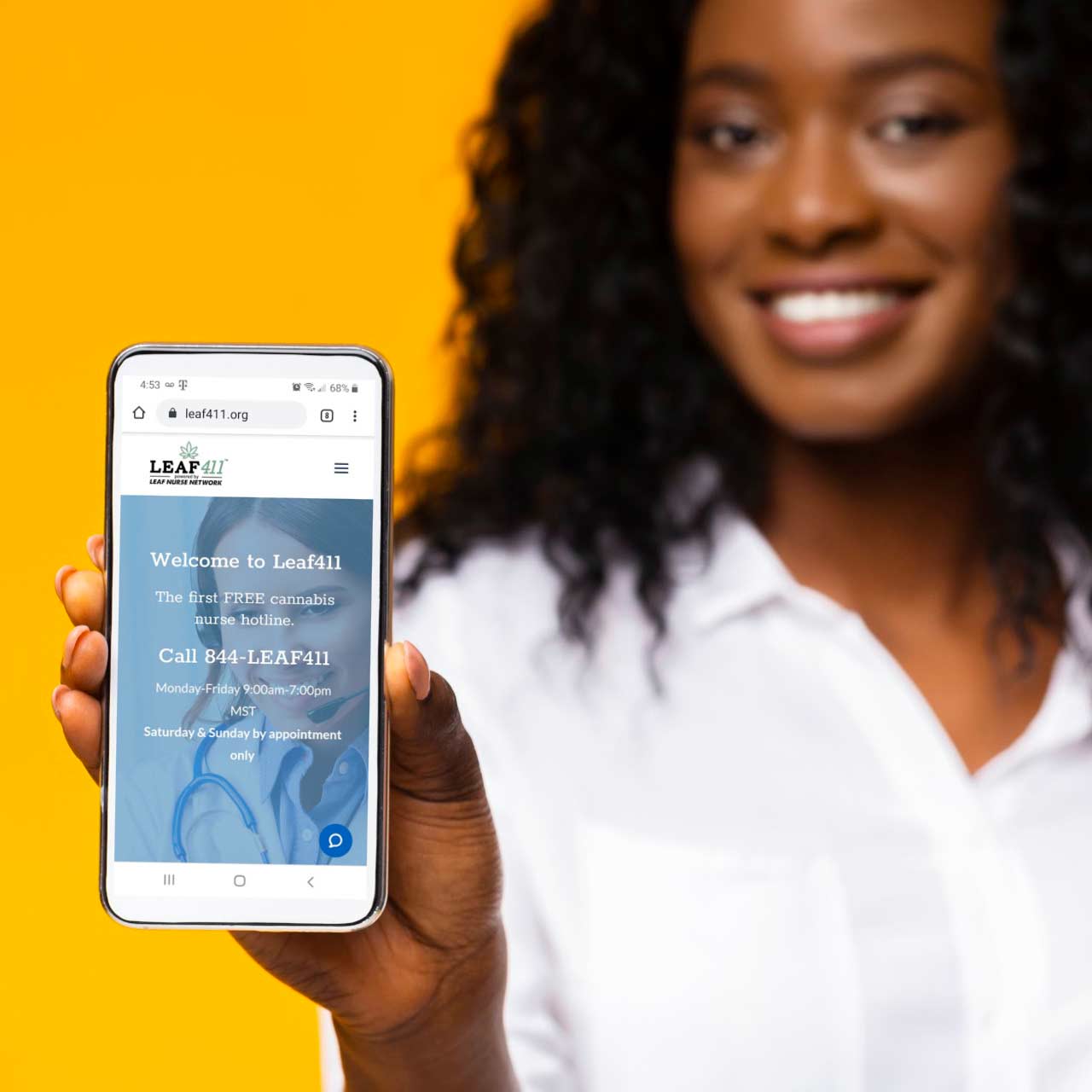
Getting Answers to Your Cannabis Questions
Our Leaf411 hotline nurses have special training on cannabis-medication interactions. They also have access to a robust database of research.
We encourage you to call our free hotline at 844-LEAF411 (844-532-3411) with your questions about how CBD or marijuana may interact with other medications you are taking.
Also, remember that we will be covering this topic in Spring 2021 during our free, virtual Leaf Learning event for older adults. Be sure to sign up for our newsletter to stay up-to-date on this and other Leaf411 events!
The Leaf411 Cannabis Hotline Difference
Learn what makes us unique in the world of cannabis and medicine, and what to expect when you call the hotline
Medically reviewed by Katherine Golden, RN
Written by Denise Rustning
Have you ever tried talking to your primary care physician about cannabis as an option, only to have the conversation fall flat?
This information gap is what inspired Leaf411 co-founders Katherine Golden, RN, and Jennifer Axcell to establish Leaf411 in 2019.
Today we offer a quick rundown of why stigma remains in healthcare, and share an inside look at what happens when you call the hotline.

Addressing Stigma in Healthcare
Public acceptance of cannabis is strong across nearly all age groups, and more states are voting to legalize either adult-use (recreational) or medical marijuana.
However, if you’ve ever tried bringing up cannabis with your primary care provider, then you’re likely aware that the medical field lags behind. Your provider may have refused to discuss cannabis, or may have even questioned your motives. Why is that?
Some medical professionals still treat marijuana primarily as a drug abuse issue, not as a clinically-valid treatment option. Even physicians who might support cannabis therapeutics are often censored by their employers, including doctors practicing at the VA. In addition, both physicians and nurses may be wary of losing their professional licenses if they discuss cannabis since marijuana remains classified as a Schedule I drug and is still federally illegal.
Another issue is the gap in knowledge among many providers. According to a 2017 study, less than 10% of medical schools included medical marijuana in their curricula, leaving physicians-in-training on their own to learn about cannabis therapeutics.
Fortunately, awareness of cannabis therapeutics is increasing among the medical professions, with organizations like American Cannabis Nurses Association and Radicle Health providing continuing education to healthcare professionals like our own Leaf Nurses.
Our Leaf Nurses are fully-licensed registered nurses with clinical experience who’ve completed specialized training in cannabis therapeutics.
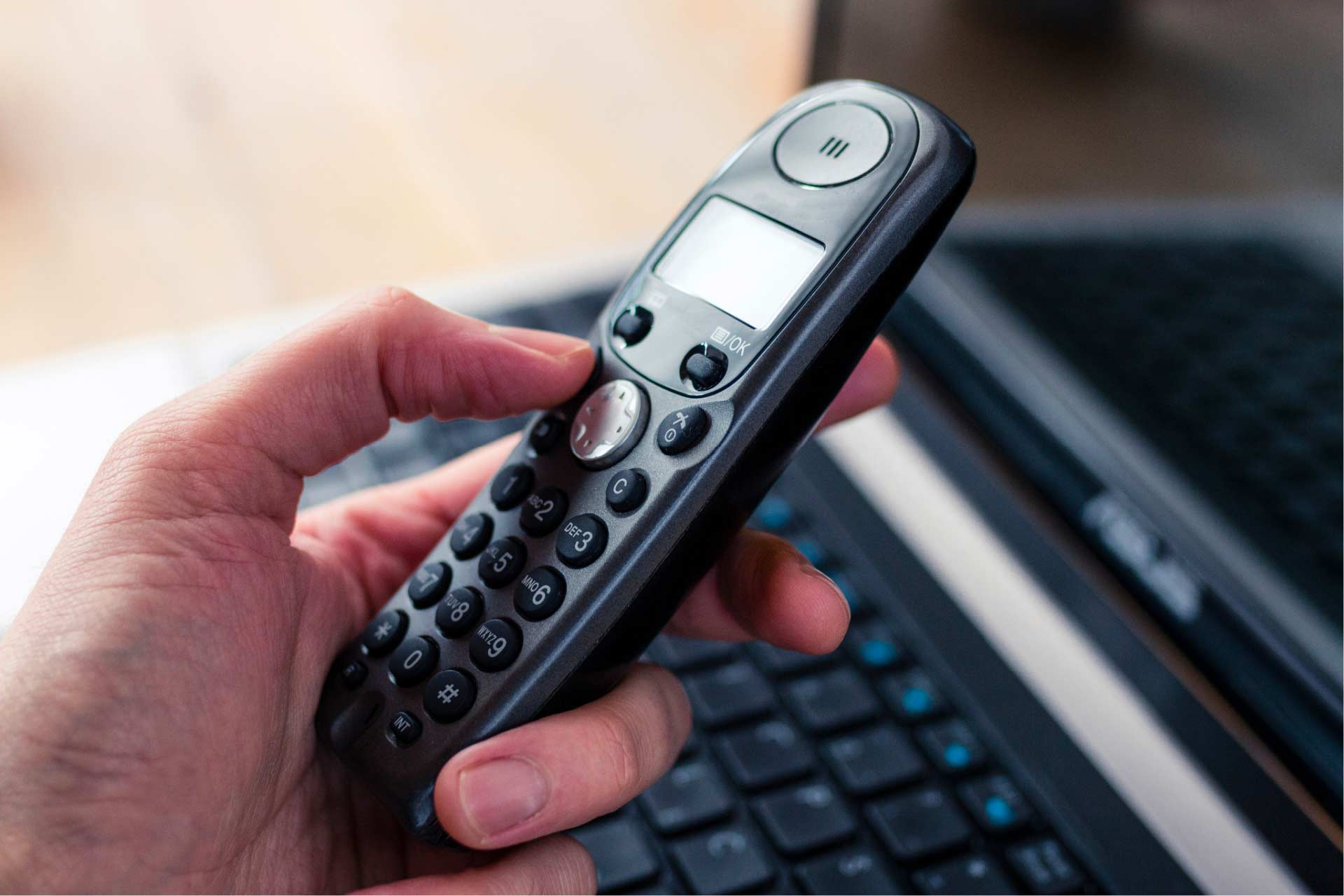
What Happens When You Call the Free Leaf411 Cannabis Nurse Hotline?
Our Leaf nurses approach calls to the hotline just as they would any other patient encounter, bringing nursing best practices into their work. This means that when you call the Leaf411 hotline, you should expect an experience similar to other telehealth encounters, though the focus is on education not diagnosis (diagnosis would be outside of our scope of practice!).
Generally, you can expect the following steps during your call:
- Background Information: While the hotline is anonymous, we gather non-identifying data (location, age, etc.) to ensure our services match caller needs. This information also helps us determine what cannabis and CBD hemp options exist based on laws in your home state. We may gather this information up-front or as part of the conversation, depending on the caller’s needs.
- Triage: Our Leaf Nurses ask a series of questions to understand your healthcare needs and goals for using CBD hemp or marijuana, whether you’re completely new to the plant or an experienced user. We’ll also ask questions about your activities of daily living to make sure that our education is tailored to your day-to-day realities.
- Your History of Marijuana Use: When considering marijuana or CBD hemp as a therapeutic tool, it’s important to factor in where you’re coming from. Are you an experienced user, or was the last time you consumed over 20 years ago? Have your past experiences been positive or negative? It’s okay if you have hesitations or concerns based on past experiences! Our Leaf Nurses are non-judgmental and provide balanced information based on your goals and preferences.
- Offering Education and Guidance: Once we have a clear sense of your healthcare needs and goals, we provide education and guidance that can save you time and money when it comes to finding the best cannabis options for pain, insomnia, or other needs. Our Leaf Nurses also understand that most callers want relief without impairment so that they can go about their daily lives.
We start with Cannabis 101 education on your endocannabinoid system, followed by general guidance on product types, routes of administration, and dosing. For example, our Leaf Nurses may suggest starting with a ratio product that contains specific amounts of THC and CBD. They also take into account any physical limitations that callers may have to recommend easy-to-use product formats, like gummies that can easily be divided into smaller doses. - Follow-Up Options: If you’re calling us at the very beginning of your cannabis journey, wondering where to start, you’re not alone! Many of our callers are new to marijuana or CBD hemp. We understand that as you begin trying different products and learn more about cannabis, additional questions may come up. While the hotline is anonymous, we do take notes as part of our nursing practice, including your phone number. That makes it easy for us if you have follow-up questions so that we can pull up those past notes and pick up right where we left off. You can also request to speak with the same Leaf Nurse you previously talked to, though we may need to schedule a call-back time based on our nurses’ schedules.
Want to hear what it sounds like to call the hotline? Colorado Public Radio’s On Something podcast gave us a test call, and also talks to Katherine about the hotline’s work.

How the Leaf411 Hotline is Different than Other Resources
The Leaf411 hotline is unique in that we’re the only free RN-staffed cannabis health resource in the U.S. (at least that we’re aware of!).
There are many free online resources for general learning, including our own Leaf Library. But when it comes to questions specific to you–your health goals and needs–those are best addressed by a trained clinician, not someone without a medical background.
Other cannabis clinicians provide individualized education, but they charge patients for the service. However, we decided to do things differently at Leaf411, to ensure that anyone and everyone would have access to the same professional and trustworthy cannabis information.
Your Calls Demonstrate the Need for Clinically-Backed Cannabis Education
Whenever you choose the non-profit Leaf411 hotline as a resource, you’re supporting the need for balanced, unbiased clinically-backed education on marijuana and CBD hemp. We point to hotline’s overall call volume as proof when we talk to grantmakers, industry or public health partners.
We know some people would like to support the non-profit hotline in other ways as well. Sign up for our newsletter below to stay up-to-date on upcoming fundraising initiatives, as well as our upcoming Leaf Learning: Get the 411 series events!
Cannabis and Pediatric Patients: A Closer Look at the Medical Marijuana Card Process for Children in Colorado
Medically reviewed by Katherine Golden, RN
Written by Denise Rustning
Back in January, we wrote about the pros and cons of medical marijuana cards. The overall takeaway was that if you live in a state like Colorado that has legal adult-use (rec) cannabis, you very likely don’t need to invest the time and money into a med card (also called a red card, since the cards originally were printed on a red certificate), at least not at first.
However, there were a few notable exceptions, including situations where the patient is under the age of 21. In those cases, med cards are a legal necessity!
Medical Marijuana Cards for Children Under 18
As of July 2020, the State of Colorado’s Medical Marijuana Registry includes a total of 286 patients under the age of 18, with 138 of those patients between 0-10 years old. While pediatric patients make up only a fraction of the registry, their need for relief is treated just as seriously by the state, with standard processes and safeguards in place to ensure safe access to legal cannabis.
Indeed, patients’ access to safe, legal cannabis is at the front of our minds these days as we fully launch our Leaf411 Affordability Program. One of the program’s priorities is to provide scholarships to patients seeking med cards, with a special emphasis on supporting minor patients who must undergo two independent medical evaluations as part of their med card application process. This doubles the burden on families both in terms of time and finances.
Costs aside, it can also be daunting to navigate the bureaucratic processes required to obtain a med card for your child. That’s why we decided to use today’s blog to walk you through Colorado’s medical marijuana card application process for minors.
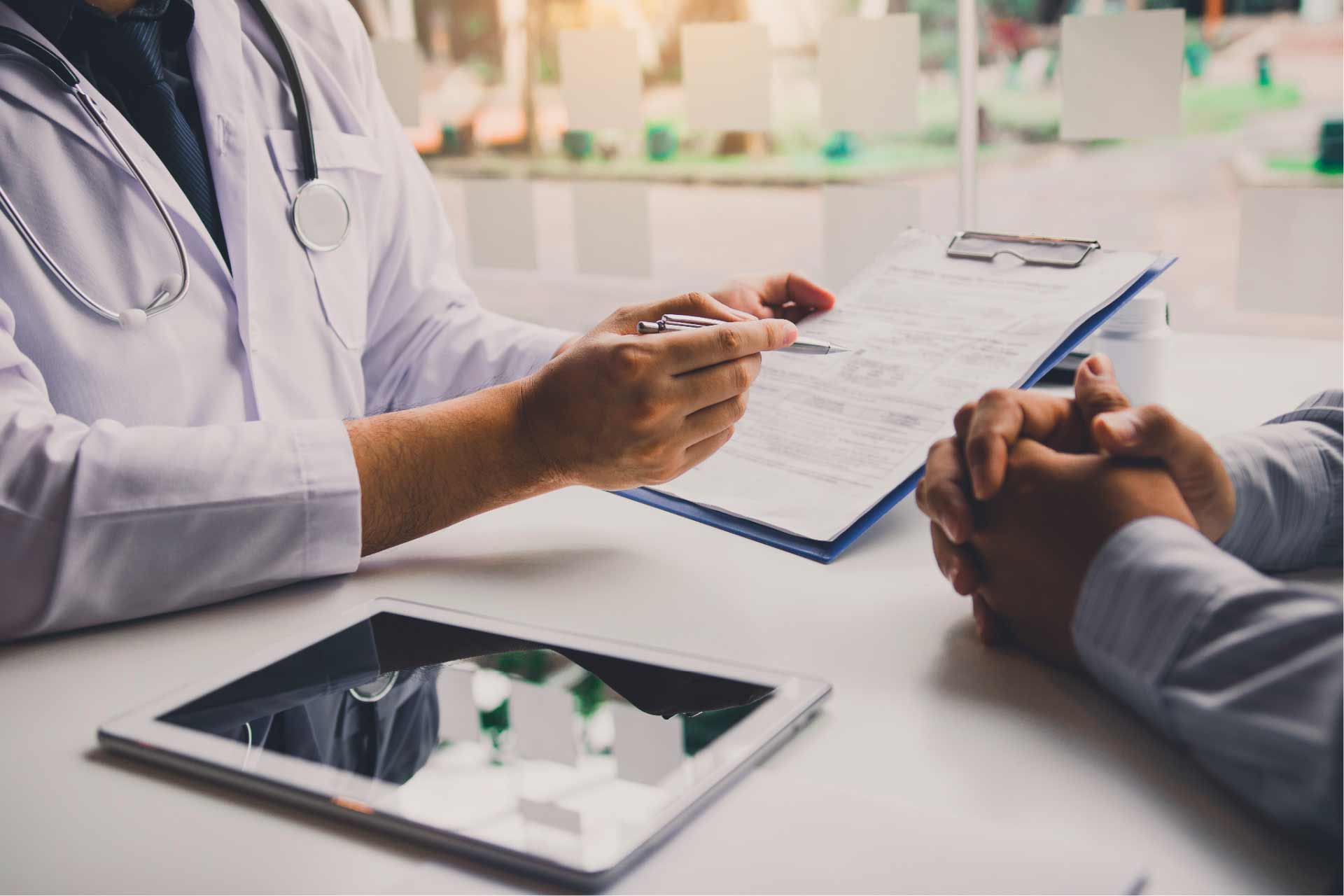
Know What Medical Conditions Are Covered
Qualifying debilitating and disabling medical conditions for medical marijuana cards vary from state to state. In Colorado, the qualifying conditions include seizures, persistent muscle spasms, cancer, PTSD and Autism Spectrum Disorder. You can find a full list here.
Beyond knowing what conditions are covered, it’s important to educate yourself on cannabis and cannabis therapeutics before pursuing a med card for your child, according to Leaf411 Advisory Board member Dr. David Gordon, who sees adults and pediatric patients for medical marijuana evaluations at his practice, 4 Pillars Health & Wellness. That education can help you come into the process with realistic expectations and be more prepared for the evaluation process.
For example, Dr. Dave shared that many people come into the process thinking that CBD is the only compound in cannabis that has value as medicine, while THC is a ‘drug’ to be avoided. That’s not the case at all!
“In reality, both CBD and THC are highly effective medications, and typically a good cannabis regimen will include both compounds. Adding THC to someone’s regimen, including children, does not mean the patient is getting high,” says Dr. Dave.
Our Leaf nurses are a great resource at this step. Our nurses can help you understand the compounds of the plant, provide balanced education so you can make an informed decision on when it’s necessary to visit with a cannabis MD, and they’re available at no cost to you! Call 844-LEAF411 (844-532-3411) or chat us from the Leaf411.org homepage during our hotline hours. We also have a section in our Leaf Library dedicated to research and news specific to cannabis and minors.

Understanding Your Role as a Caregiver
When applying for a medical marijuana card for your minor child, you’re considered the caregiver. As a caregiver, you’ll be responsible for submitting your child’s application and renewal, as well as growing or purchasing cannabis on behalf of your child.
There are four different types of caregivers under Colorado regulations:
- Cultivating: grows marijuana on behalf of patients.
- Transporting: transports marijuana for homebound patients.
- Parents of a minor patient: Parents of a patient under age 18.
- Advising: Advises patients on the medicinal use of marijuana.
Only cultivating and transporting caregivers are required to register with the state (see the Caregiver Registration FAQs for more information).
Which Comes First? The Physician Evaluation or the State Med Card Application?
We brought this question to Dr. Dave, who said it’s helpful for the parent or guardian to start the online med card application process before the physician visit, stopping at the point when the application asks for the physician certification. After the visit, you can go back and complete the application.


Completing the Online Marijuana Med Card Application
The online application requires you to provide proof of your child’s identity, parents’ identity and residency in Colorado by supplying the following:
- Child’s social security number
- Child’s certified birth certificate
- Both parents’ Colorado-issued photo IDs. If you recently moved to the state, there are alternate ways to prove residency–ask the physician’s office what documents they require in this case.
- If the other parent lives in-state but is unable to attend the evaluation, you’ll also need to provide a signed, notarized Minor Patient Consent Form.
- If the other parent lives out of state, you’ll need to submit a copy of their out-of-state ID, unless they are deceased or do not have shared custody. In those cases, you’ll need to provide certified sources reflecting the other parent’s status.
Another part of the med card application process that can be confusing is the “Cultivation Information.” Basically, this is where the state is asking how you’ll get your child’s cannabis medicine. Will you grow it? Buy it in a dispensary? Or both?
Many people prefer to use legal medical marijuana dispensaries which have a wide range of product types and ratios. As a caregiver, you will use your child’s med card to purchase medical marijuana products from dispensaries on their behalf.
Finding a Medical Marijuana Evaluation Physician for Pediatric Patients
It’s highly unlikely that your child’s regular pediatrician or care team will officially recommend medical marijuana, due in part to cannabis’s lack of approval by the FDA. They might risk losing their job if they began recommending cannabis to patients. However, the conversation is slowly changing around cannabis’s potential in pediatric patients, with organizations like Children’s Hospital Colorado developing pediatric medical marijuana policies that address safe use.
How do you find the two providers willing to complete medical marijuana evaluations? While most physicians steer away from conducting medical marijuana evaluations for either adults or children, others are attracted to the field of cannabis medicine after seeing the life-changing difference that cannabis made in their patients’ lives.
In Colorado, a medical marijuana physician must be either an MD or DO who is in good standing and licensed to practice in the state. They also need to be registered with the state to submit medical marijuana certifications online.
At Leaf411, we can help point you toward reputable physicians for your child’s medical marijuana evaluation. We’ve also partnered with select physicians as part of our med card scholarship program. To learn more about this program, check out our Affordability Program page. The link to apply is at the bottom of that page.
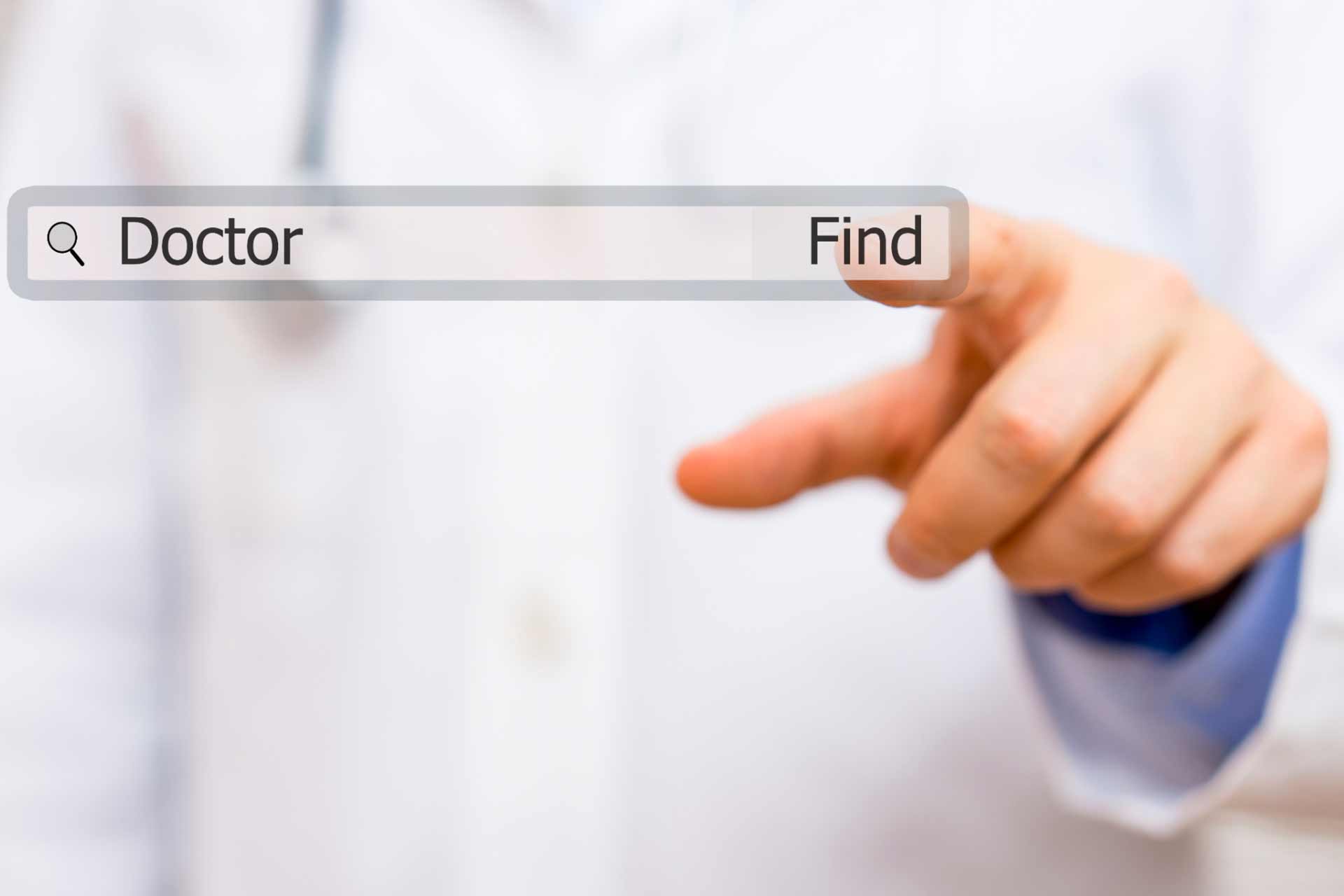

Preparing for the Medical Marijuana Evaluation Process
Adult medical marijuana evaluations can be very quick and casual, depending on where you go and what level of visit you select. Children’s evaluations, however, tend to be more detailed due to state medical marijuana requirements for this age group.
Plan to bring the same documents that you provide to the state documenting identity and Colorado residency, as well as your child’s medical records and any notes on other treatments or therapies you’ve tried for the child’s condition and the benefits/downsides to those treatments.
This information helps the physician determine your child’s eligibility for a medical marijuana card. Remember that the physician is bound by law, and can only recommend a med card if your child suffers from one of the state-designated conditions.
Beyond the paperwork, Dr. Dave says it’s important to make sure ahead of time that you’re clear on your specific goals for plant-based therapy as well as any other approaches the physician might suggest.
Be prepared for the physician to suggest other behavioral or nutritional tools that can complement cannabis medicine.
Dr. Dave says, “Cannabis is not a one-size-fits-all treatment like most other medications. It can take up to six months to dial in an optimal regimen. It’s also important for people to know that neither cannabis nor any other medication is ever going to be a magic bullet. To achieve great outcomes, cannabis has to be just one part of a comprehensive treatment plan that typically involves a variety of lifestyle measures.”
At the end of the visit, the physician submits their certification online to the state’s medical marijuana registry. That certification includes your child’s name and identifying information, making it easy for you to link to when you finish setting up your child’s online account with the state.
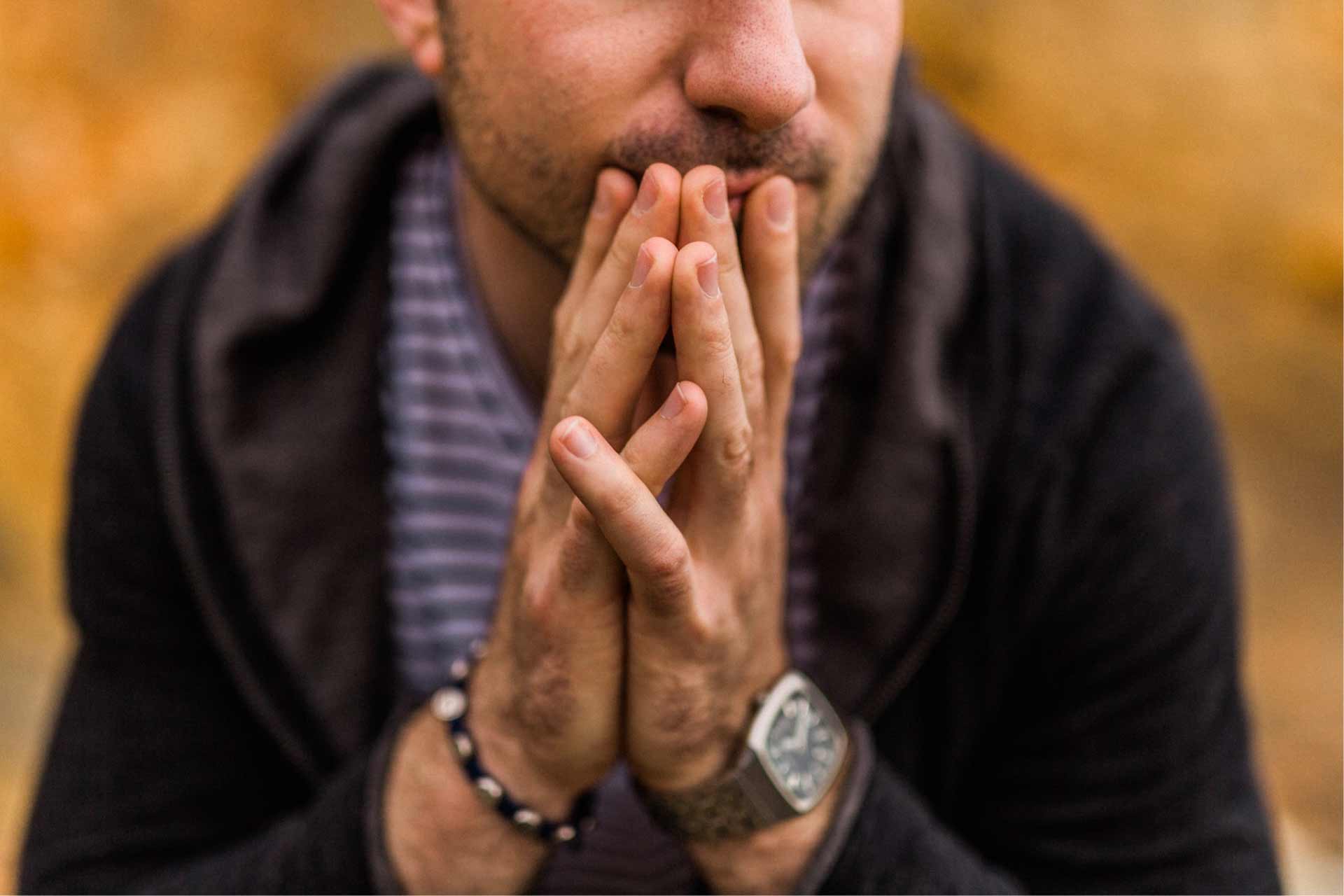
Considerations Before Applying for a Medical Cannabis Card for Your Child
Many parents come to cannabis after exhausting conventional options for managing their child’s seizures, chronic pain or cancer treatment side effects. That was our board member Amy Dawn Bourlon-Hilterbran’s experience, ultimately leading her to form the American Medical Refugees group for other parents in similar situations.
At Leaf411, we’re committed to providing straightforward, balanced information. While we believe in cannabis’s therapeutic potential, we also know that in the current environment, cannabis still suffers from stigma and misunderstandings that could create challenges as you pursue a medical card for your child.
We don’t mean to discourage you here, but simply prepare you for any potential roadblocks or unanticipated consequences before they arise. These barriers can be very frustrating when all you’re trying to do is find a safe alternative for your child’s health condition:
- When considering a med card for your child, make sure that you and your parenting partner(s) are on the same page about the plan and your goals for your child’s health. This is especially critical when parents are separated, since even a parent’s legal cannabis use may factor into court decisions around custody.
- Also, school district policies are evolving in Colorado and other states with legal medical marijuana. Depending on where you live, you’ll likely need to review the laws and provide education to your childcare providers or district personnel who are concerned about liability or loss of federal funding.
- In higher education, many universities including the University of Colorado and Colorado State University prohibit cannabis possession on campus, with both universities stating that “possession of a Medical Marijuana Registry identification card does not authorize a student to possess, use, or distribute marijuana on campus. This includes university residence halls, dining facilities and public areas.” Students with a documented medical need for cannabis may petition to be released from on-campus housing requirements, though.
- As long as cannabis remains illegal at the federal level, regular cannabis use will be a likely disqualifier for enlisting in the military, even if the person holds a med card. However, it’s very likely the health condition your child suffers from would be disqualifying in and of itself, so this may not be a concern.
- If your child is employed or participates in extracurricular activities, they may also be subject to random drug testing—and simply living in a legal state and holding a valid med card isn’t protection against disciplinary action.
So that’s the bad news–for now. Support for full legalization of cannabis is widespread and growing, as the public and medical professionals learn more about the benefits of the plant. As a parent seeking cannabis medicine for your child’s serious health condition, you’ll be one of the pioneers. Other parents have walked the path before, and are willing to share their support via organizations like American Medical Refugees.

A Final Word of Encouragement
When we asked Dr. Dave what he’d say to patients who are contemplating cannabis as an alternative for themselves or their children, he said this:
“No one needs to be scared of cannabis treatments. When used appropriately, cannabis therapeutics are extremely safe among all age demographics. Most of the fear-mongering is from people who know very little about the plant and its compounds. Many patients who are looking to cannabis have been struggling with issues for years or decades and haven’t been given treatment options beyond pharmaceuticals and surgeries. These patients often have little hope for success. Cannabis can be a powerful medicine but also a gateway into the greater world of integrative health which provides an abundance of options to help these patients achieve success.” –Dr. Dave Gordon
Leaf411 Provides Balanced Cannabis Guidance without Judgment
Remember that we’re happy to help answer your questions on our free anonymous hotline at 844-LEAF411 (844-532-3411). Our Leaf nurses talk to many parents and guardians who are at all stages of their journey helping their children–from those just beginning to seek out alternatives to parents who are seeking guidance on the best CBD: THC ratio for a particular health concern.
Sign up for our newsletter below to be the first to learn about upcoming Leaf Learning: Get the 411 Series events and other news about what we and our Leaf411 supporting members are up to!
Cannabis and COVID-19: Do You Need to Change Your Cannabis Routine?
A Detailed Look at How Leaf411 Cannabis Nurses Help You Find the Best Cannabis and CBD Hemp Products for Improved Mental Health
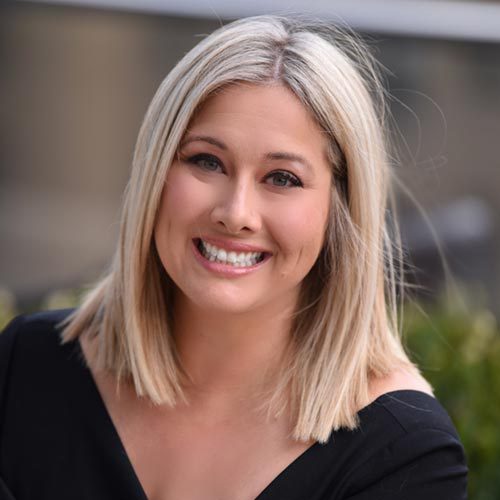
Medically reviewed by Katherine Golden, RN
Written by Denise Rustning
Leaf411 co-founder and COO Jennifer Axcell has a lot of experience in using cannabis to effectively manage chronic pain and PTSD she suffered many years ago as a result of a car crash. She previously shared her story in our very first Leaf411 blog post.
But when coronavirus hit, Jennifer’s PTSD crept back up as stay-at-home restrictions and uncertainty took hold.
“I was struggling, I couldn’t eat or stop crying. I was not feeling like myself. Nothing seemed to help—not even my normal cannabis products. I was afraid that I would have to go back on the same pharmaceuticals that I’d used years ago, along with their terrible side effects,” Jennifer said.
Instead, Jennifer decided to first check in with her friend and Leaf411 co-founder/CEO Katherine Golden, RN, to get her input. Katherine quickly recognized that a change was needed.
An Inside View of the Leaf411 Cannabis Hotline Triage Process
“When I spoke to Jennifer that day, I triaged her just like I would a caller on the hotline,” Katherine said.
Those triage questions included:
- What is your daily cannabis consumption?
- How many milligrams of CBD and in what form (CBD hemp product, isolate, etc.) do you use?
- How many milligrams of THC and what type? (Knowing the brand helps us look at the terpene profile if any)
- How did this cannabis routine help you prior to this sudden change and what have you done differently since?
- Describe your feelings when using the products. (This is good to know when trying to figure out someone’s tolerance).

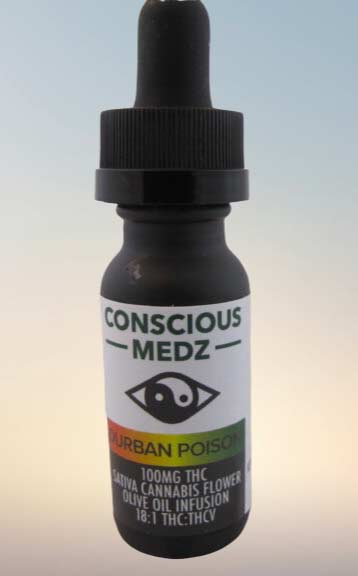
After obtaining all the necessary pieces of the puzzle, Katherine was able to determine that:
- Jennifer had continued to increase her CBD hemp from 25mg/day to 50mg or more/day thinking she needed to consume more to reduce her anxiety. She knew that CBD could have biphasic effects (having the opposite effects when used in higher doses), though she thought this occured only with much higher doses than she was taking. CBD can actually worsen conditions or be completely ineffective when used too much, which to Katherine sounded exactly what Jennifer was experiencing. Her CBD was no longer working at the higher level, so Katherine suggested she reduce down to 10-20mg/day BUT also try a tiny amount of THC for its uplifting effects.
Katherine suggested our business member Conscious Medz product Durban Poison tincture since it has a nice amount of limonene (shows benefits for anxiety and depression) plus a large amount of terpinolene which shows to be very uplifting for daytime use. She suggested that Jennifer only use a micro dose of 2.5mg to start, which should avoid any type of impairment but would be a high enough dose to lift her spirits.
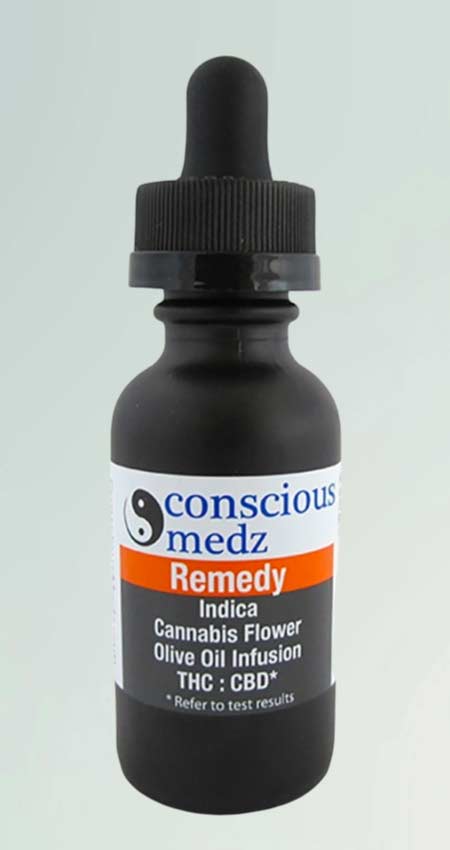
- Jennifer had switched from her THC inhalation (due to COVID precautions) to an edible. The product she was using was made from a distillate with minimal other compounds and no added terpenes. It worked for her prior to the increased stress, but Katherine knew that Jennifer needed something that had a chemovar that included its terpene profile. Katherine suggested Conscious Medz again since their Remedy tincture is a 1:1 Indica with a wonderful amount of sedating terpenes. Katherine again suggested starting with a micro dose and increasing one drop at a time each night until an optimal dose was reached. This meant reaching the point of sedation with a small amount of euphoria and also having the terpenes that benefit anxiety.
This regimen ended up being the perfect combination.
“After five hours of taking the Conscious Medz Durban Poison tincture, I cracked my first smile in as many days,” Jennifer said.
Jennifer continued, “The biggest ‘aha’ moment for me was looking at the terpene profile. I know I am not the only patient who tends to focus on cannabinoid content (because those are always listed clearly on the packaging) and had forgotten the role that terpenes play. That’s one of the things I like about the Conscious Medz products—the terpenes are clearly listed on the packaging.”
Jennifer’s new cannabis regimen is a huge shift from where she started and has been for years, which was being an extremely educated inhalation user, to realizing that even small amounts (micro doses) of the right chemovars and cannabinoid ratios may work well for her body’s supplement needs.
Now, Jennifer is feeling better mentally and physically. However, she knows that many others are facing similar challenges as they find their normal cannabis consumption is no longer providing the good sleep, relaxation or pain relief that it has in the past.

Why Your Usual Stress Relief Routine May No Longer Work
We all have routines that help get us through normal times, but many of those routines have either been interrupted or overwhelmed by the last few months of change.
Anxiety is at an all-time high, according to research. We’re worried about our own health and especially that of our family and friends. We’re worried about how COVID-19 will impact our children’s education. We’re worried about our finances and the economy.
Many of our usual tools for dealing with stress and anxiety are not available—no trips to the gym, weekend brunch outings, or get-togethers with friends to commiserate and provide in-person support. While many resources have moved online, it’s a tough transition.
That means the tools we do have left—including CBD hemp (containing less than 0.3% THC and legal at the federal level) as well as marijuana (containing over 0.3% THC and sold at dispensaries in legal states)—have a lot of heavy lifting to do!
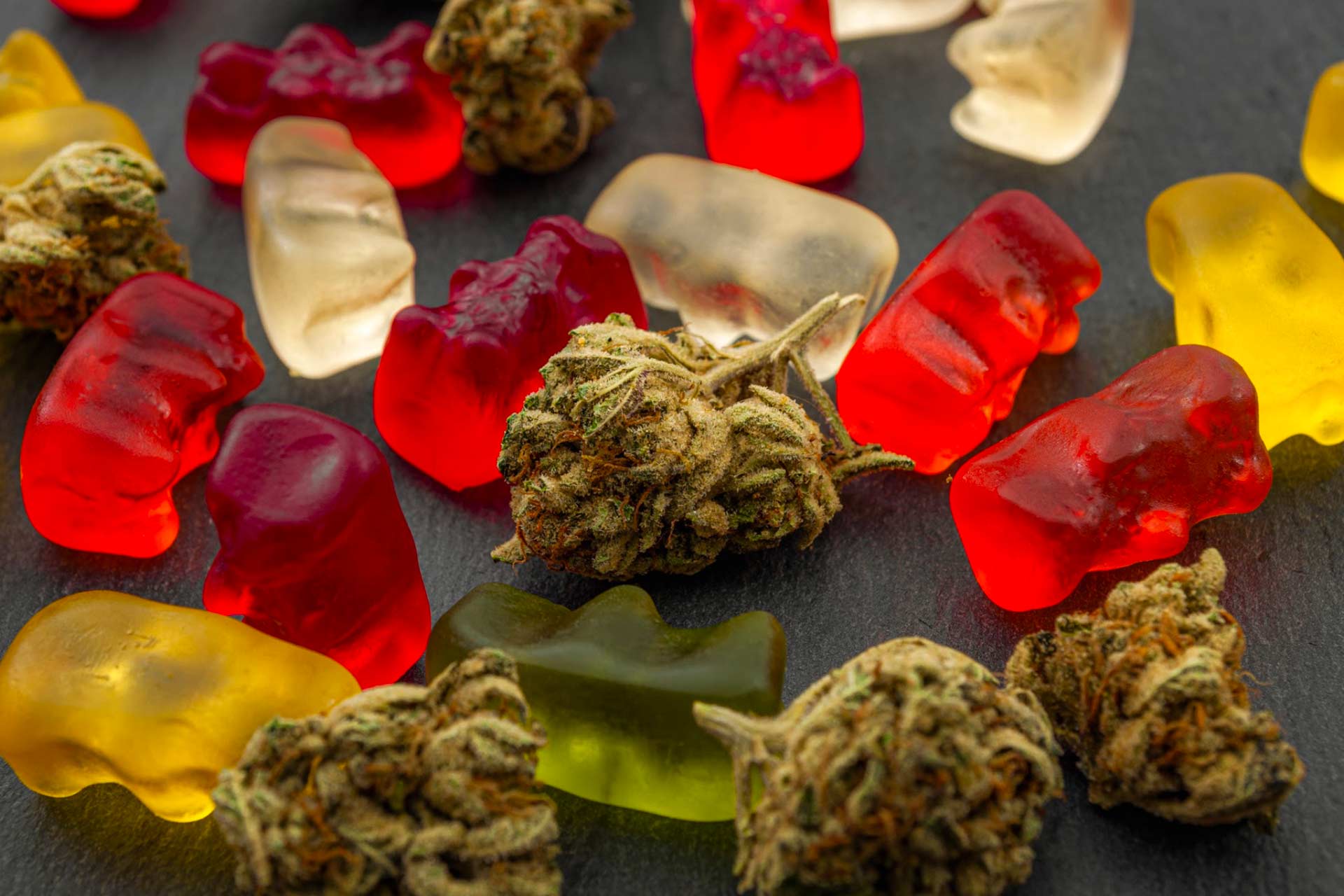
Reassessing Your Cannabis and CBD Hemp Needs
Perhaps in the past, you only consumed marijuana or CBD hemp edibles every once in a while to help with sleep after a stressful workday, but now you’re finding that you’re using edibles every night.
As you can see from Jennifer’s example, everyone is different when it comes to the challenges they are facing and the potential for CBD hemp or marijuana to help. Our Leaf nurses have specialized training to thoroughly assess your needs and provide guidance for safe, effective plant-based medicine that’s tailored to your needs. Call us via our toll-free hotline at 844-LEAF411 (844-532-3411) or chat us from our homepage during hotline hours.

Embracing Other Wellness Strategies and Support
We often remind people that cannabis is only one of many tools in your toolbox. The power of cannabis is amplified by other supportive practices, from good nutrition to exercise and mindfulness.
Going back to the sleep example, we suggest not only looking at your cannabis use but also your other nighttime routines. Perhaps you always scanned through social media before going to bed. However, with the current public discourse often leading to online arguments, you might find you need to sign from social media in evenings instead of winding up in a debate with some internet stranger.
In Jennifer’s case, in addition to updating her cannabis regimen, she also committed to taking breaks from daily news and social media, which also helped.

Leaf411 Can Help You Find the Best CBD Hemp or Marijuana Regimen for Your Needs
The current COVID-19 pandemic has interrupted ongoing health routines while also drastically increasing anxiety and stress, which take a toll on both physical and mental health.
Many “canna-curious” folks are deciding that now is the time to give either legal marijuana or CBD hemp a try as an alternative for stress relief or wellness.
And for experienced consumers, many are wondering if a different cannabis chemovar (strain) or product type might provide better results when dealing with our current times.
Our cannabis-trained fully-licensed Leaf nurses can help! Give us a call at 844-LEAF411 (844-532-3411) or chat us from our homepage during hotline hours.
The Leaf411 cannabis nurse hotline provides free, anonymous education and directional support to the general public about the safe use of legal cannabis. We partner with select business members who meet our rigorous standards to extend our education and outreach efforts.
Our Top April 2020 Hotline Questions: Cannabis and COVID-19
Cannabis Users’ Questions as the COVID-19 Pandemic Progressed
As the COVID-19 pandemic evolved, so did your questions. Today, our Founder and CEO Katherine Golden, RN, shares some of the most common types of cannabis and hemp CBD questions the hotline received over the past few months. Katherine also talks about why the questions that she and other Leaf nurses are currently receiving gives her hope as we all adapt to changing circumstances brought about by COVID-19.
When COVID-19 first came to Colorado, there were still many, many unknowns with the virus. Guidance at the national, state and local levels seemed to be changing on a daily basis.
At Leaf411, we immediately sprung into action to do all we could to support both our community members and the cannabis industry as a whole.
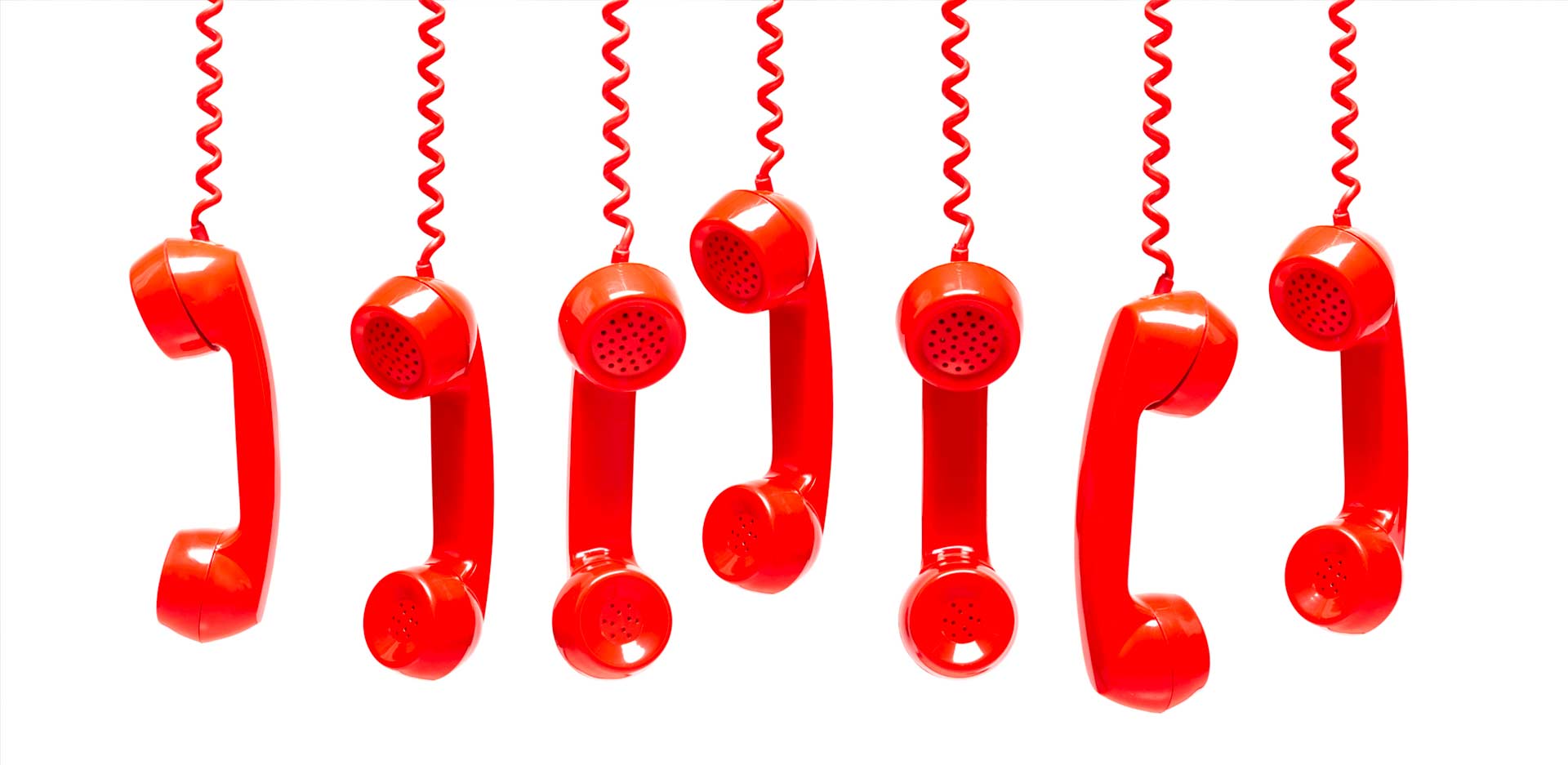
After hearing that many health hotlines were being overwhelmed with questions about coronavirus, we expanded our hotline’s scope to respond to general questions about coronavirus. We also took cues based on caller questions and developed marijuana dispensary preparedness plans and resources, which are discussed below.
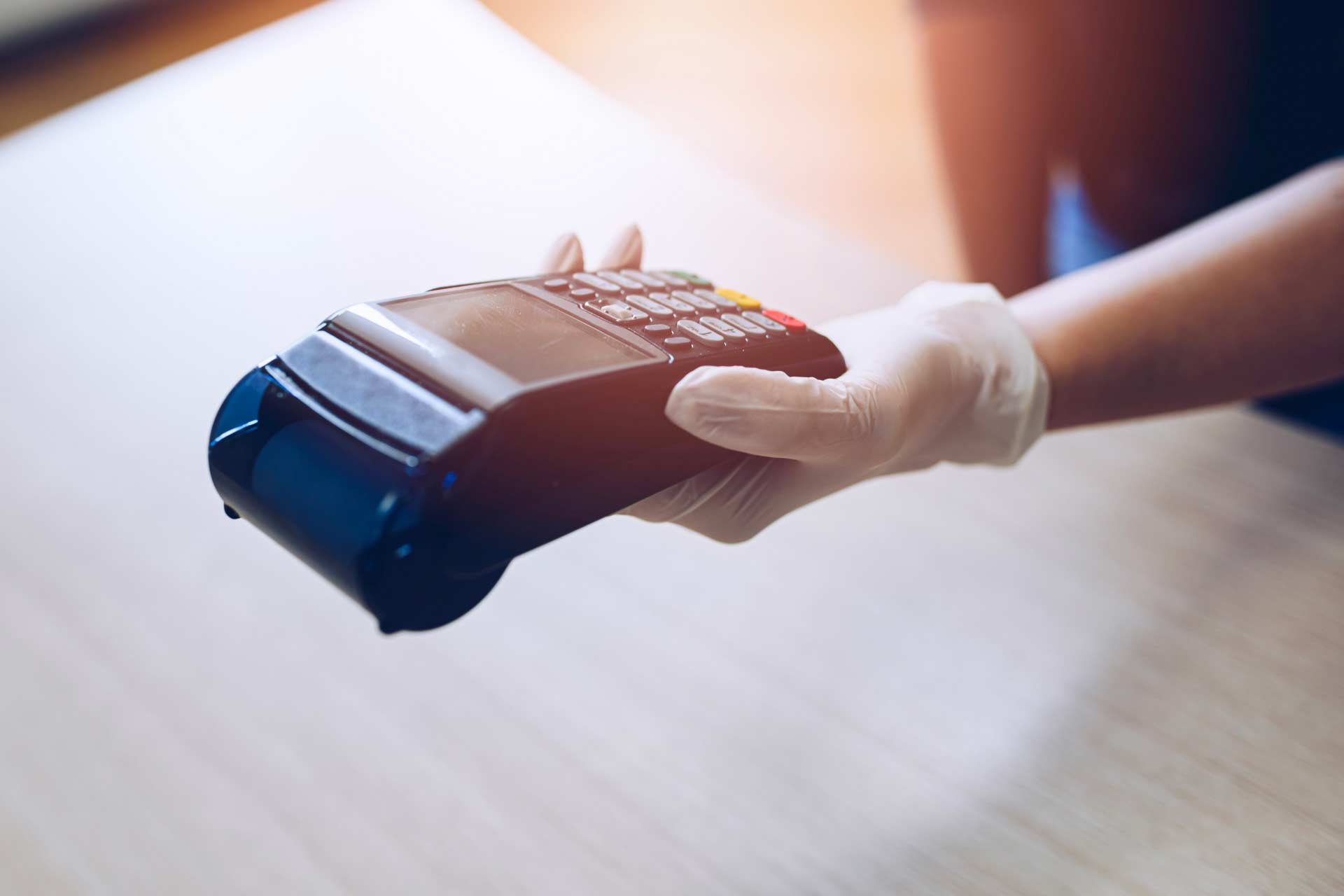
The First Round of Cannabis Consumer Questions: Product Safety
On our hotline, we began receiving questions focused on callers’ immediate concerns around access and product safety. Colorado and other states with legal cannabis designated cannabis as essential which ensured access; however, one big question remained: How do I know my product is safe?
CBD hemp consumers and legal marijuana consumers were worried about potential virus exposure via product packaging. They also had many questions about how to ensure product manufacturers, in-person and online retailers, and legal marijuana dispensaries were safely handling products prior to sale.
In response, we provided the latest information based on Centers for Disease Control and Prevention (CDC) and World Health Organization (WHO) guidance, translating those recommendations to the cannabis space.
We also developed preparedness plans and resources for both our supporting members and other non-member dispensaries.

Changing Cannabis Questions: Concerns about CBD and COVID-19
Legal marijuana dispensaries and CBD hemp sellers did a good job developing safety plans for both their employees and customers, often going above and beyond state mandates for essential businesses. Once customers became familiar with the new protocols, their concerns about product and packaging safety subsided.
However, as everyone’s understanding of COVID-19 continued to grow, research emerged that nonsteroidal anti-inflammatory drugs (NSAIDs) like ibuprofen could worsen COVID-19 symptoms. This issue is still being discussed and debated in the clinical research community. Like many things with COVID-19, we are still very much in the learning phase.
As research on NSAIDS and COVID-19 began circulating in the news, we started fielding calls on the hotline from people who use CBD for its anti-inflammatory properties. Many people have success using CBD to manage symptoms related to osteoarthritis and inflammatory pain. Did they need to change course to reduce their risk of developing serious coronavirus symptoms?
On the Leaf411 hotline, our guidance is always driven by both the research and the unique needs of each caller, so we can’t give a one-size-fits-all answer here.
However, this resource may help, if you have general questions about cannabis and COVID-19.
Also, our fully-licensed Leaf nurses are available to answer your specific questions at no cost to you at 844-LEAF411 (844-532-3411).
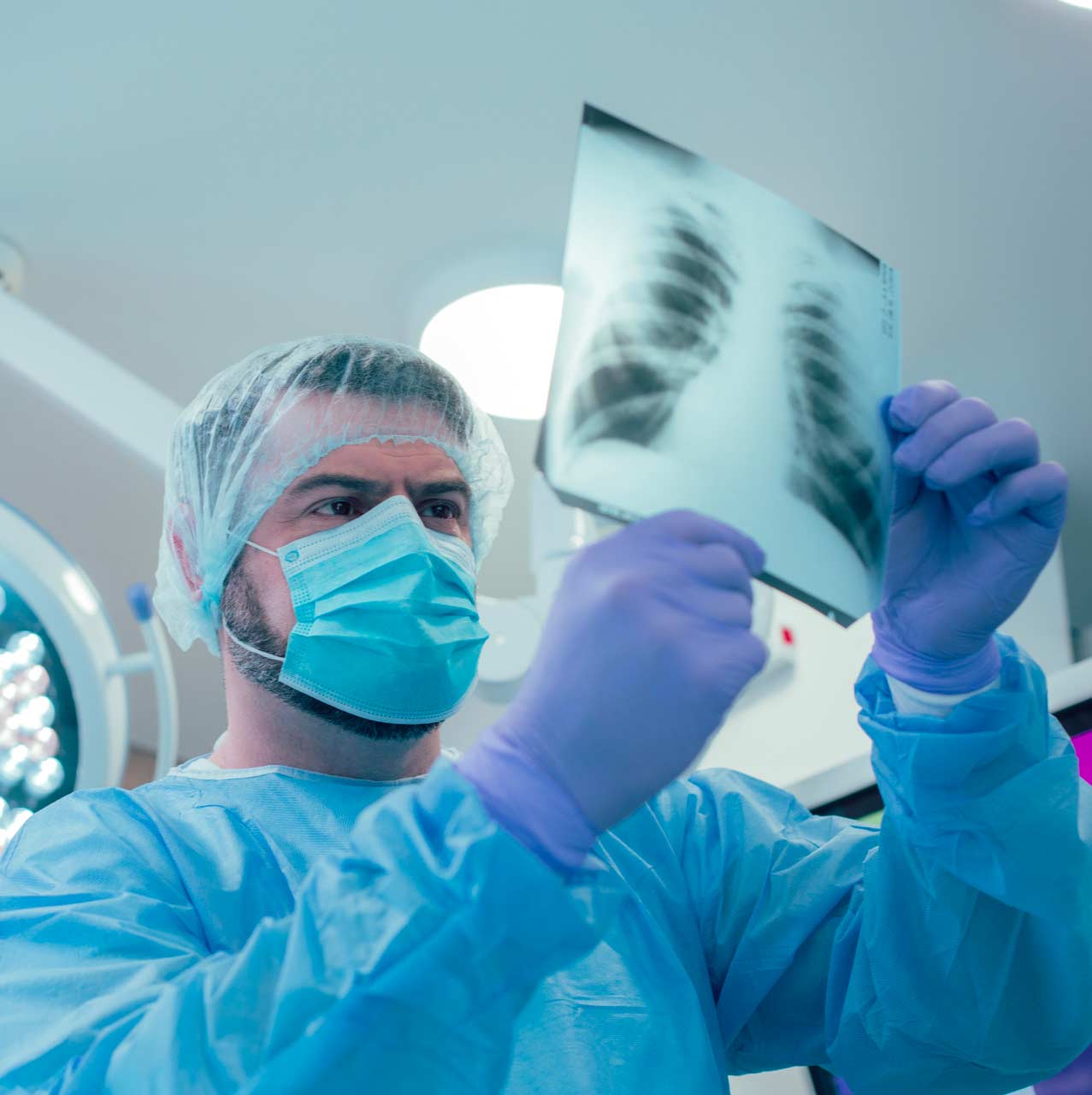
Cannabis and Lung Health During the Coronavirus Pandemic
COVID-19 is a respiratory virus primarily affecting the lungs. When the virus began to spread, we anticipated that many cannabis users would switch over to non-inhaled products—things like edibles or tinctures.
The reality has been more complicated than that. It’s true that sales figures for edibles (which include tinctures) are strong. However, flower (bud) also remains very popular.
Some industry experts think this is because cannabis flower is the equivalent of a comfort food. Most peoples’ first cannabis experiences were smoking flower, and in times of uncertainty people go back to what they know and trust.
Other people are moving forward with trying new cannabis consumption methods. On the Leaf411 hotline, we’ve heard from people who are navigating the switch from smokable to ingested cannabis products.
It can be difficult to figure out how much to start with, when changing from a flower product containing about 25% THC to an edible with 10 mg THC per piece. Add on to that the fact that inhaled THC enters your bloodstream more quickly while edible products pass through the digestive system and are changed by your metabolic practices. This means using flower versus edible can be very different in how quickly it hits, how long it lasts, and how intensely effects are felt.
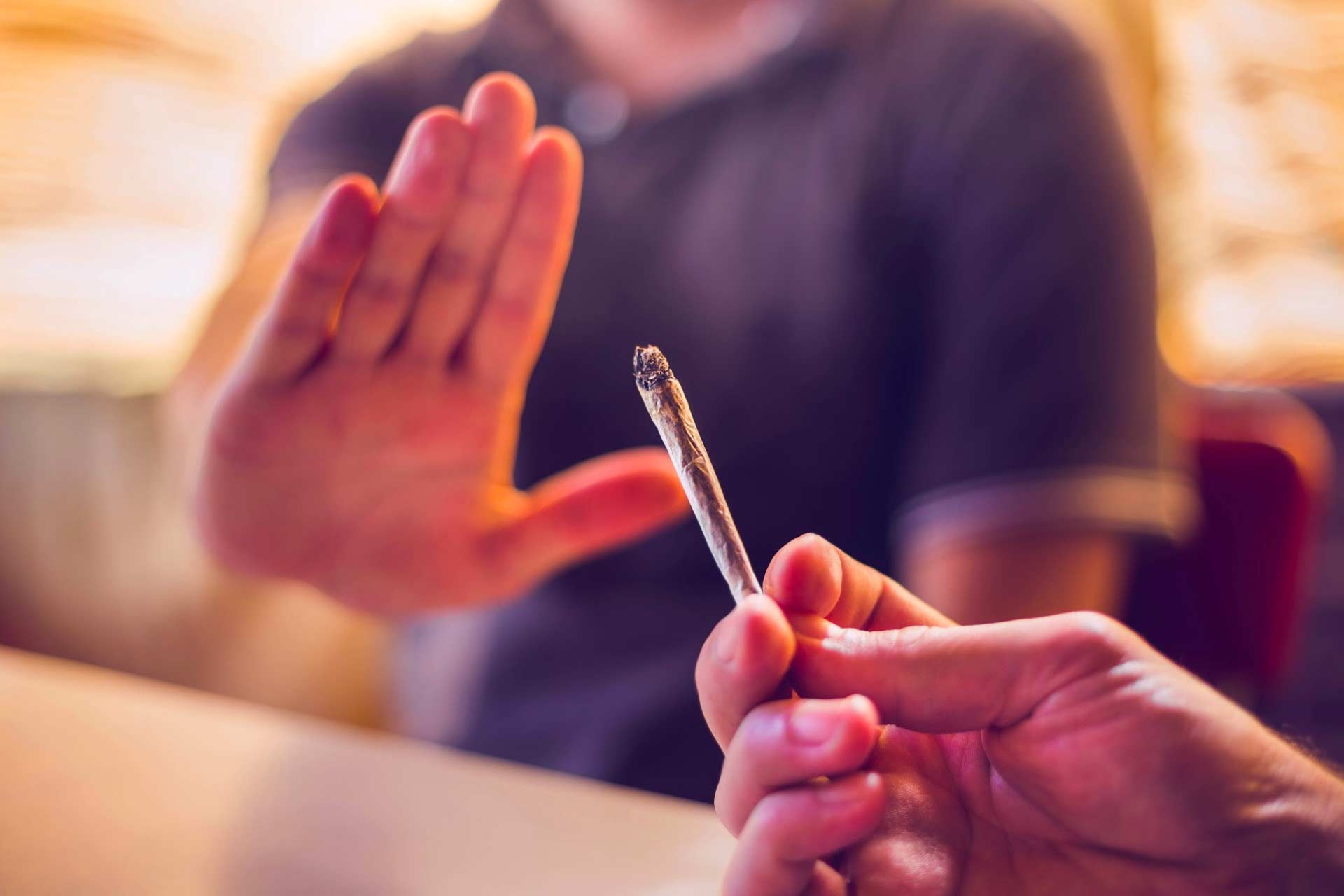
Cannabis Consumption Methods: Questions About Moving from Flower to Edibles
The switch from smokable to edible cannabis products isn’t as straightforward as you’d think, even for experienced cannabis users. The calls we’ve received on the hotline underscore the importance of understanding product dosing, and starting low and going slow when switching to edibles and tinctures.
In one case, we received a call from someone who assumed that an entire cannabis-infused chocolate bar equaled one dose. In fact, each square of the cannabis chocolate bar was a separate dose!
It’s an easy mistake to make, considering that grocery store candy bars count as a single serving. Unfortunately, in this caller’s case, their mistake meant that they used more cannabis than intended. While this isn’t life-threatening, it can result in a negative experience.
Due to social distancing practices, you may not be able to chat with your budtender about different products like you did in the past.
At Leaf411, we can help! Our cannabis-trained, fully licensed registered nurses know how flower and edibles differ in timing and dosing. Whether you’re planning an online dispensary order, or just returned home with a new product, we can with any questions you have at our free hotline: 844-LEAF411 (844-532-3411). We’re also available via online chat. Look for the chat feature on the bottom of our website home page.

Our Latest Cannabis Hotline Questions: A Return to Routine Health Concerns
The COVID-19 virus will be a presence in our world for the foreseeable future. The latest calls to our Leaf411 hotline reflect this new reality. The anxiety and fear are still there, but it’s no longer an emergent issue demanding all of our attention. This shift in focus is an encouraging sign, showing that people are finding balance and perspective despite challenging times.
People are shifting their focus back to ongoing health concerns, and medical facilities are opening back up for routine care and elective procedures. (It’s important to note that “elective” includes a wide range of procedures, including joint replacements, biopsies, and even some cancer treatments!)
As people return to routine care and undergo elective procedures, we’re hearing more questions about cannabis as an alternative for managing health conditions. We’re also getting questions about using cannabis both prior to and after surgery.
Of course, you’ll always want to share your medical history, including cannabis use, with your doctor prior to any surgery or medical treatment. You should also talk with your primary provider ahead of time about your goal to use cannabis as an alternative to opioids following surgery.
If you need help with talking points or research to share with your provider, give us a call at 844-LEAF411 (844-532-3411). Our Leaf nurses understand the clinical research supporting cannabis and can help you find the right resources and research to share with your doctor.
The Leaf411 cannabis nurse hotline provides free, anonymous education and directional support to the general public about the safe use of legal cannabis. We partner with select business members who meet our rigorous standards to extend our education and outreach efforts.
